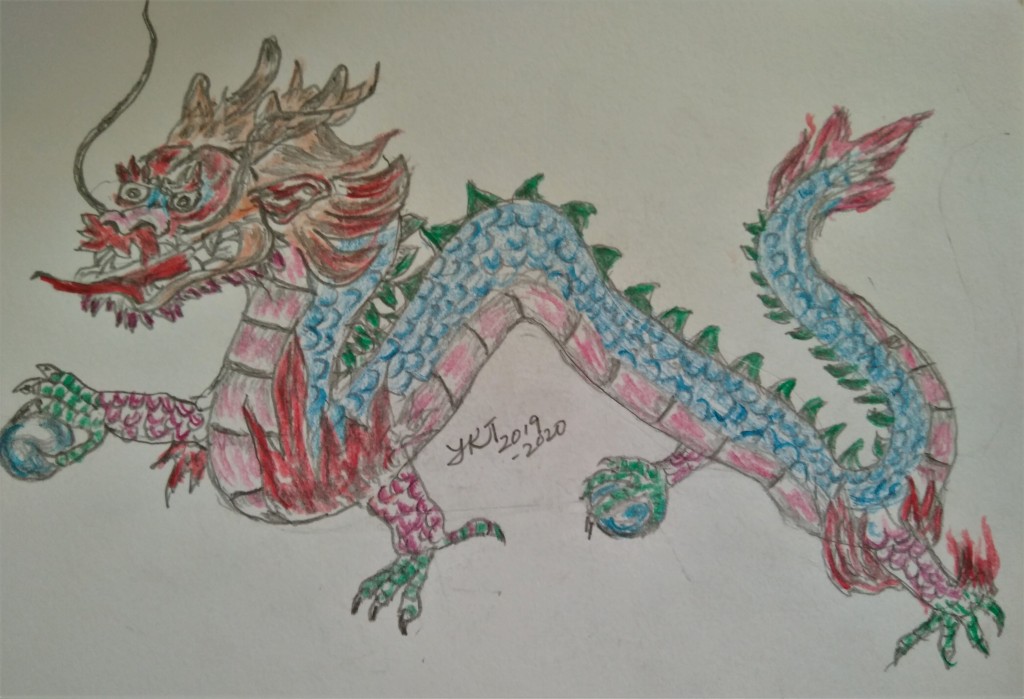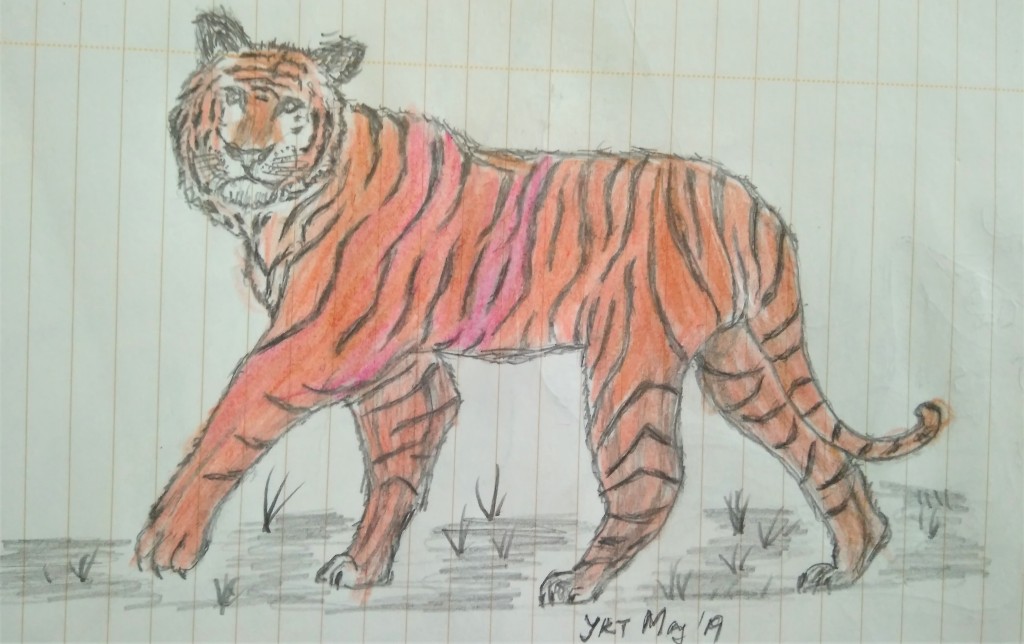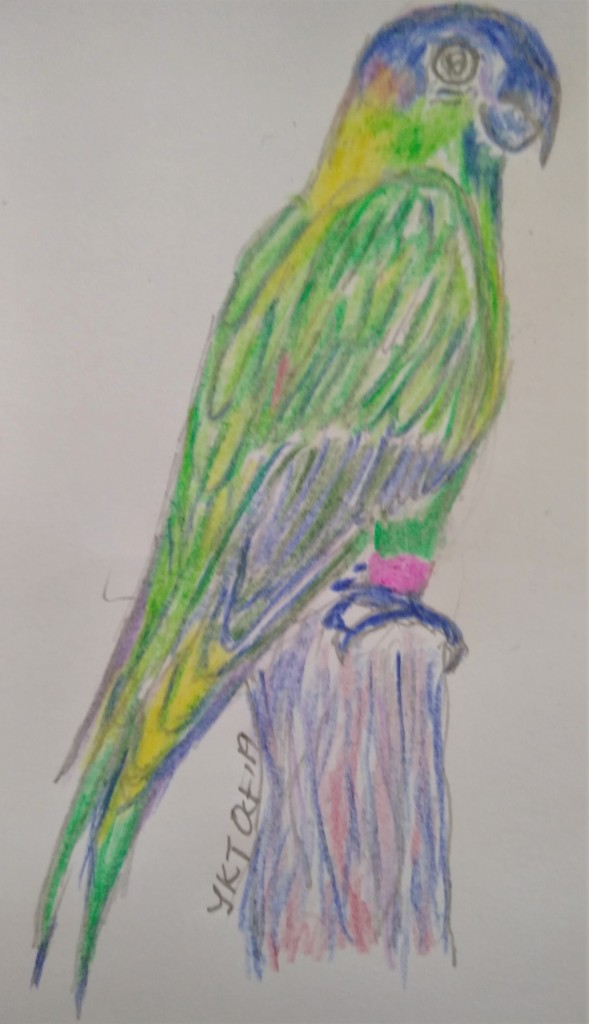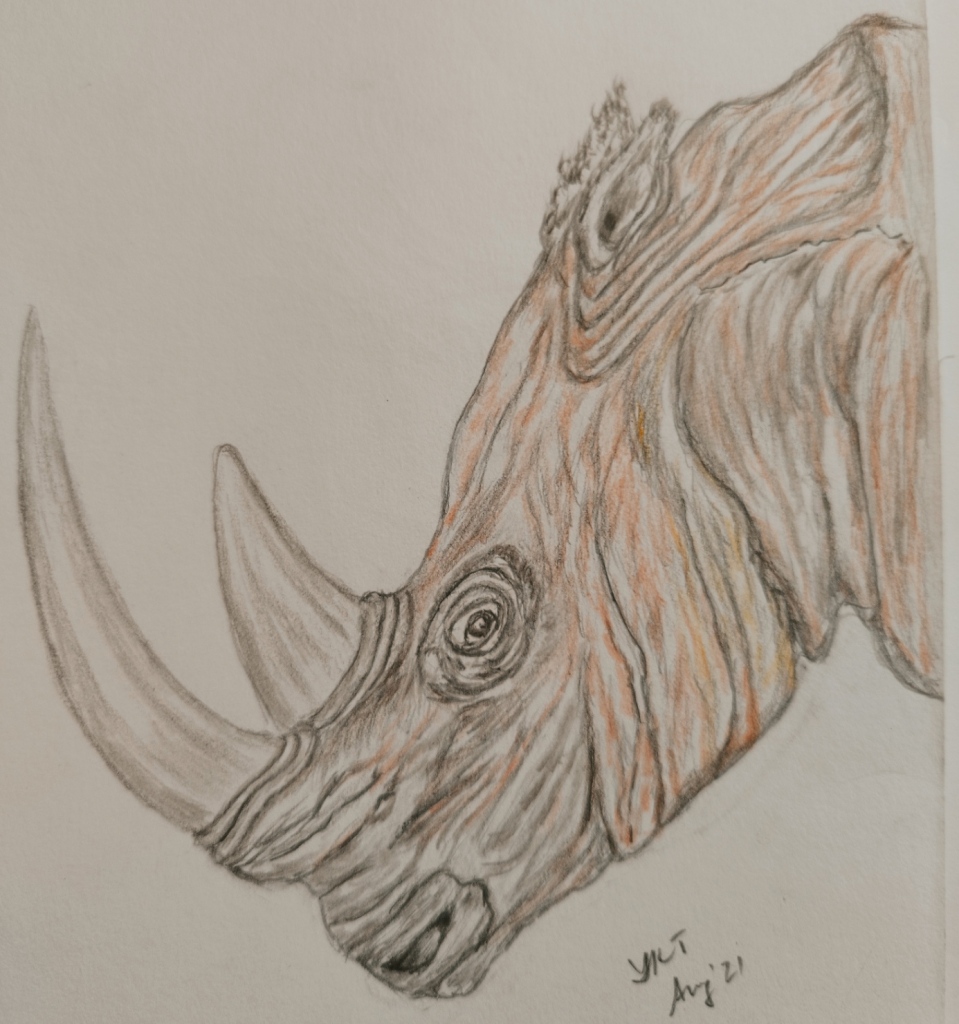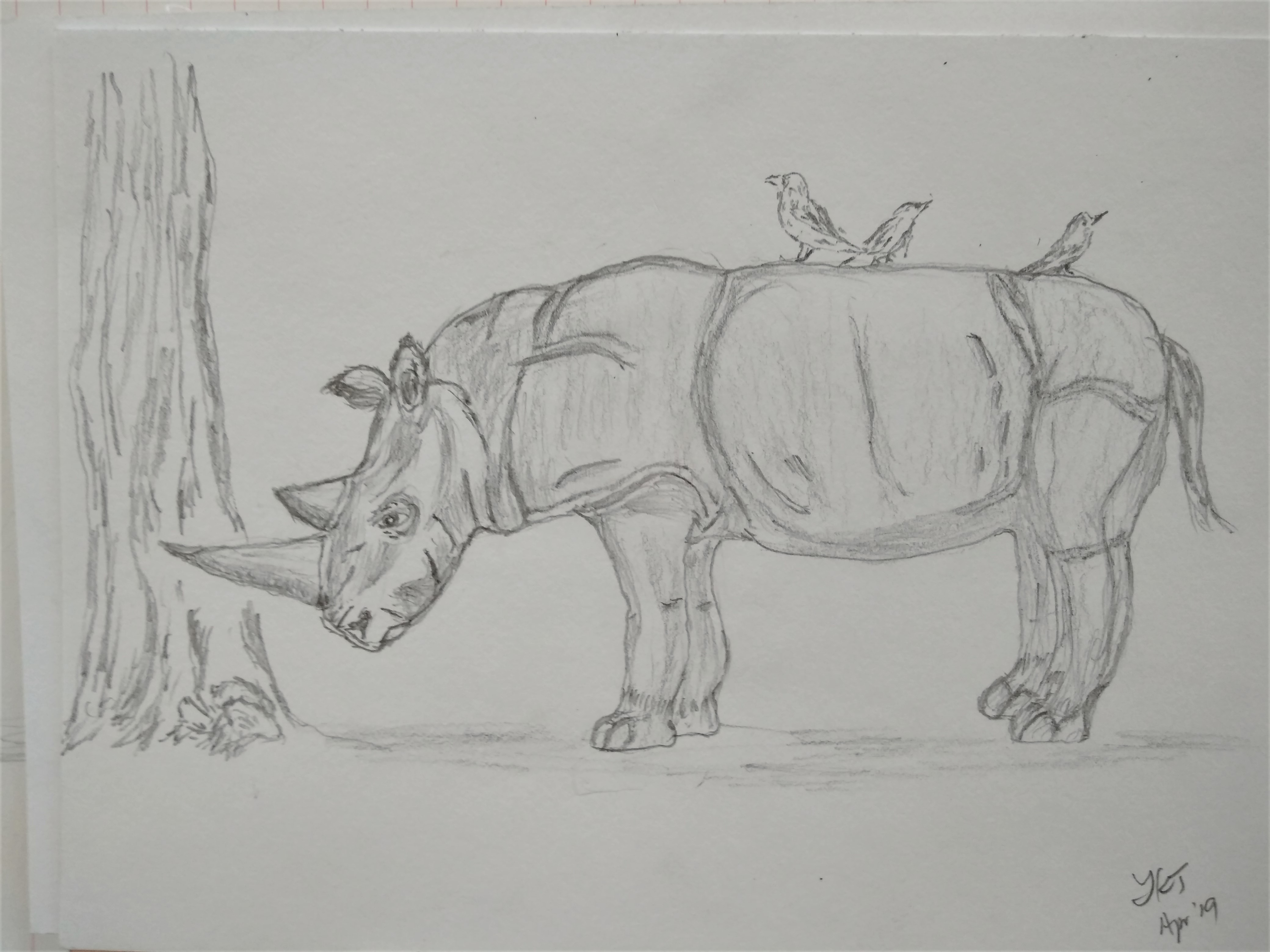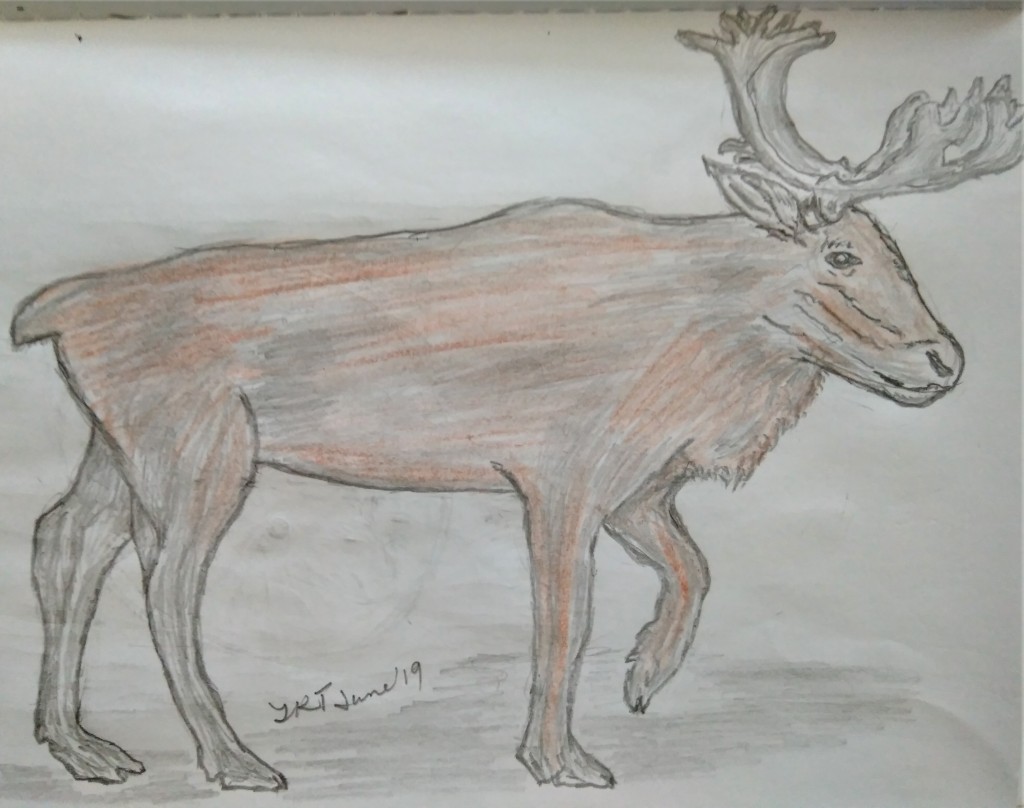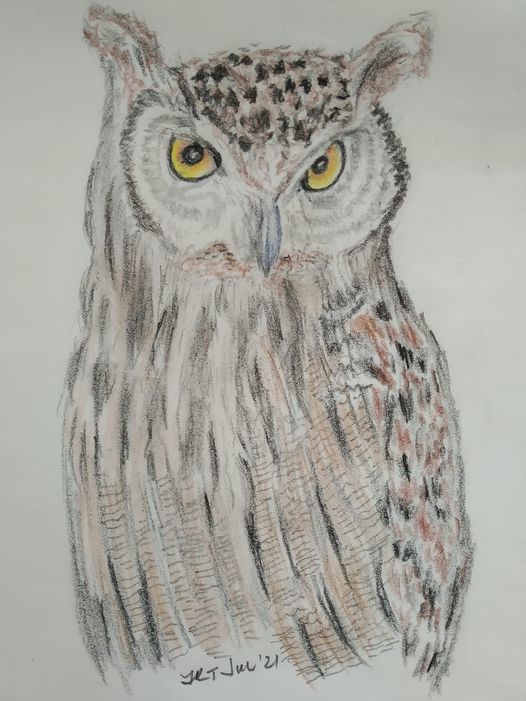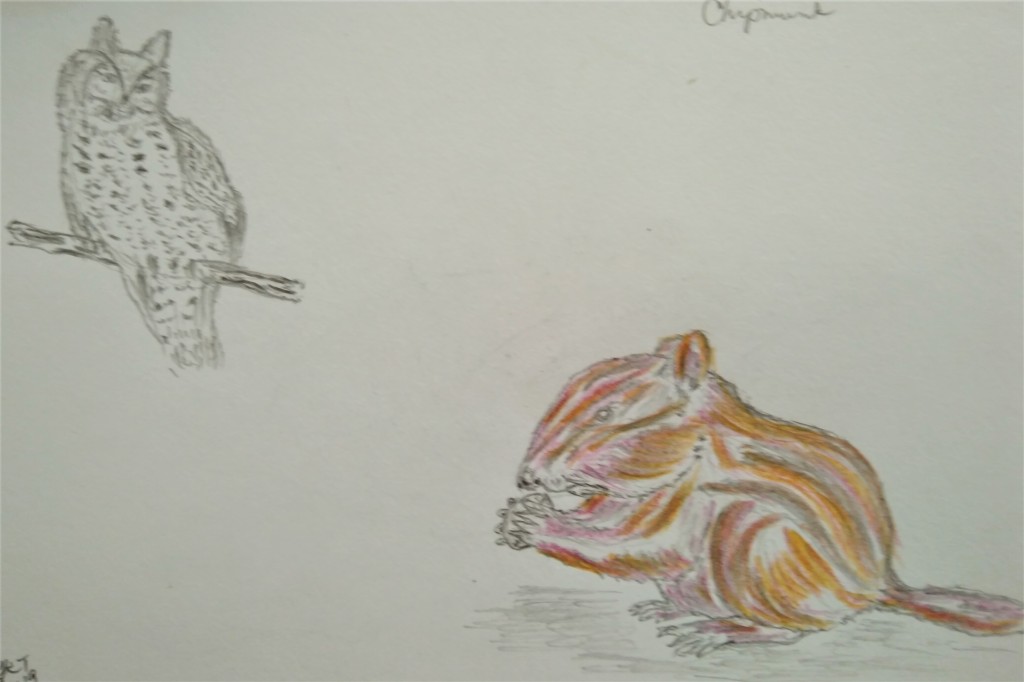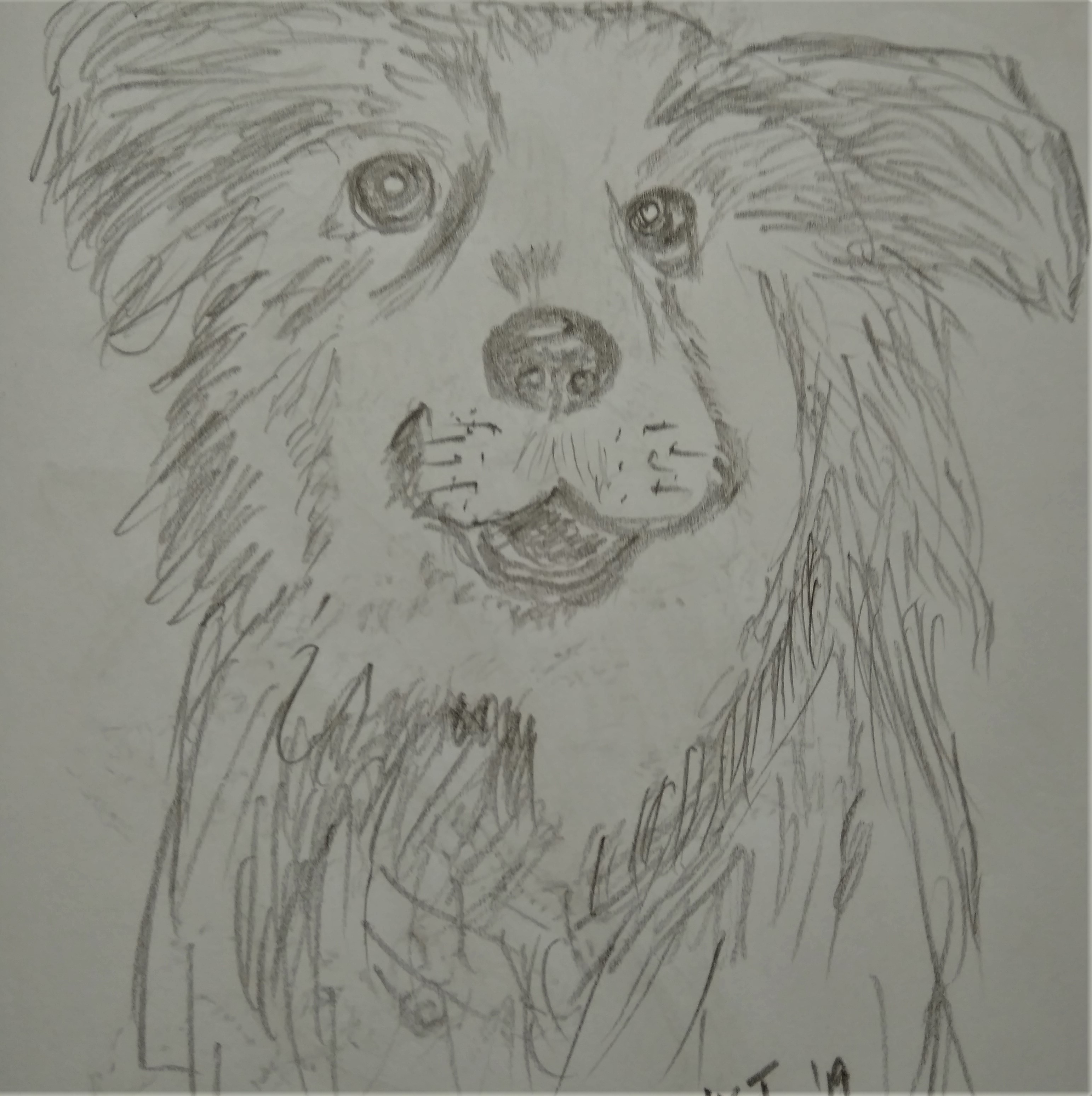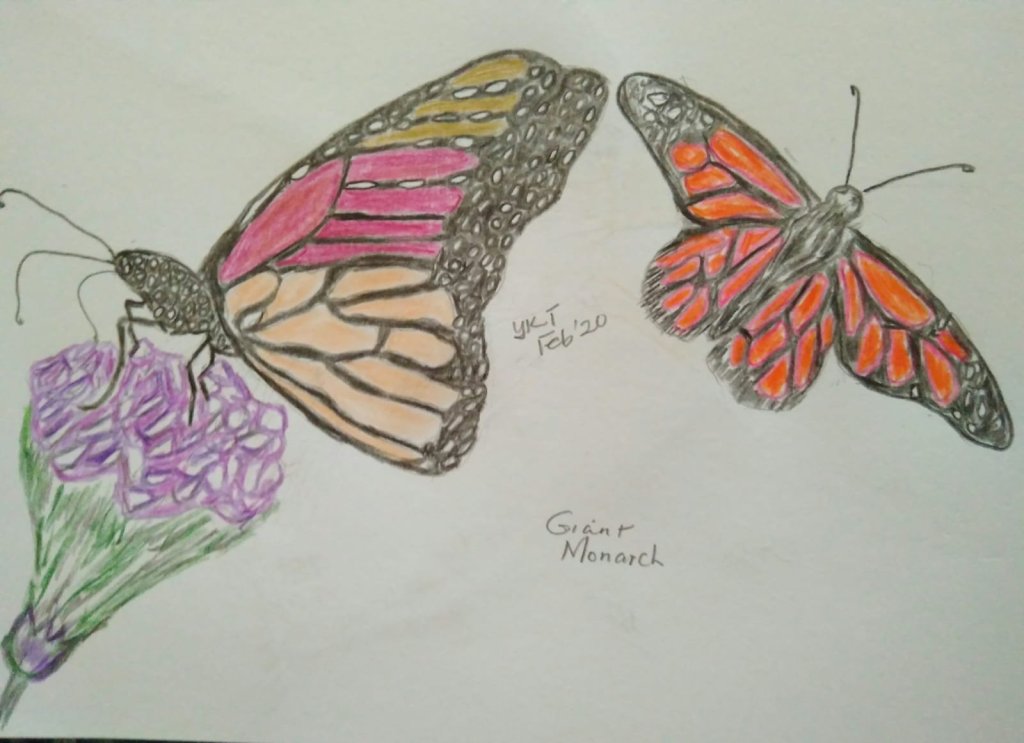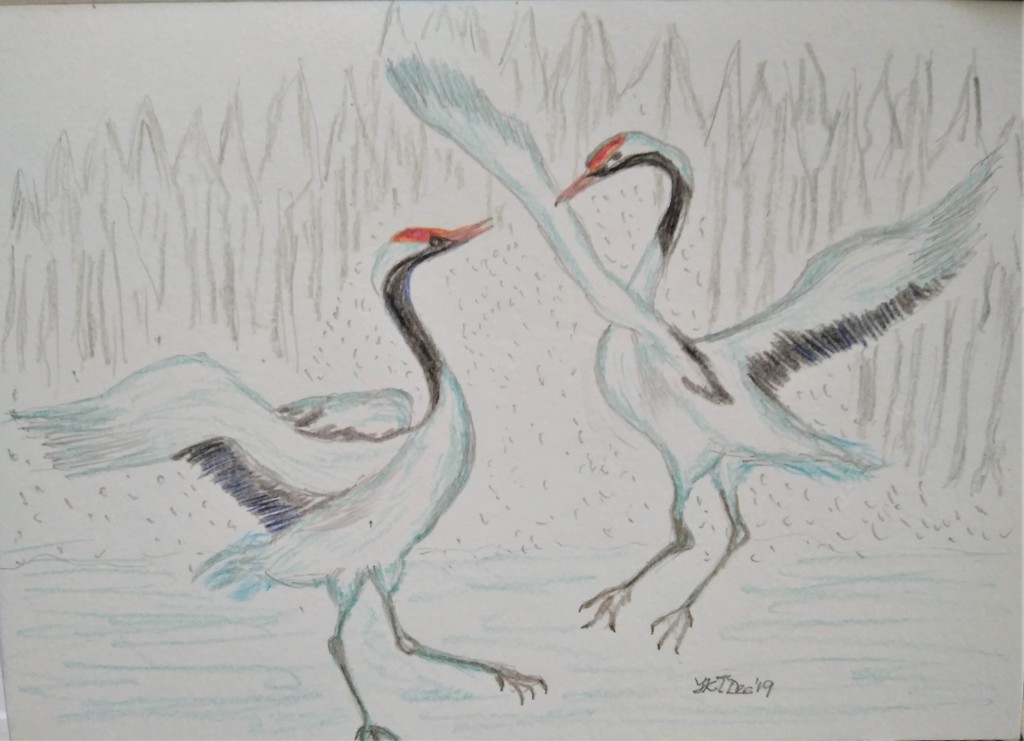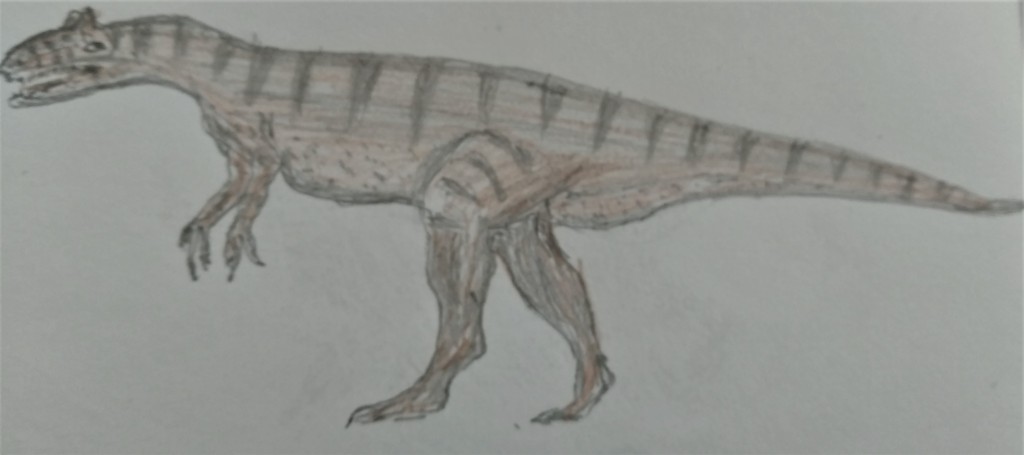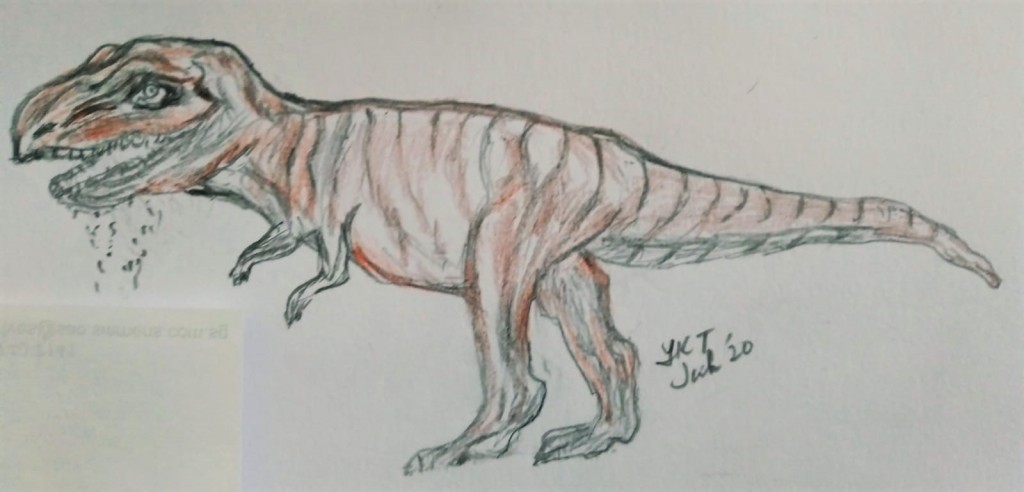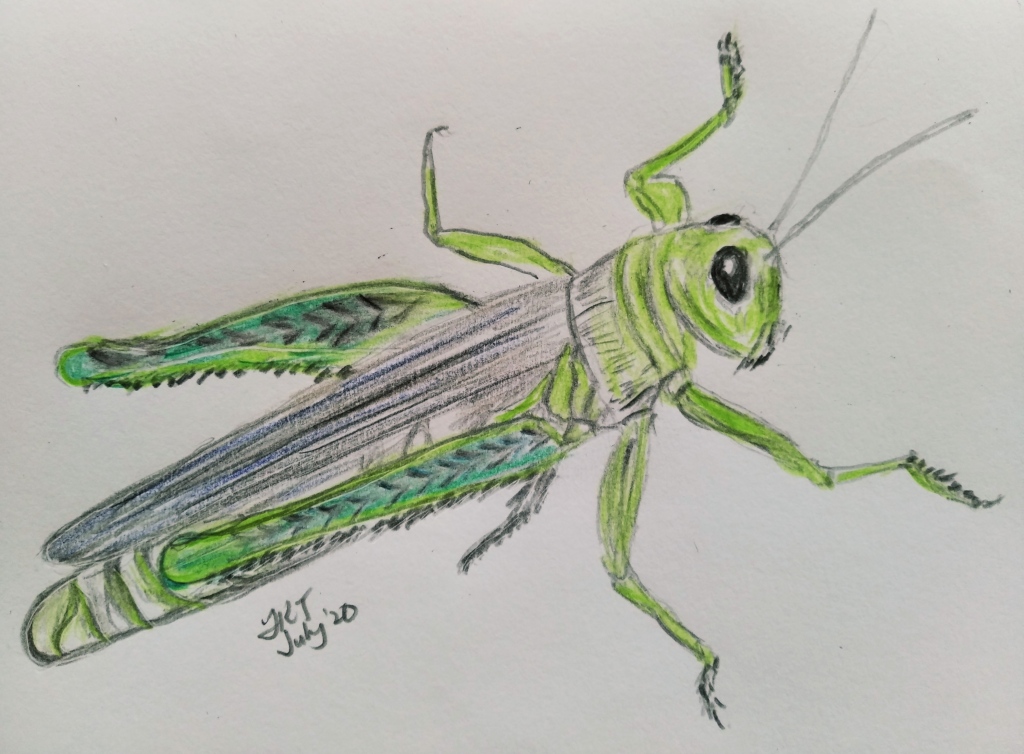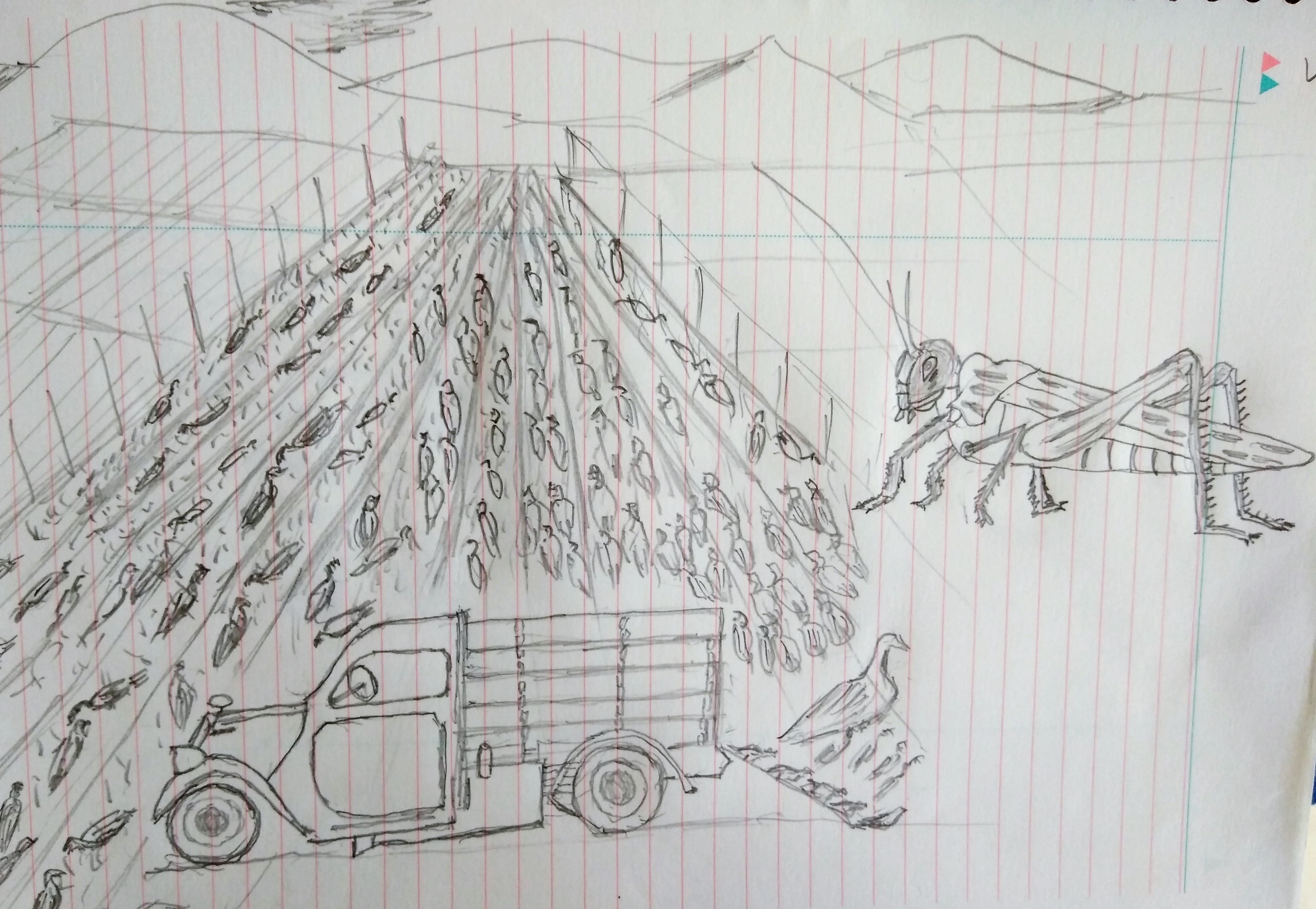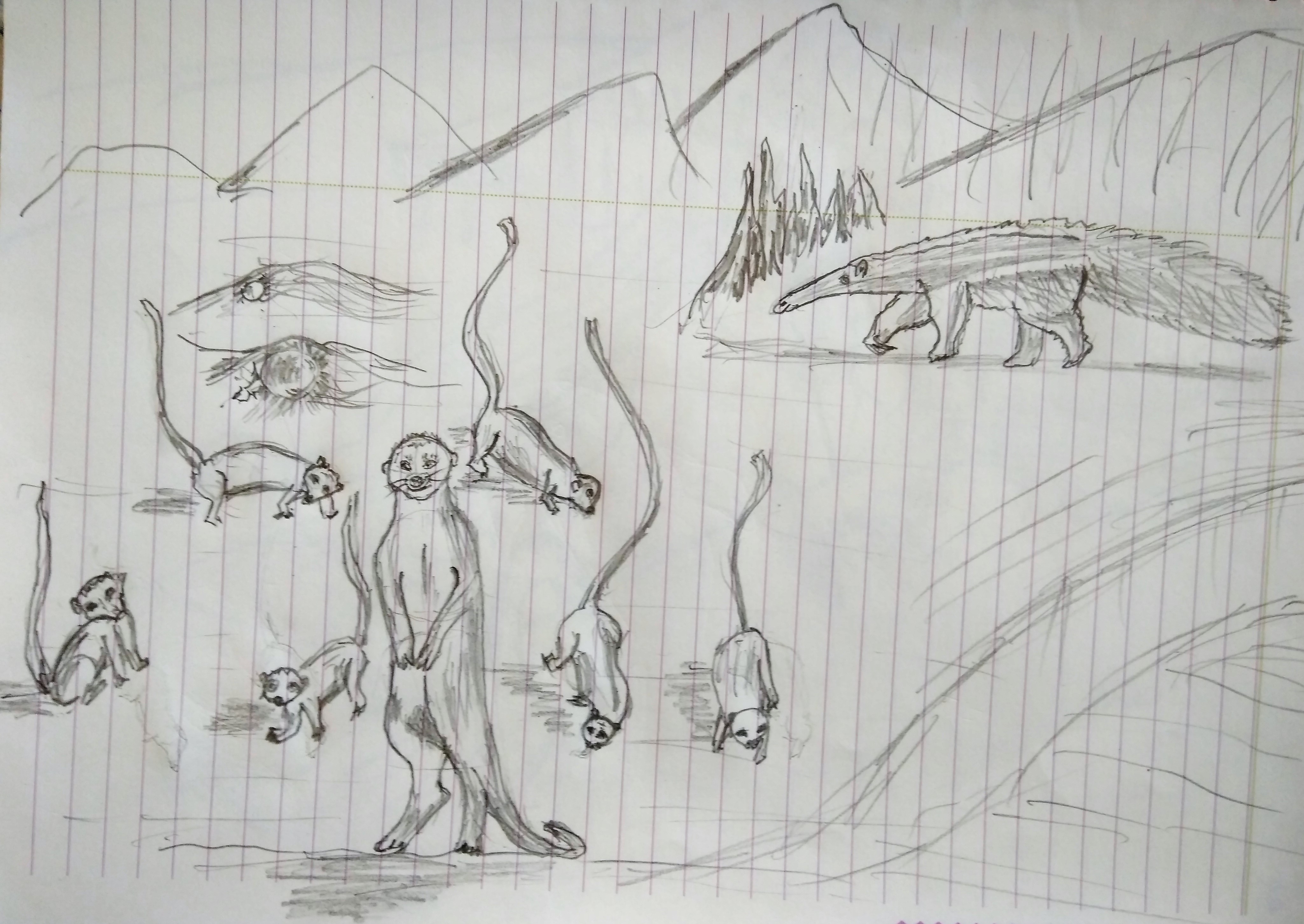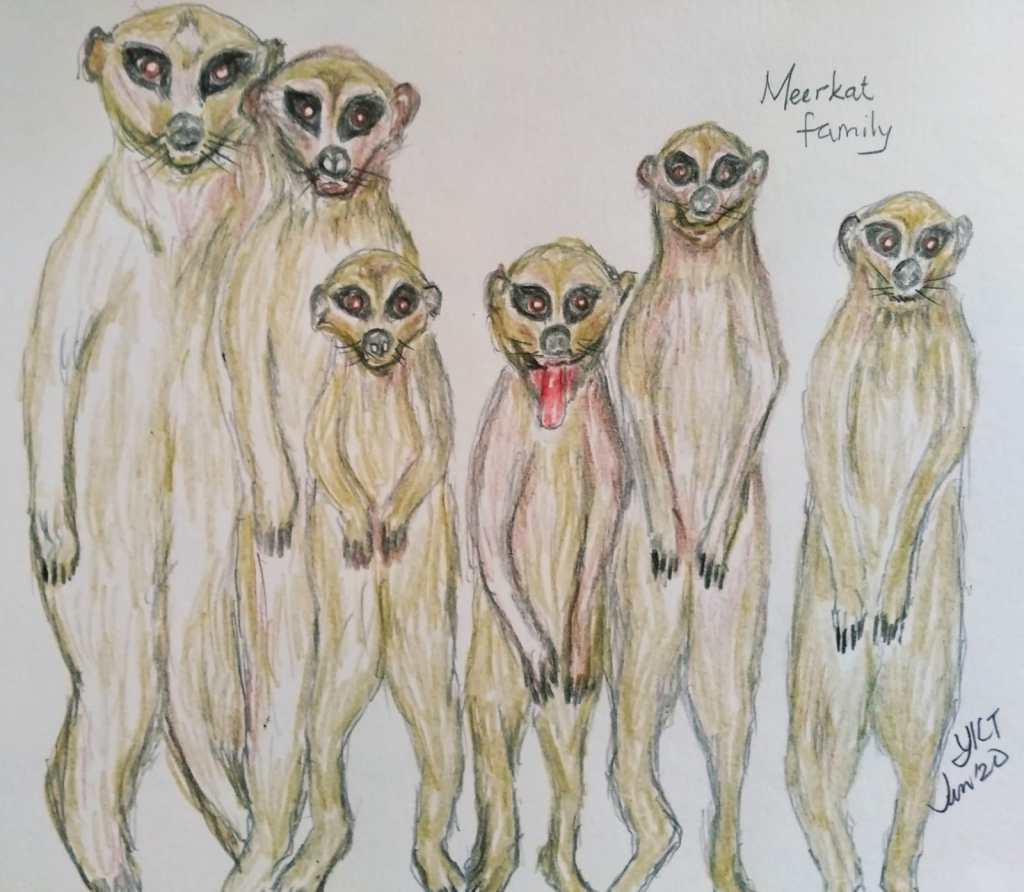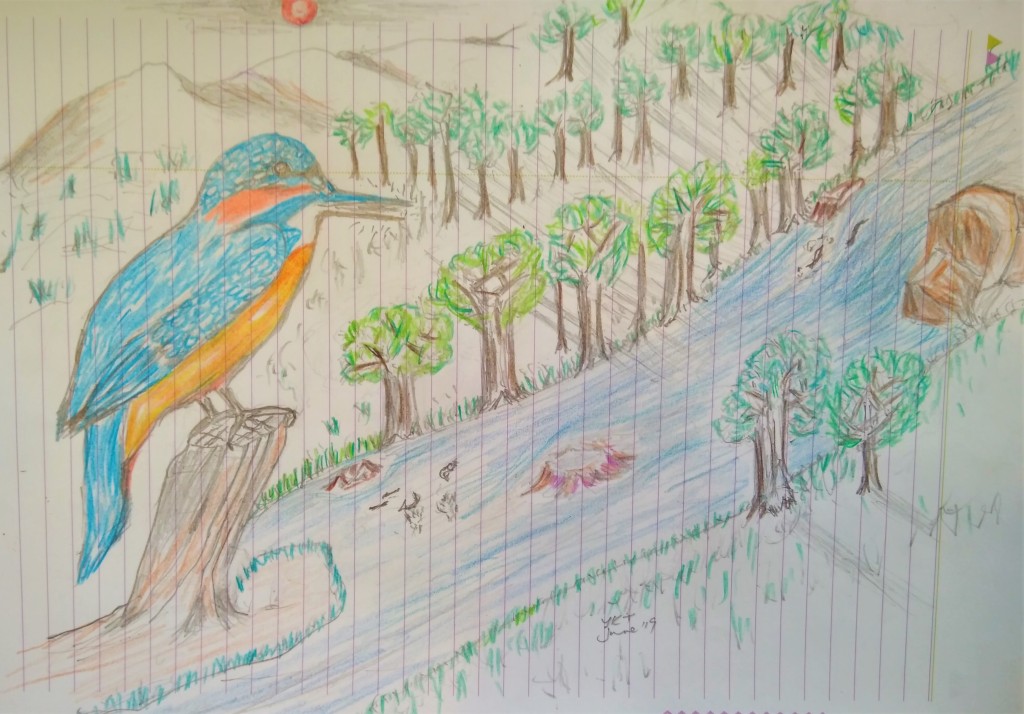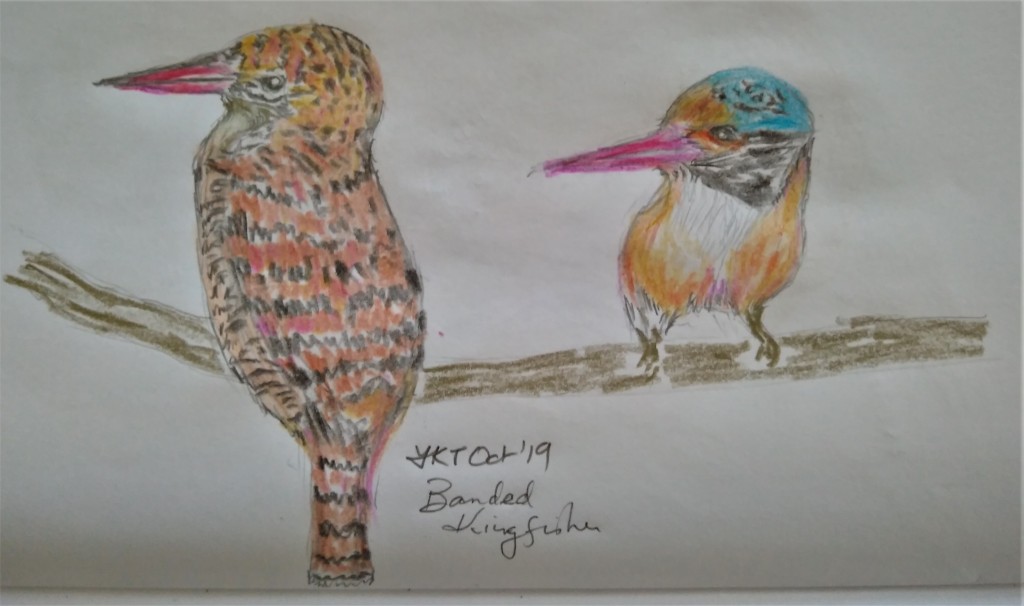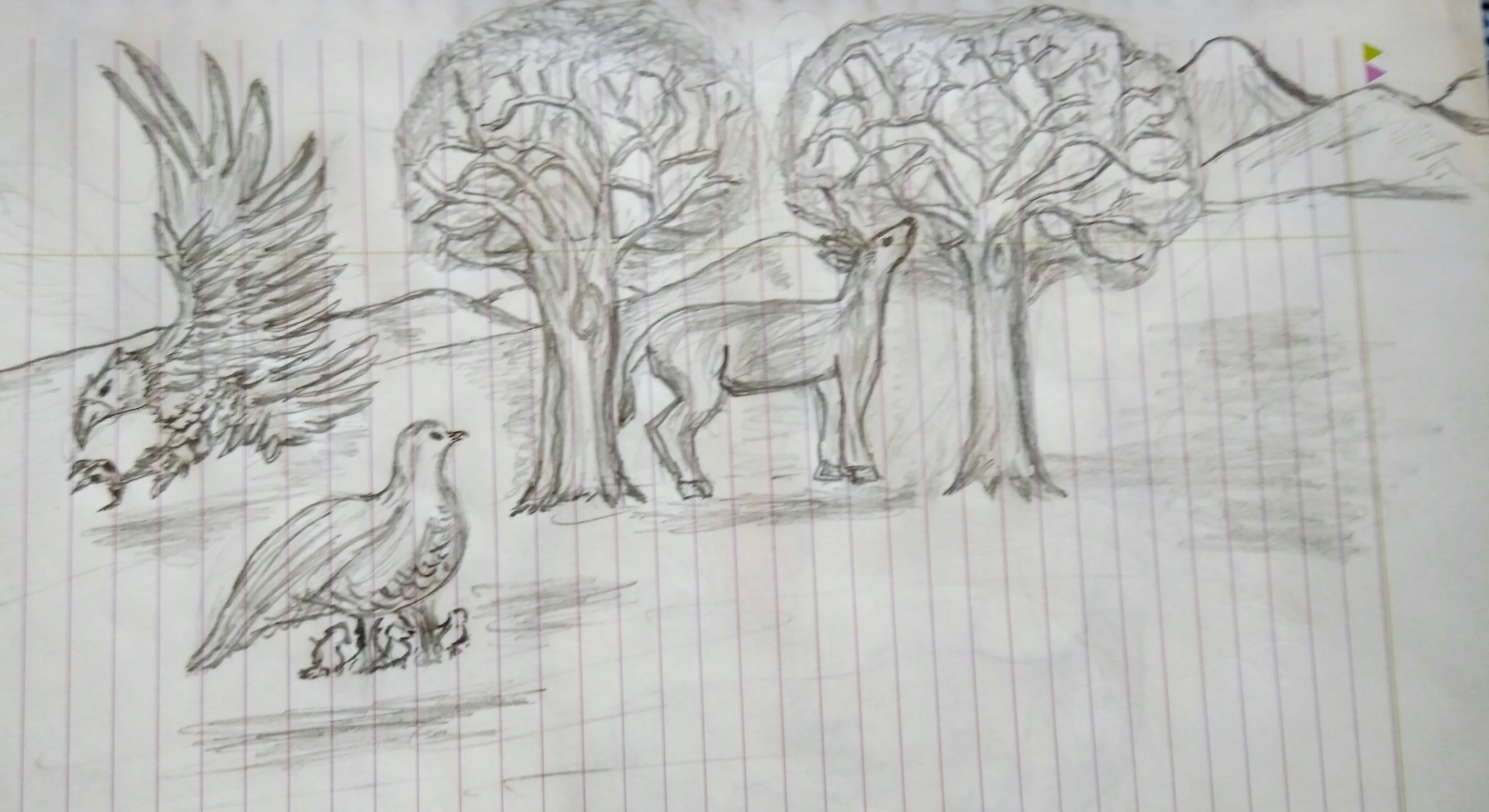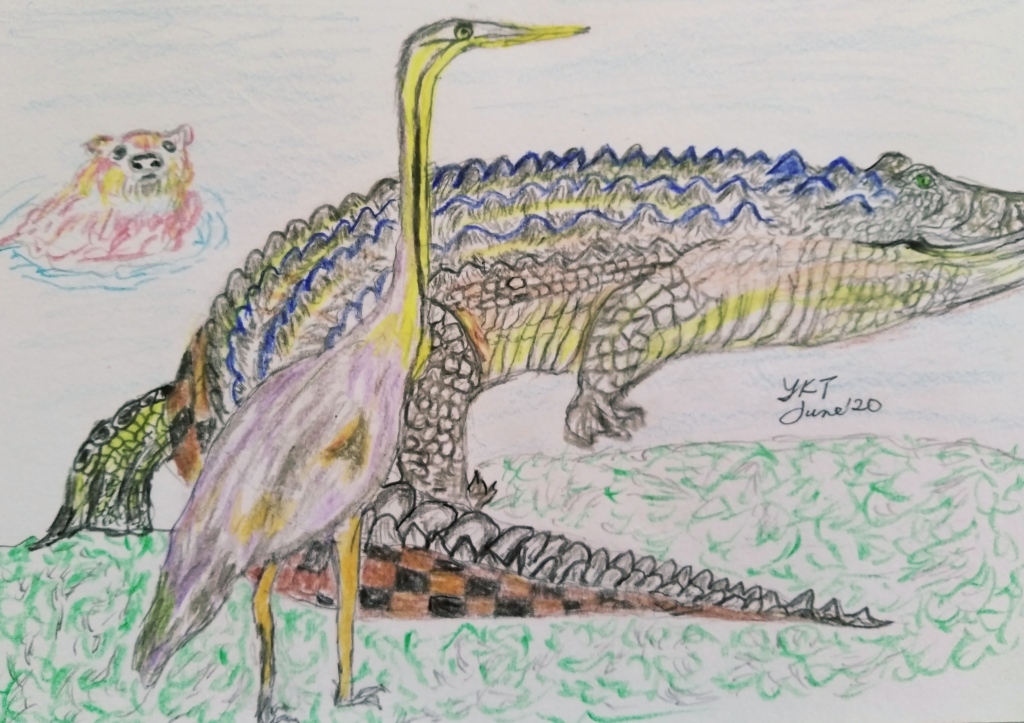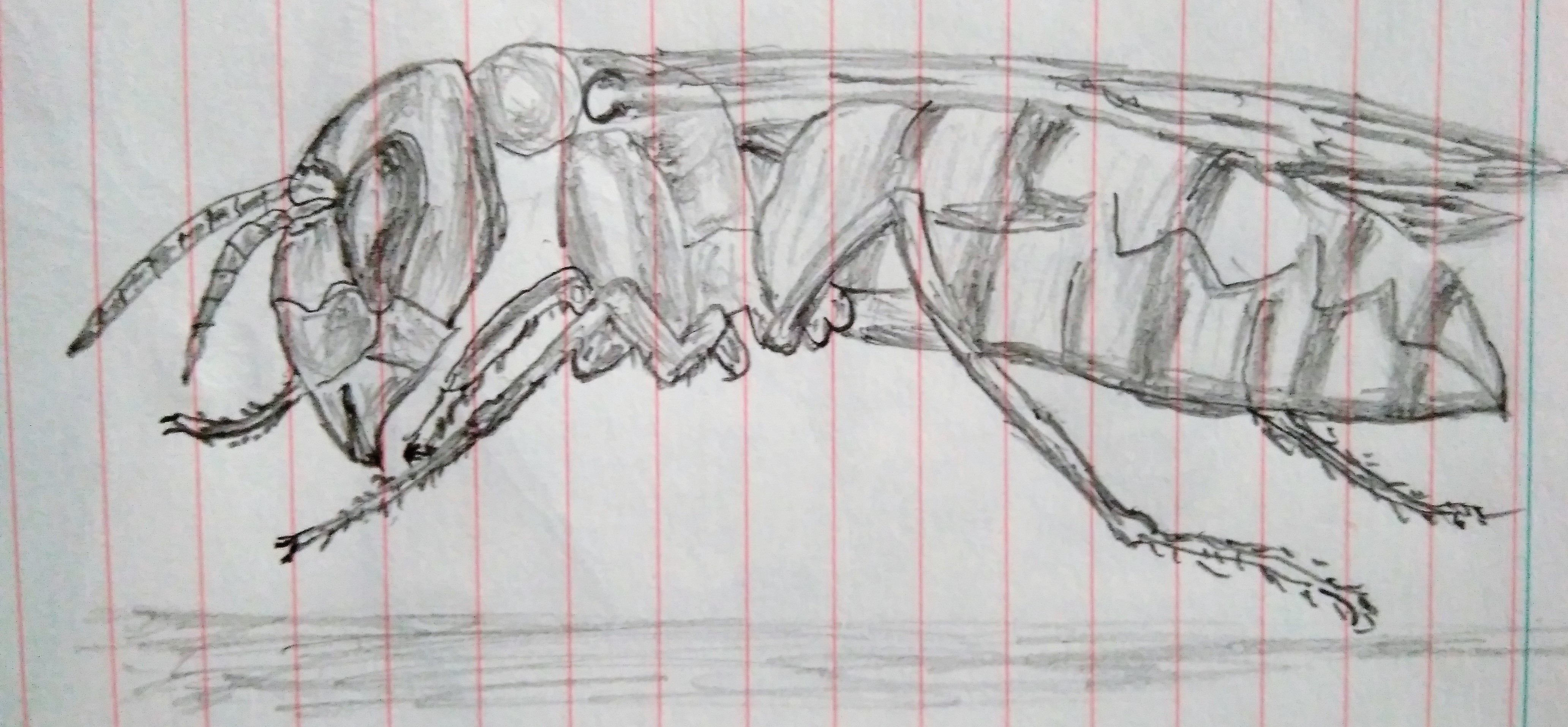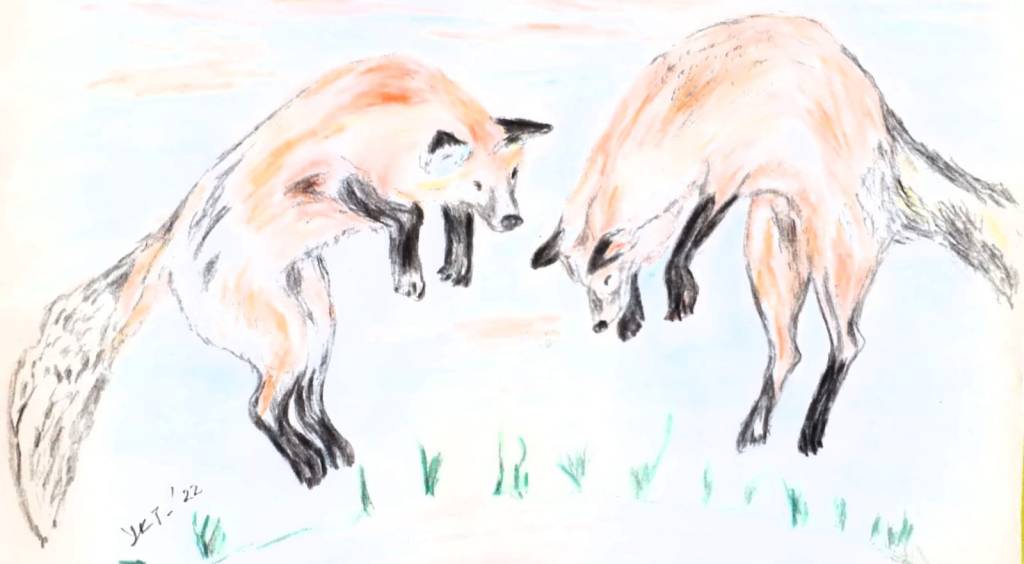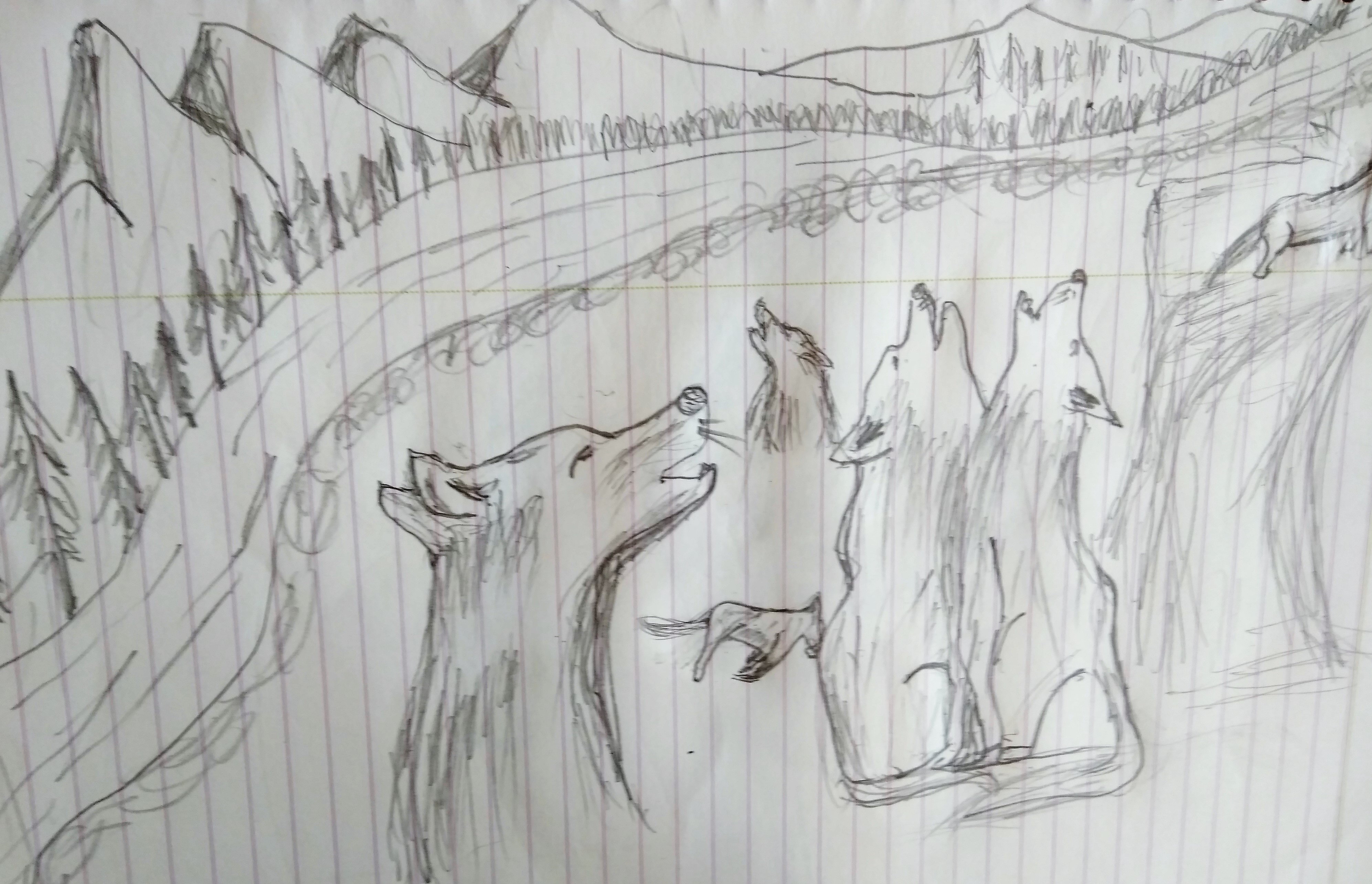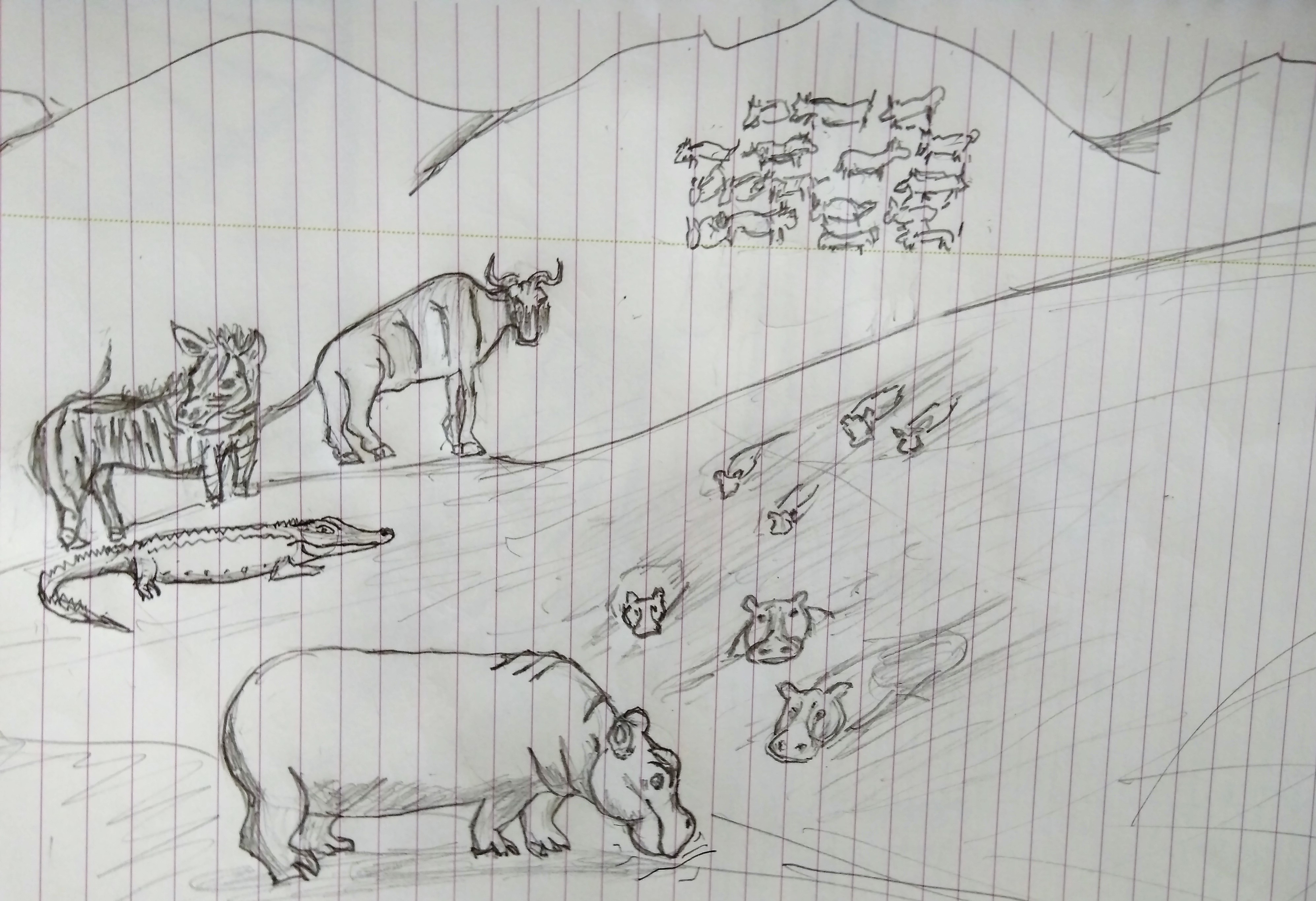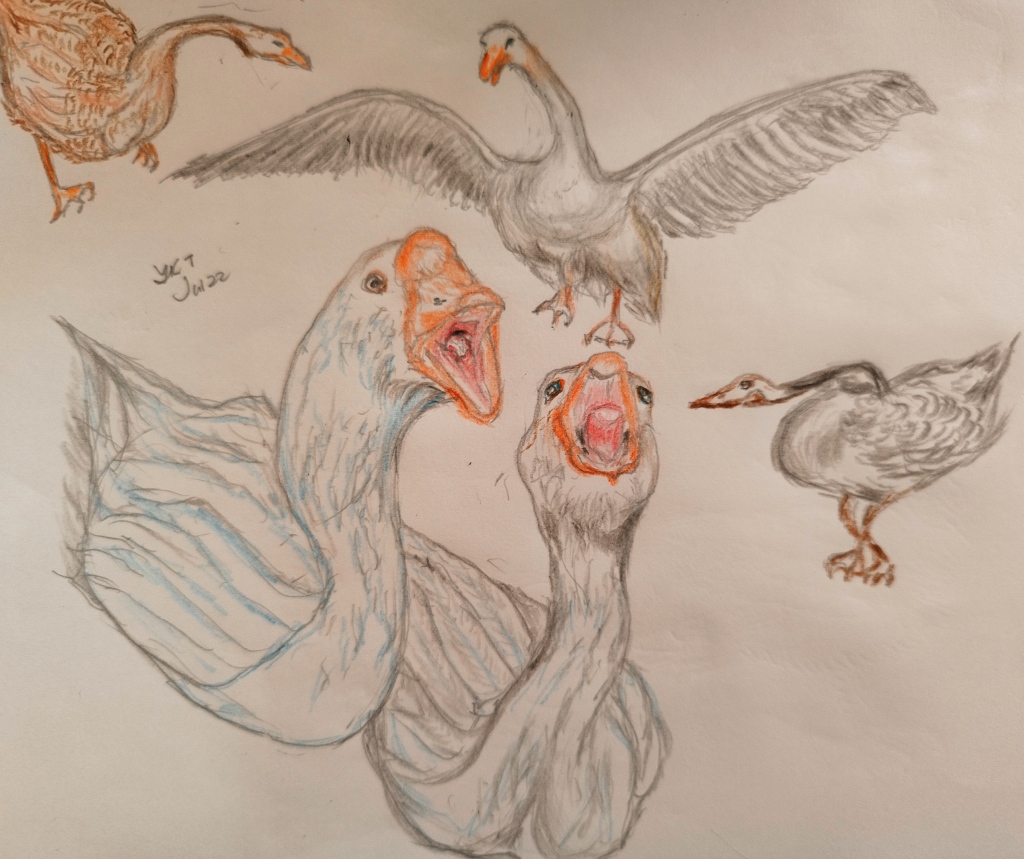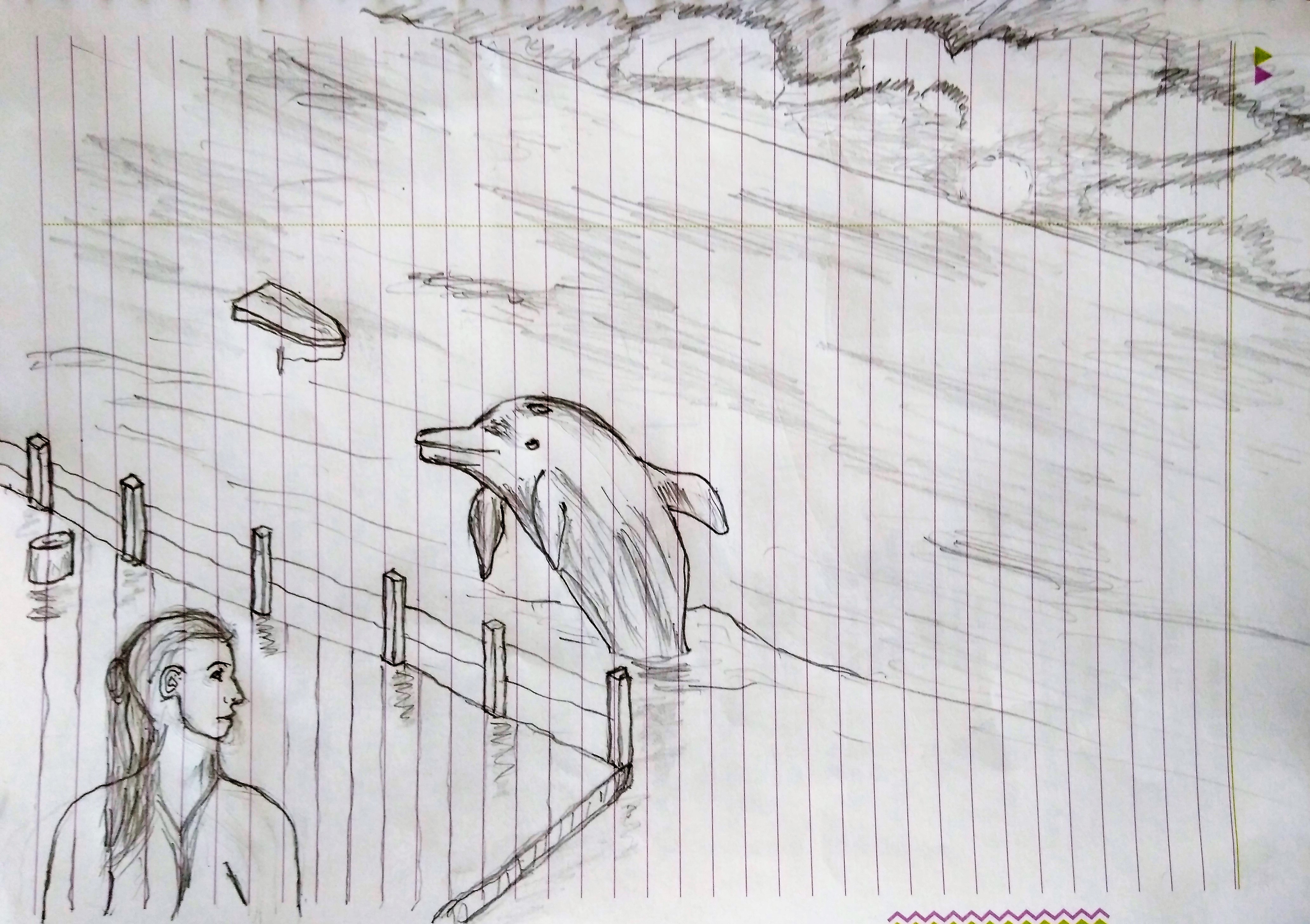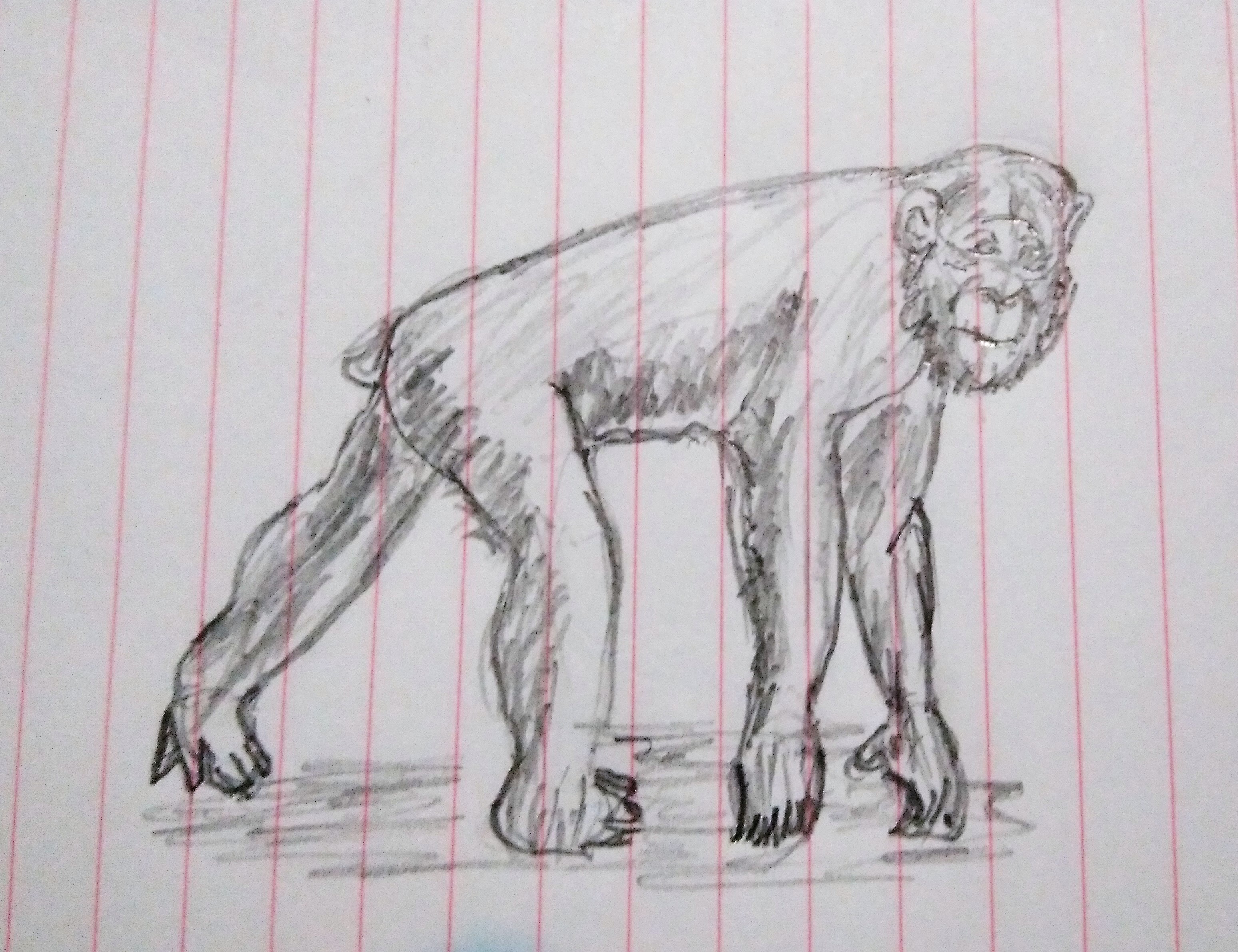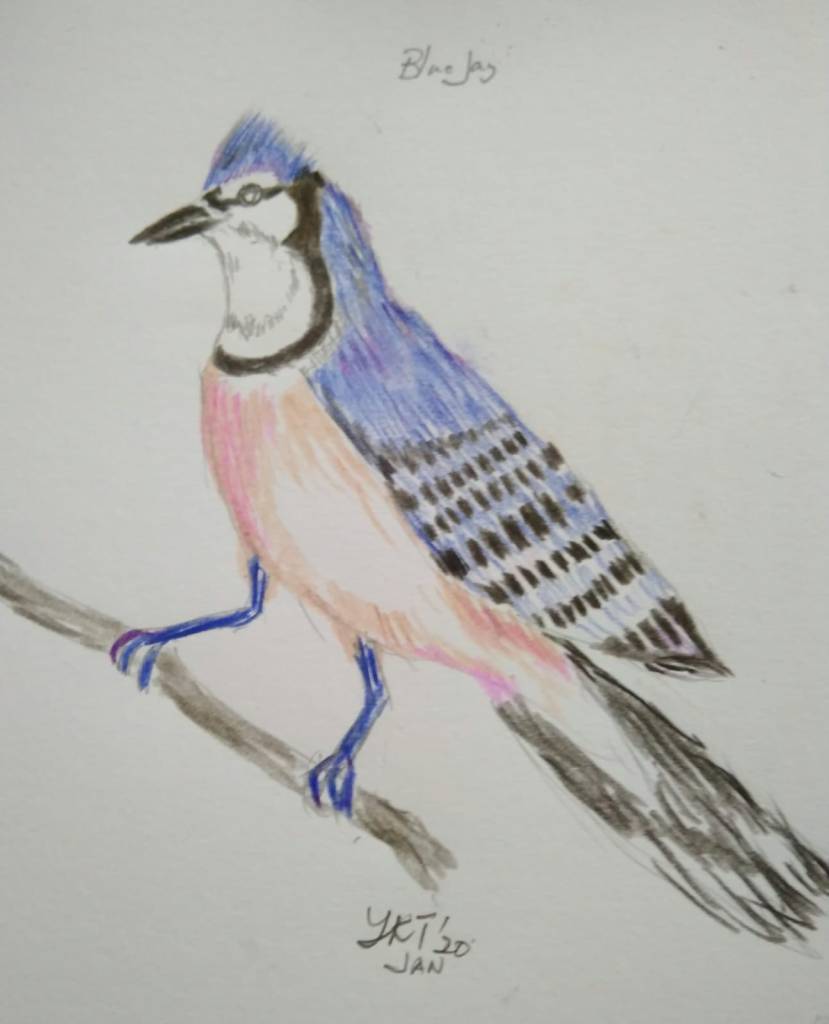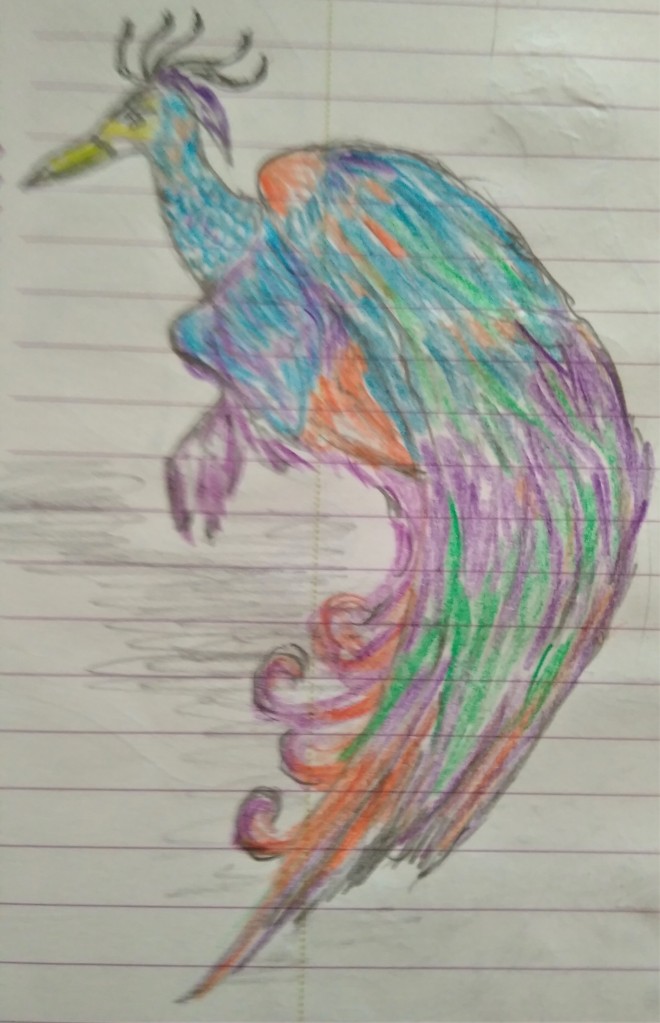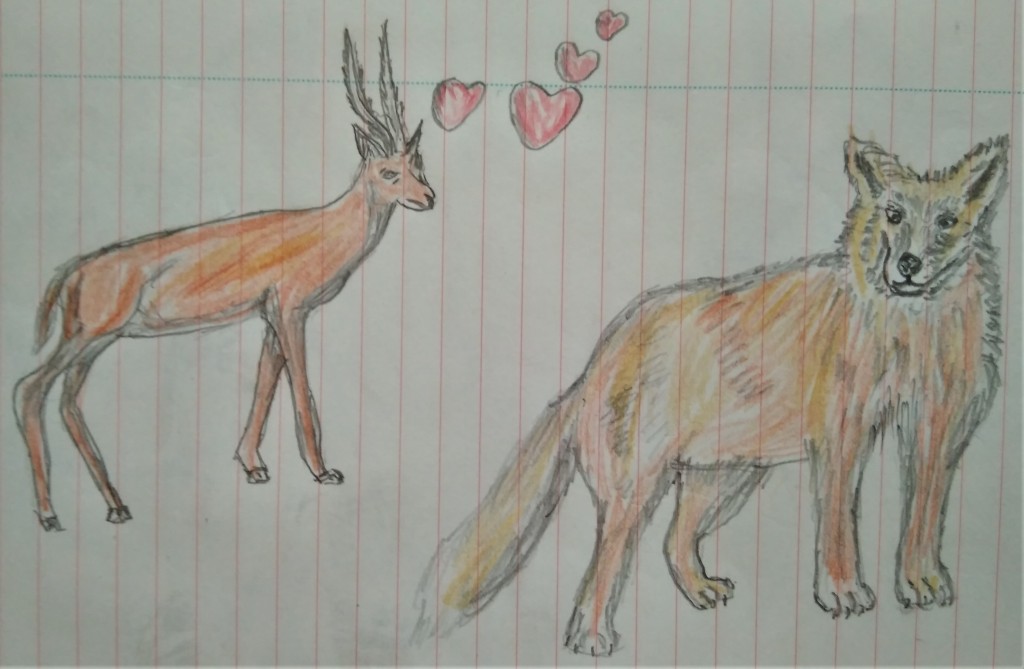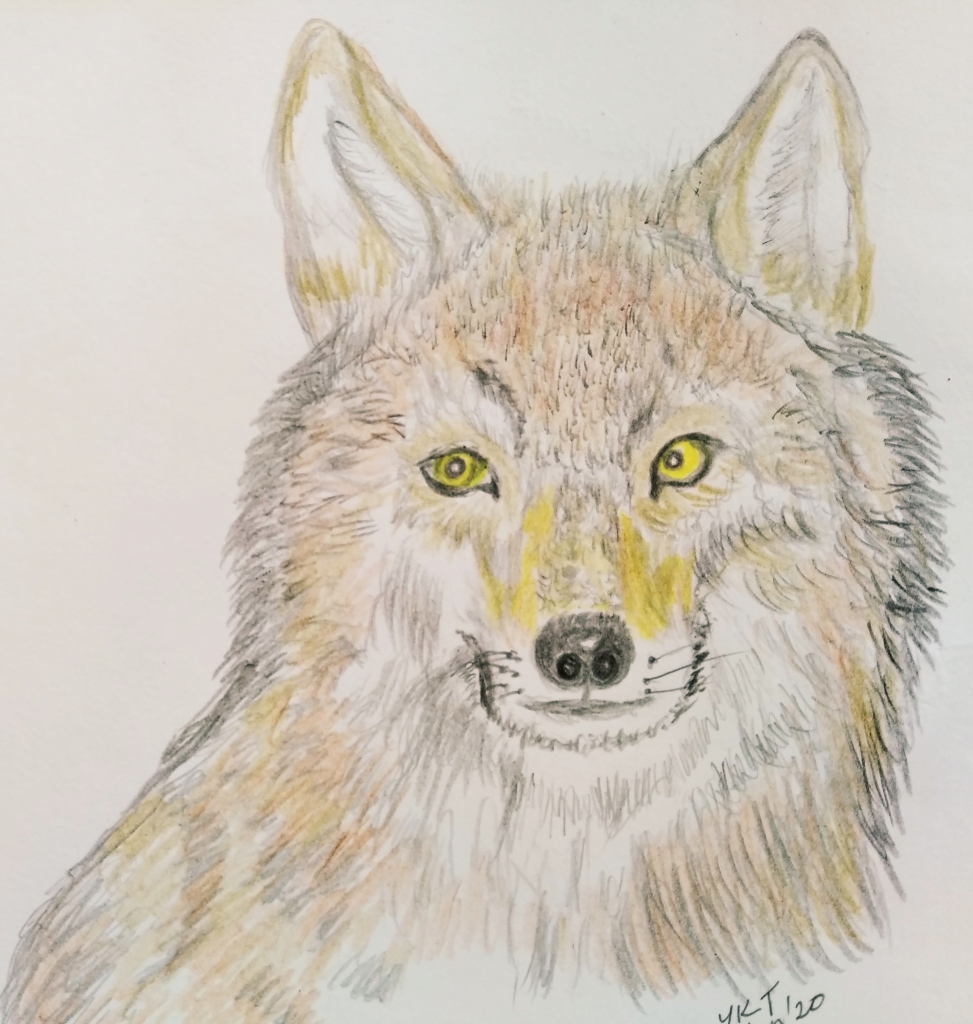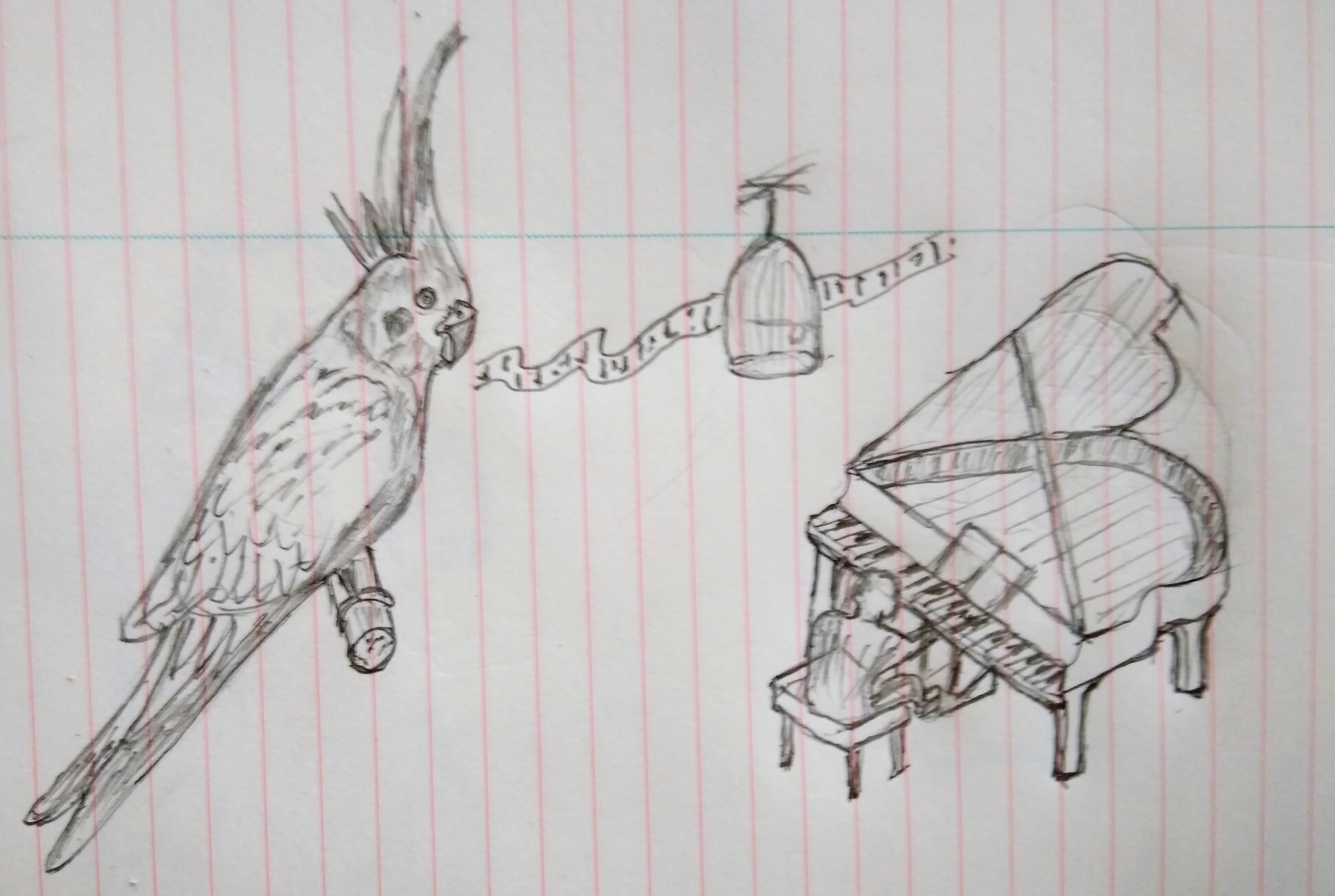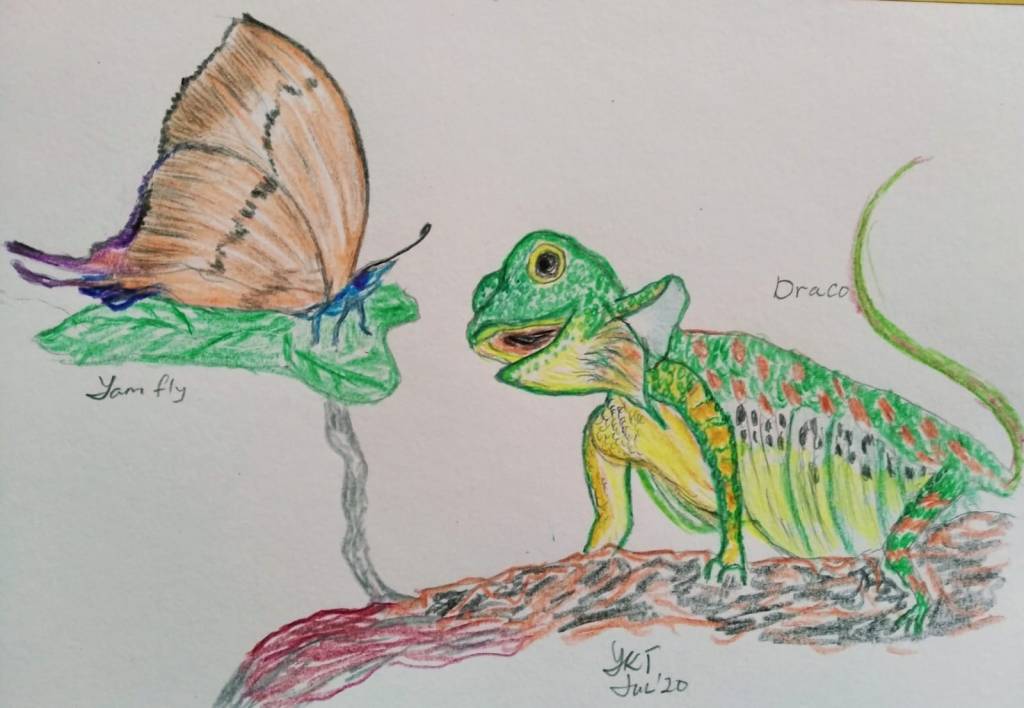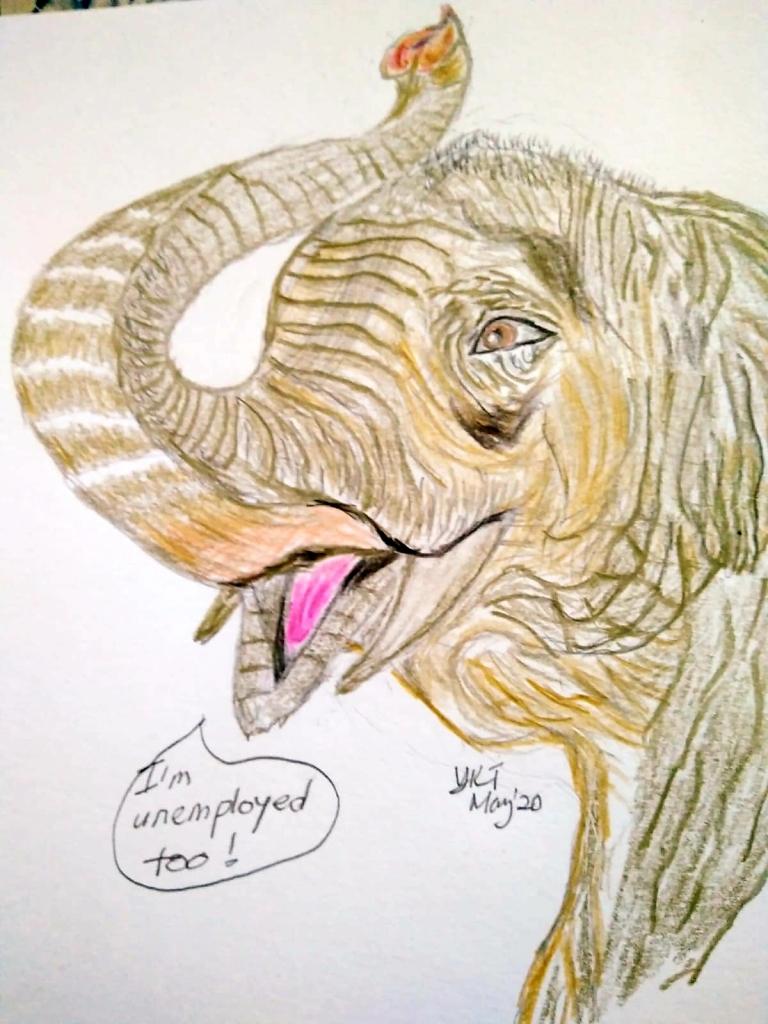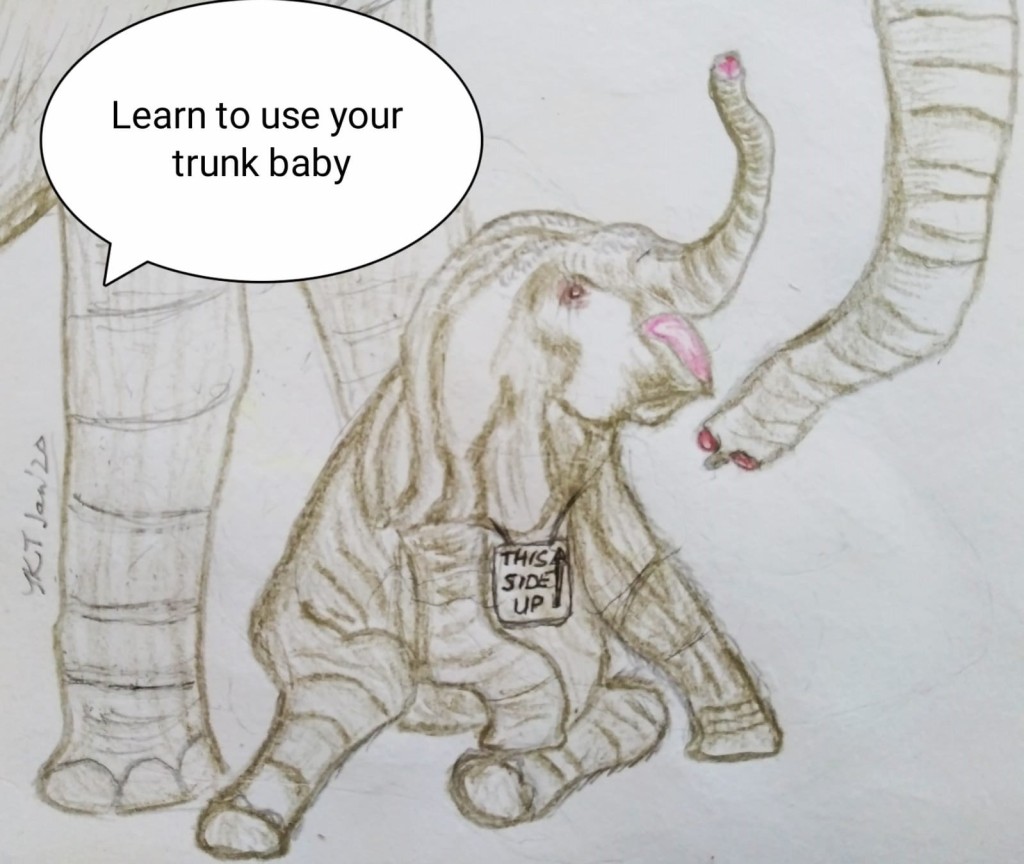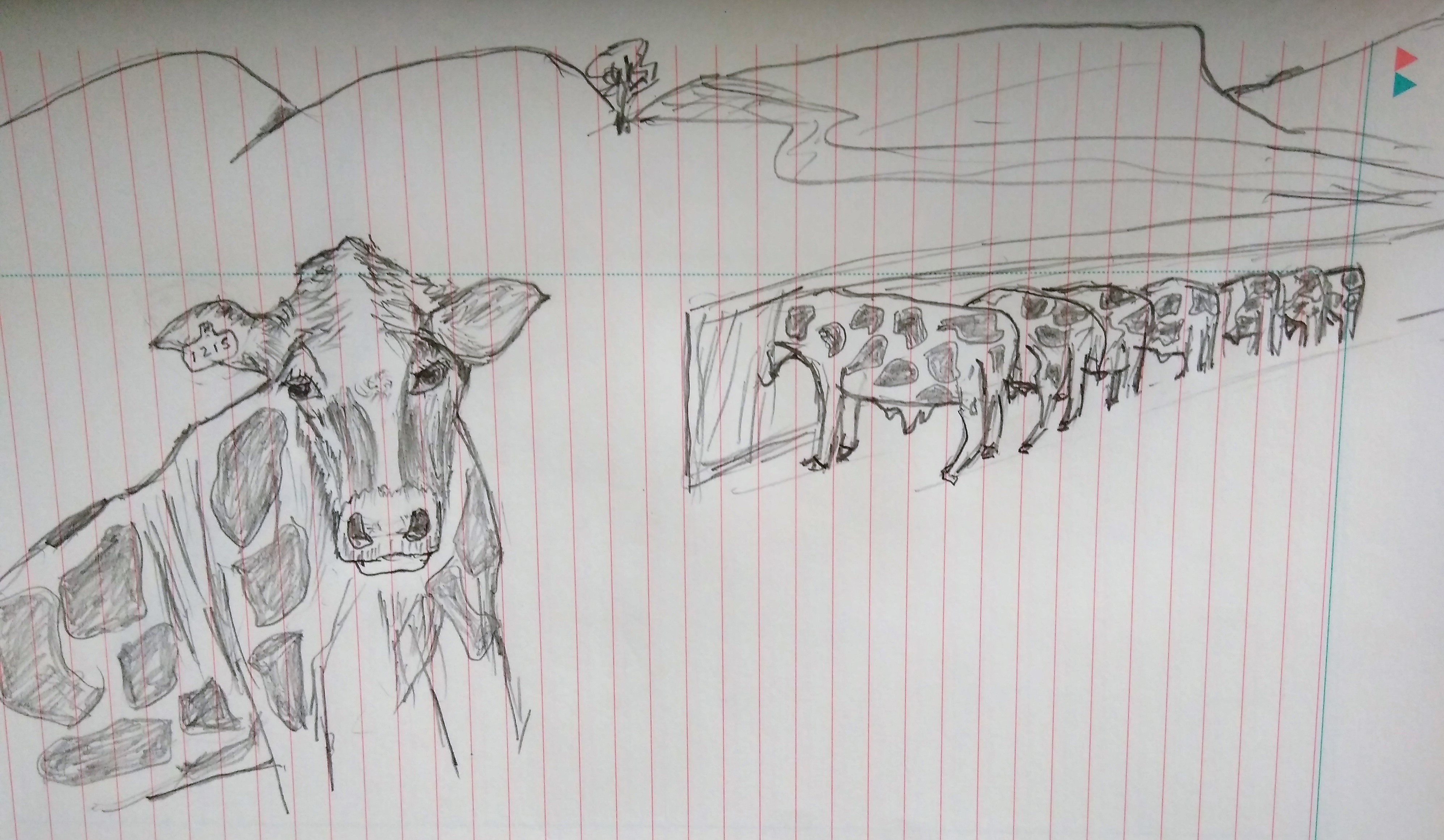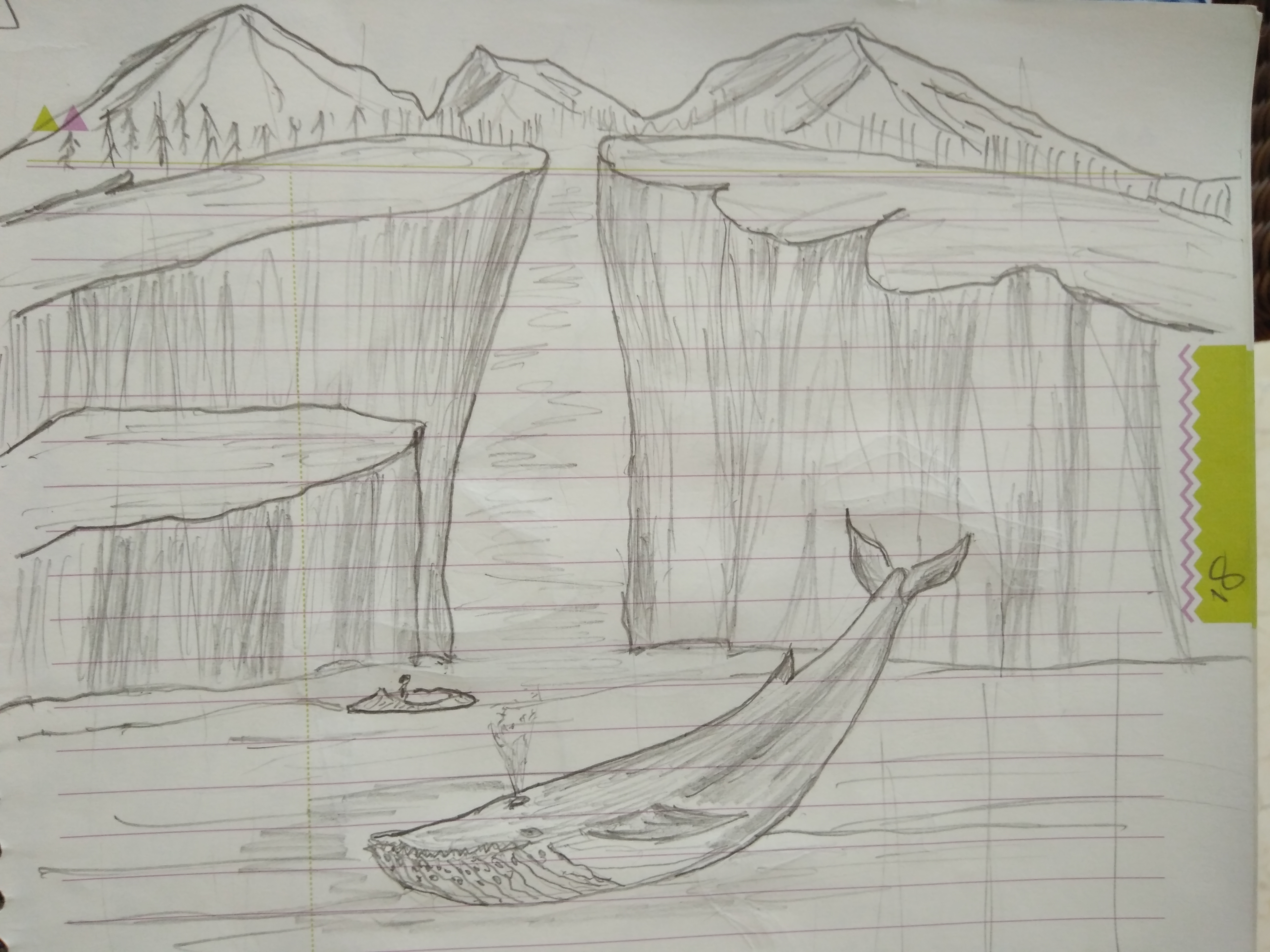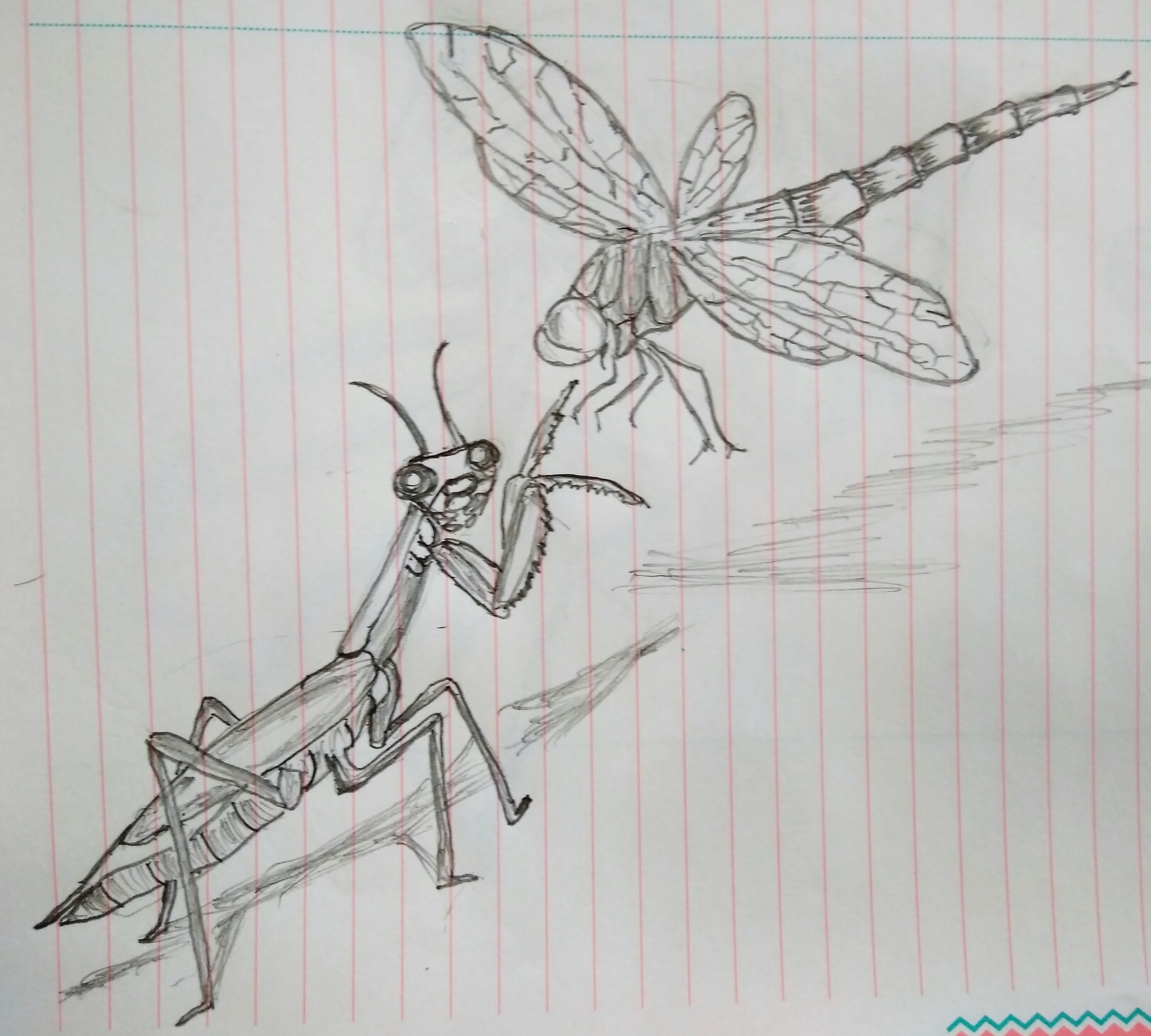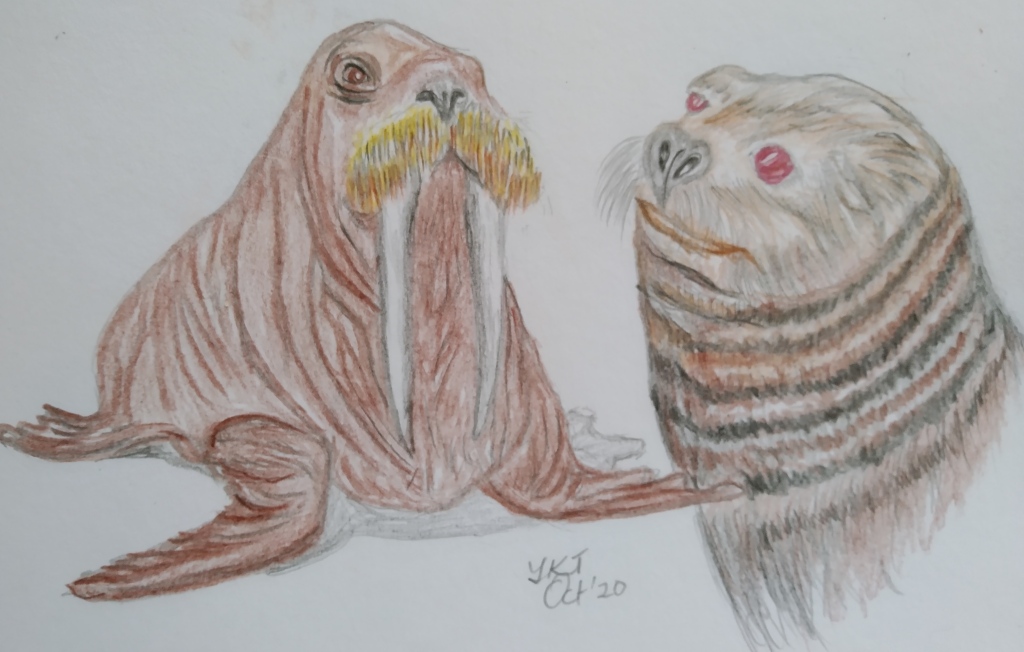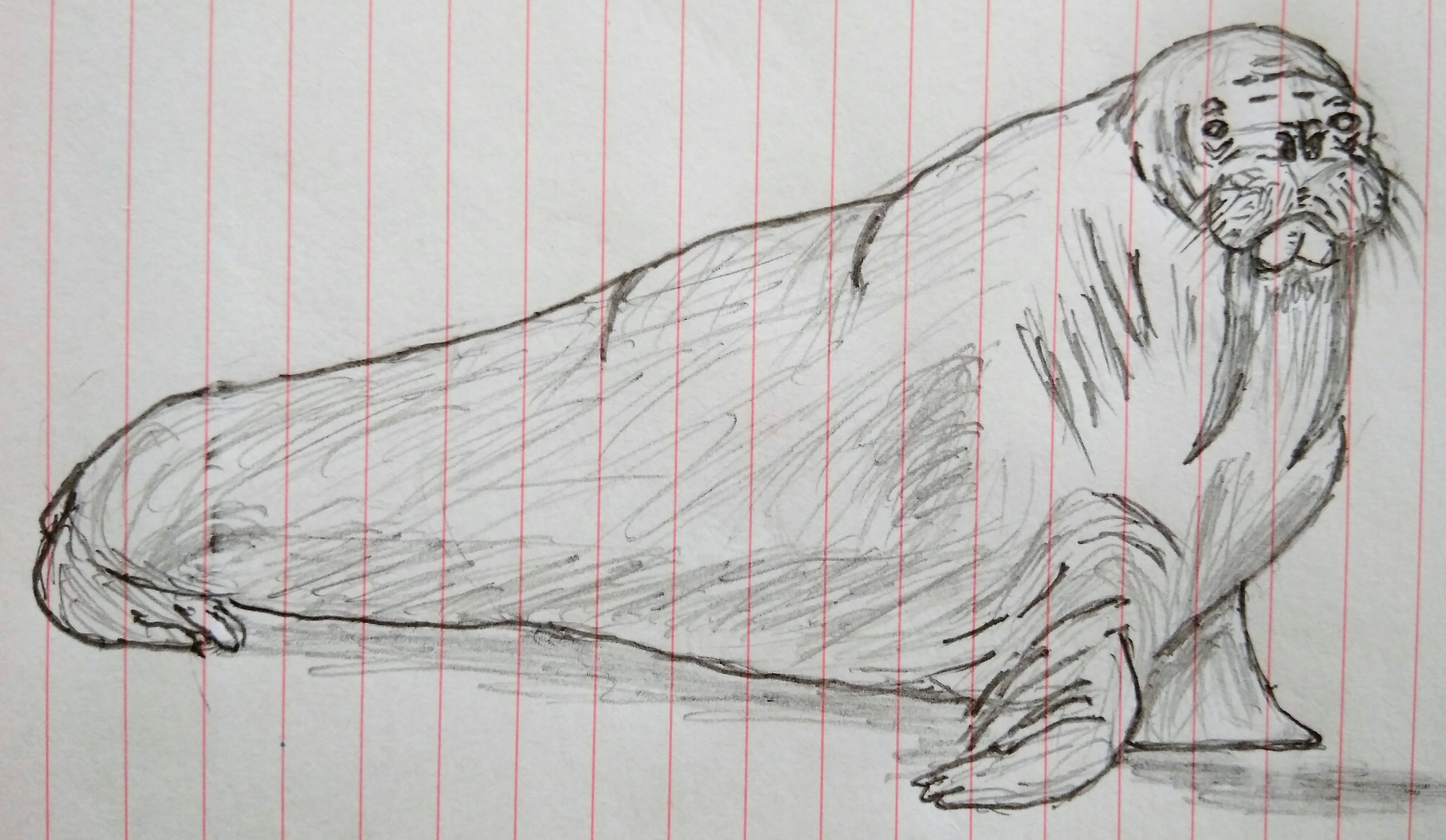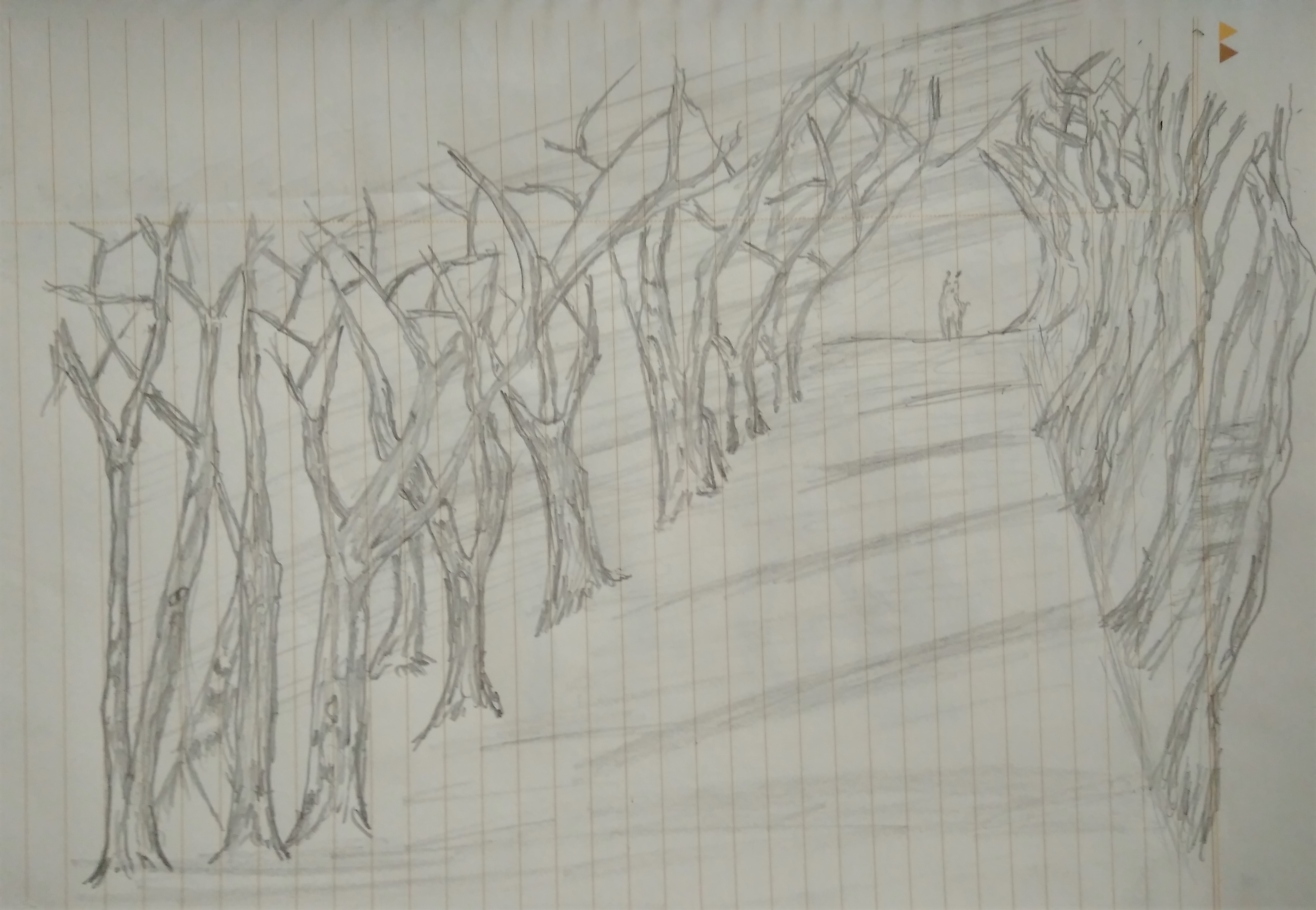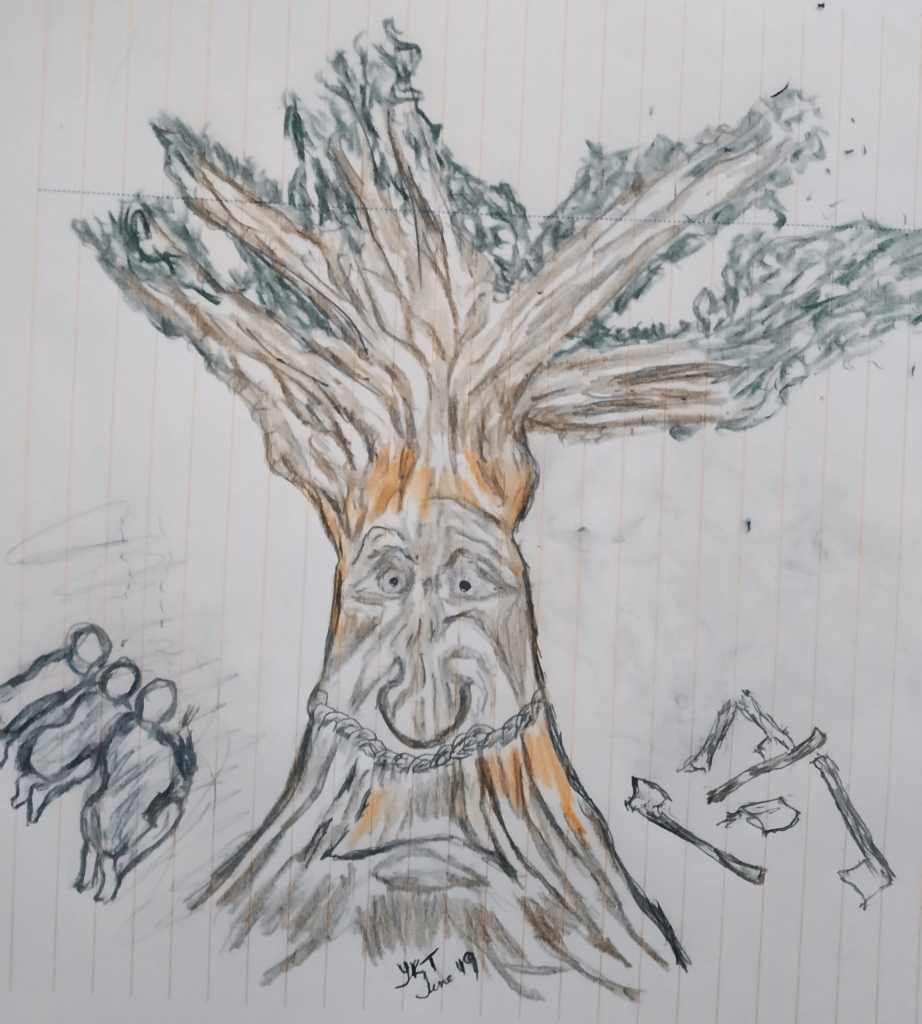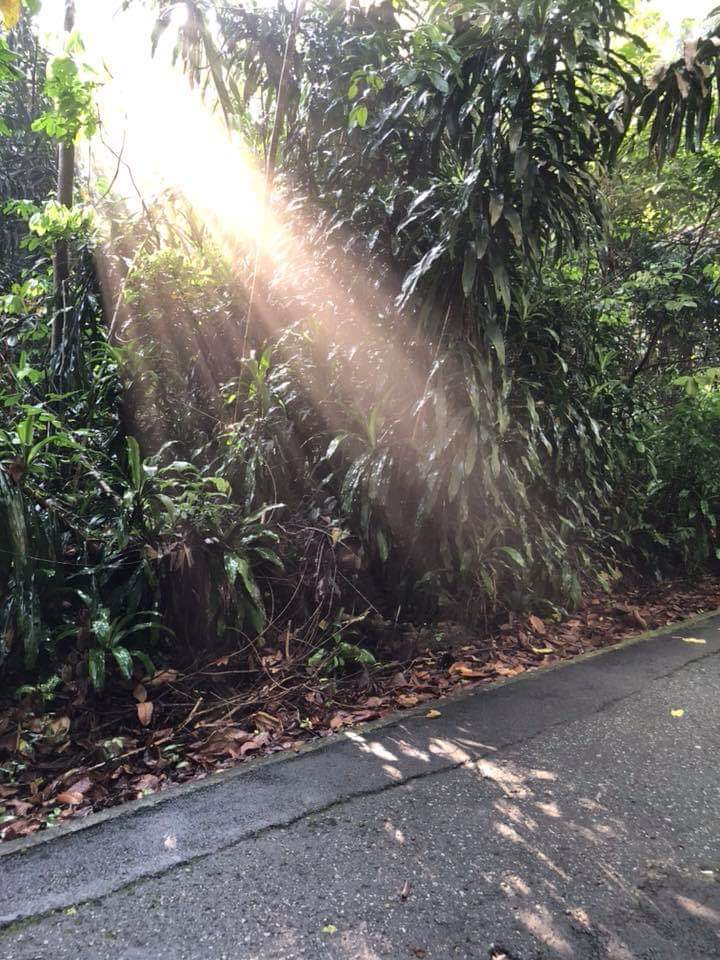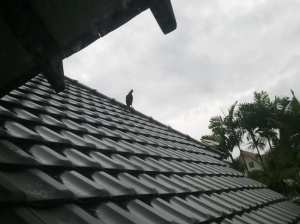The devil wears a mask
Until recently I never thought that I was a misfit all my life. No – not to the extent that I have become a deviant monster or a miscreant worthy of life behind bars. Its just that I have become uncomfortable staying in the mainstream ambitions of society. I thought I am the minority in a strictly ordered country but I realized that there are many people (and not a few respectable ones) who are intellectually residing in the fringes of the mainstream with rather unconventional views and practices. When I was born as a third baby grandma “Purse String” was reluctant to feed an extra mouth. My parents drifted apart when I was weaning and mother had to endure much anguish, insecurity and anxiety during my arrival that some of it must have formed my present countenance. But I was born strong, and chubby-cute – one of the few blessings throughout this life. Because early years was living alone with mother, separated from the other siblings there were several accidents. But physical robustness endured. Only the periods of lonely play formed a melancholic disposition. Early school years though happy academically had several emotional letdowns. My parents were often late bringing me home, after all playmates have left. Being chosen troop leader, the cubmaster abruptly and mysteriously dumped the troop and the puzzlement of not being leader had returned to haunt later in life. Later school years were worse. Academic disappointments in a premier high school left an indelible mark of needing to build self esteem. Hard work became a constant, inward consolation. But it was a poor substitute for family disunity and instability. Christianity became the best moral and mental support for a disparate family life. At that time hope lay also in academic excellence but that also deluded me due to a lack of mental focus. Hard work alone did not pay off in the university. There were just too many burdens and obligations of time so those achievements were at best mediocre. There’s the uncanny ability to nullify every valiant endeavor in life. Every task was an uphill climb, be it the first university year, first job, first assignment. Why? I once asked in my dream. Can I trust anyone, or is it just me? Then I saw in the dream one that holds a specter of justice in His right hand. It was like a cursor in the form of a cross, brilliant and thin like two cross hairs of laser light that extends to infinity.
“Trust everyone, except the Devil” was His reply.
“But who is the Devil?”
“The Devil wears a mask”.
“But everyone I meet in life doesn’t have a mask!” There was silence.
“That’s the point.”
In another dream the reply came from a Foundation offering a job in the United States. I had waited for an inordinately long time for this break in life. I appeared before the search committee, whose chairman was a man with a large, square face, large-set jaws and a bulbous dwarf-like nose – a splitting image of Bob Hope.
“We have carefully evaluated your desire to come to the USA and work as an engineering consultant for our Foundation. Thank you for your patience in waiting 20 years for this. You were one of the very few interested and it was easy to shortlist you as the only recipient of this offer. However our sole benefactor of the Foundation is a devout Hindu and has stipulated that the recipient must devote the rest of his life serving others. (I gasped, as secretly I had wanted to do this all along but as usual, not acted.) Therefore you will have to fulfill one condition of this offer and one only, if you should decide to take up this job.” The next words waited like infinity to come.
“You must become a devoted Hindu, renounce everything else and then come to the USA.”
I woke up sweating. Not less than three quarters of my expected lifespan was trying to become a devout Christian. Now the lure is to give it all up and start over. The lure could not have come at a worst time of life – countless doubts on had been searing for the last decade searching for a meaningful retirement. It seemed like the easiest thing to accede to.
It is just like Moses – when he raised his staff Israel wins but with tiredness the staff falls lower and Israel loses. How much like us when we are vigilant – confidence and strength returns against all adversities and pitfalls. But when faith fails for disappointments and sinful pleasures the battle against life’s problems falters. How much must we keep our hands high with help from friends – to be on top of our challenges mentally, physically and psychologically! (March 2001)
Just this once
I had mourned her loss for nearly two years now. But the dream I had of her return was so surreal that I was awestruck long after the dogs barked me awoke. I had searched long and wide and finally found her under a rock. But given up for dead I was so pleased to find her at her birthday dinner, sane, conscious and lucid. I was to give thanks. But I was so awkward that words hardly appear – just disconnected utterances. (22 August 2013)
Dejavu? (April 2017)
I wanted to die. Last night I was brought back to my teen years struggling to get out of an oppressive upbringing under a deeply stressed parent. It was not entirely clear what I was punished for but I knew all the siblings had to undergo brutal beatings. In this nightmare I had to resolve the unjustified anger but could not. Then the horrible recollection of how I beat the dog the same way I was beaten. I’m sorry, so sorry I cried, for not knowing better that I was taking out on a lesser creature and for not being greater than my tortures. Even the swear words were identical, exactly as she would treat me as a lesser creature. So that is how one’s upbringing brings all the disadvantages when growing into the world at large. No one gives you a discount for being abused as a child, God does not side with the non-confident and the misfits. So I determined I will marry someone entirely different. But she was relatively short-live.
The return of my angel
“Where have you been all this time?” I cried and cried uncontrollably. He had just returned to my safeguard, looking strained. Having “left” me since birth I remained weak as a lost sheep in a storm. “Now what are you lacking?” said he, giving me a withering look. “All the grace due to me since birth”, I said. Everything that other “normal” people received that somehow was omitted in my life – why the curses and the privations? My vulnerability started when I was borne the appendix child. And life is such that vulnerability is always easily abused or exploited. Anyone who has examined historical events and still insists God protects His own all the time (physically) ought to have his/her head examined. The disciple Peter crucified upside-down, Paul beheaded, James put to the sword, Steven stoned, John banished and many unnamed others went through severe incarcerations. But now I say, so what? Who cares if I was behind the door when they handed out luck, or charm, or some such qualities that give you the edge in Life? We do have some other quality that is not so dramatic. Take Daniel who survived the lion’s den or the boiling cauldron. When we give up, perhaps there comes divine protection and certainly there are numerous modern examples of it. Not a norm and we do have the responsibility to look after ourselves. (September-October 2008)
4 am Visitor
He is an angel. Standing unobtrusively at a corner, I knew he must be. Because in dreams there appear certain people or beings that you will be certain what or who they are. He is here for a reason not entirely clear to me. But now Miranda is still in coma and I will plead my cause for him to help restore her. Besides scores are still praying for her recovery. Surely there must be some way of delivery from life’s supreme struggles against suffering other than Death? (June 30 2013)
The evenings of our lives bring along unsettling thoughts of death. Well-being becomes unsustainable we must not just trundle along into nothingness. (Feb 29 2016)
I won’t kill another spider again…
He was acrobatic when I came near to it at the washbasin, making repeated somersaults, so happy to be alive. It was a juvenile so full of delight of living in a nice environment in my clean toilet, as if to shout at me, “See, I can jump !” Then a dark cloud came over me – imagining a fully grown brown spider leading her brood of offspring around my marble basin top. After the spray and it was crumbled up to this day I’ve never felt so morose. How I wish that young life can come again to my parlor, celebrating life. I looked and looked, but no more signs of life came to my mirror. (June 2013)
The train
Two weeks of distressed mind after a costly break-in left me unhinged mentally. One night I dreamt I was in hell, tour-guided by some devil. The place was like a huge slaughterhouse. Animal parts were everywhere. And the smell of blood and death. So oppressive and macabre that the gloom will drive you to escape by any means. Then the tour guide will gleefully point to one severed body part and another, gruesome and grisly. The sight and smell was enough to made my head explode and I struggled to wake, but could not, paralyzed. Then there was a sudden loud noise. An ironclad train rushes by – one so solid and strong that no one can get in if you’re outside and anyone inside completely safe from the savagery outside. I yearned to get on board. Escape this terror! But it zoomed on with such ferocity that its impossible if you’re not already on board. I stirred with great effort and finally woke, panting. It was the gospel train. (Feb 2018)
Out of the dust pan
Grandma’s hostility increased when she saw how fat I was getting. That was the time (around 1949) when they introduced re-constituted baby milk-powder. In my growing years I had determined not to fit the black sheep label that had befallen me. Already the highest consumer of powdered milk I had the redoubtable reputation of wearing out the most sandals. Three of us were allotted each a new one only at the new (Spring) year but mine was getting frayed months before. If I were given the chore to transport a bowl of soup, invariably its contents will be spilled or its container dashed to pieces. Of course I’d have fallen over it and soiled my clothes. My accident-proneness included walking headlong into moving bicycles or street pillars. Mine was the mouth with the most teeth extracted- besides saying the wrong thing at the right time. This was equal to the propensity to lose school textbooks, stationery, even entire schoolbags, or invariably lose my way in un-crowded places. I got pummeled or knuckled on the head for forgetting things as soon as I turn the corner. I would buy corn starch instead of flour (they sound almost the same in my dialect), measured the floor lengthwise instead of breath or eat from the wrong bowl. Mother would have spiked father’s bowl with some temple incense to minimize infidelity. Yet there was fight left in me. It developed the mettle of some fortitude to get up and soldier on. Circumstances larger than life at those moments were our lot to take. Experience impinged. (August 2008)
Roadside Nutrition
Each morning my dachunds walk me. Their incessant barks at the crack of dawn ensure this. Invariably we would stop by the roadside. Have you ever wonder how much specie of herbs, shrubs, fern and other flora exists on the other side of the bitumen? It takes someone of knowledge to tell which are edible or which have medicinal value. But the dogs knew exactly which to ingest with one sniff of their nostrils. No one taught them nor have they gained knowledge from books or television. All three will take dozens of bites at the edible ones, and then one would lift one hind leg to neatly pee on it. Like saying, “That was delicious, now grow!” (2012)
“Plants can survive without humans from time immemorial. But without them humans cannot live even for a single day!” – Dr. T Makino, renown world botanist.
Breathless days
Remember when you had to do the “big” things in life as fast as possible? Life was so “short”. You’re beginning to be too “old” to get a degree, train for a new game, learn a new musical instrument. And get a life partner! Those were breathless days. (July 2008)
The Ginseng root (or the primitive sense of racial origins)
When I was denied the chance of settling down in an affluent, Western country as a young man, little did I knew that I’ve been circumvented from the larger (and deeper) question of being comfortable with my racial Chinese-ness, until my later years. Once caught up with Western values of advancement and “progress”, freedom of self-assertion and fulfillment, you tend to lose your Asian roots – and cannot escape the spots of looking and behaving “Chinese”, different from the mainstream “white” establishment. Some sense the envy of not being the same as “them”, as they compare the discrepancy of recognizing their achievement. The legacy of passing this “burden” to your children and future descendents is very real. They may even attribute their loss to you, unless they lose their Asian-ness by genetic assimilation – but then you have effectively lost your genes. Not a big deal. The beauty of being comfortable in your own skin is authentic. However I am often persuaded that being away from your countrymen may give you a little inspiration to rise above them. Beyond any economic comparison. (September 2008)
Leopard skins
People in the world’s richest country today may not realize that back in the fifties many Singaporeans lived in abject poverty. In the village I hailed from clothes were worn till they became rags and rice was accounted for every grain cooked. Thrifty to a fault this frugal mentality was burned into us even in days of wealth that it takes a nightmare to have it surface once in a while.
Me and my friends were on our way to attend a grand reunion. All our friends, relatives, associates, neighbors, former teachers and classmates would be looking forward to seeing and sharing what we have achieved and gotten over our hardships in life. Some would be so happy secretly to learn about admired seniors falling into hard times while juniors would flaunt their successes to their envious seniors or contemporaries. This was the time for outcasts and the despised to become accepted and respected. A lot of pride on the line. As we approach the venue, horror of horrors we found we were not dressed for the occasion. We were wearing rags and torn sleeves – clothes recycled from garbage bins. They were of garish colors as if the material were sewn together from patches of rags. And a musky smell of neglect. Try as we might to rip them off we couldn’t – they were the only garments on our backs. We felt like escaping convicts or lunatics, unable to cast off our identity. Despite our gleaming Mercedes, pompous homes and fat bank accounts, deep inside we were church mice. Even after waking up to find that it was just a dream. (December 2013)
The flip side – another kind of society
The ability to make choices is a treasured pleasure. It can have its difficulties, but it gives a strange sense of freedom. Western societies see this most in their choice of governments. However here in Singapore a whole generation has grown up without having a “real” choice there. The ruling government in our history will probably be known in the future as “The LKY era”. The members are a law unto themselves. That “law” ensures the continuity of the party and synonymously, for a long time, the survival of Singapore. Dwight Eisenhower observed rather succinctly in the 60s, that Singapore is a small boat with an over-sized engine. The culture of success can be compared to the iron grip of once impervious Tito’s ruling council of Yugoslavia, but for the sheer intellect of foreseeing many problems long before they arise. Few if any crisis will sink the country, barring really unforeseen events capable of that. The other element not so clear is that of political will among the rookies, that something which won the hearts and minds of people against all odds and threats. Otherwise everything is fine-tuned through the years; with checks and balances to ensure the “right thing” is done all the time – throughout all levels of society. What is left is the product – will new generations of the future appreciate, and more importantly, assimilate the effort that has been put in place, rather than flee to larger havens? Singapore’s influence in the world has exceeded all expectations from such a small place. But it will forever, as it is, be often dismissed by larger world powers as too small a place to be of any significance. One always itches to see what life is like in the flip side. Will there truly be some benevolence in being able to get another point of view in politics? Another day in another generation? If you ask me my view is grim for future of Singaporeans. Because nobody is born with a natural penchant for working hard – so hard as to ensure our last 50 years of prosperity is not just a one-off event from an unusual founder. Future generations will not want to work that hard. There must be an easier way. And the tendency is to slide downhill. (December 2008)
Failure is an option (Feb 2014)
Failed experiments done flawlessly hide the seeds of greatest inventions or discoveries. The first tragedy is to give up repeating the experiments without pondering the source of inconsistencies. The second is to delude ourselves taking shortcuts to justify our failures, or not even to try at all. The third, and greatest tragedy of all is to be punished, directly or indirectly for our failures. (“The discovery of radium” by Pierre and Marie Curie)
Absence of hunger
The youth today is in dire need for ideals. Not that kind of youthful exuberance that they can do anything great or fantastic or something unrealistic – but the conviction of tested values of honesty, integrity thrift and self-reliance. Just the other day I espied a boy waiting for his father to ferry him to school. His face then must represent many others of his age. It is like an expression of resentment that he must wait for dad to bring him around, but that he would rather spend a whole day frolicking with his friends than 20 minutes with him. Ha ha his friends must have jested – always dependent on father! But perhaps time will graduate them into sterner beings. Like having an imagination, which must come with hard work, reliability and attention to details. Most of all, the absence of an impenetrable sense of changing history, given the situations that throw their destiny into what, where and why they are what they are. Having said that I must admit that there is more than hard work needed in this world. You can work your butt off, but often, if you do not have a boss who will root for you and generous enough to push you upwards, or some other “luck” it can be quite futile. True, it is better to be lucky than good. (Oct 2008)
The shop-house on Amoy Street
I would bawl with tears at the top of my voice when my mother told me that it was time for my weekly stay at the shop-house in Amoy Street. Why because it was a most depressing and desolate place. But at 6 years old all my protestations will be overruled and I would be brought, deeply crest-fallen and down-casted to spend several days in “purgatory”. If you ever walk down Amoy Street in the ‘50s you will be greeted by the dank smell from its drains and the dirty, dilapidated shop-houses. Then especially in the afternoons from about 2 to 5 pm there would be nothing – no sound of birds or the sight of flowers, or even the occasional cacophony of Cantonese opera from Redifusion loudspeaker boxes, as if the world was at its end. Hardly any soul walks the drab street in the heat and humidity – with no one to play with I was left to my devices which was nothing in the bare floor of the shop. Often I would fall asleep on the broken wooden stool but on awakening I would feel even more morose with nothing of interest happening around to cheer a curious boy. Bleak, barren, mournful and hopeless – no word can adequately describe the God-forsaken-ness of that Amoy Street corner. The only bright spot was the jumping with joy as my father drove up to collect me back to civilization. (1955)
Disgusted looking up (or the failures of those I respected)
I once had a dream about three friends growing up in Singapore. He was skinny and pale looking, a bit winsome for his 45 years. His face seems to break into a dimpled smile any moment but hides the scars of his life. Then there was this plumpish girl. The plain Jane type – the kind that seems to have made practical decisions all her life. And there was me. (Feb 2008)
I met her by chance at a food court somewhere that I cannot recall. She said that Shan had disappeared mysteriously 5 years ago after CP but she continued to live in Holland Road. He reversed engineered a very high-tech bomb while working on firing pins for nuclear devices. Quickly she gave me a small shiny canister and said to give to him. Abruptly she disappeared into the crowd. Have not seen Shan since RI A-levels and vaguely remember his wife. I thought I saw a flash of her in the corridor earlier but she was not with him. Someone was stalking her – a sexy, striking blonde, tall and stunning. I said hullo, not realizing that she had been watching me too. Then the tall blonde came and sat opposite me, starting a conversation and starting to sexually arouse me with her legs and hands from under the table. I moistened and felt the urge to escape. Quickly excusing myself I asked the waitress where the men’s room was. I took leave but her eyes followed me two floors up and to the left. I found the toilet, but eyed her from a distance. Suddenly Shan appeared from nowhere and pulled me off to a side, out of view. I passed him the exchange. “Dispense of the dud”, he said, “she’s a killer – usually gives sex first.” As we walked to the lift she spotted me, in her hands what looked like a bazooka. “I am a piece of meat- she’s a top agent”, I could hear myself speaking. I saw her sauntered towards the men’s and slipped in as Shan and I entered the lift downwards. Parting ways I thought I’ll never see him again. On level 4, I saw him walked to the stairway and entered a door. I glanced through the glass partition and saw her waving at him and then pointed the bazooka at me. I ducked just in time behind a walled divider, exited the elevator quickly and mingled with the shopping crowd in the food court. On the way out I saw a baby in a tram. As I leave I could hear the young mother talking to the infant.
“Where did you get that Jimmy?” he burped gleefully, with the shiny tubing in his hands, too young to know not to accept gifts from strangers.
I walked into the sunshine with a spring in my gait, relieved to escape the clutches of the hot, black nymph. (October 2008)
Post-note July 2013: NSA get real!! I was inexorably satisfied with the nymph but not the shiny!
When Truth confronted the Catholic Church
It recoiled. Not since medieval times has the Papacy ended in resignation when Pope Benedict decided it was enough. The Devil had predated the Vatican to destroy it from the inside with predatory pedophilia practices and fiscal corruption. So established was the Papal bureaucracy that subterfuge pervaded at many levels and yet operated in a cloak of spirituality. How came it so? The answer appeared in the simple response – “I’m a priest and I have this need.” It could very well be a teacher or any respectable occupation other than a priest. So close to home and so close to God! Humans, unlike animals know too well the dangers of being socially indiscreet and non-circumspect, even in a sovereign state like the Vatican City, a country having a law to itself. We all know there is a time and place for pleasure and serious work. And who we enjoy our pleasures with. But it may be much easier just being an animal. (2013)
A time for giving and believing despite all odds
Singing carols like a nonchalant child mumbling words vacantly because he was dragged to Sunday church. Why is it usually in church encouraging words about God and His care for us are so real? Once we return to our own world the reality of God seems doubtful – the relative we prayed for deliverance from her suffering – she still suffered – and died. The wandering jobless vagrants still comes to the door, the rich wicked still rule and rub the noses of the oppressed into the mud. But few men hardly escape the touch of the Spirit of Christmas. The enchantment of carols, the yuletide cheers of people kinder than the ordinary, and the traditional trappings of giving and receiving. (December 2008)
The Mary Complex
Call themselves followers of Christ with love for fellow beings and believers, but when it comes to the crunch it is each man or woman to themselves. That is the mainstream church-goers’ unspoken creed, even if they know or have heard often of the proclamation of love or charity for one another. We see it all the time – whether it is the rush to the toilet, the best seats on the bus or theater or the most delectable viands on the table. Rarely will you meet one who is altruistic enough to sacrifice one’s discomfort for others, let alone lay down one’s life that others might live. The act of selfishness goes one further degree in protecting one’s spouse or family. But there is one exception. You can seek for yourself to the exclusion of others – even family or parents if it is to selfishly seek Christ. Forget about husbands, wives, children or friends for you to be worthy of Him. It may appear to be the pinnacle of self-centerness but consider this: If anyone wants to detract you from your affection and devotion to Christ let them try it for themselves to seek Him wholeheartedly. We all ought to do the necessary work of Martha but better still keep the heart of Mary. (July 2011)
Devoid of me (the bane of our existence)
Have you ever seen yourself interacting with other people in a video or a mirror? If like me, you had the agony of hating the un-loveliness of yourself you would wish you could consciously change your demeanor, or even your personality, into someone more likeable, approachable or friendly even. I would sometimes recoil at the utterances that spewed from my mouth or the body language that followed. It will be really good to be able to see the few opportunities that came my way than the disappointments that scarred my life. We hear of the “Love that will not let me go”, who in spite of our “filthy rags” is willing to transform us into Beings not unlike the angels of eternity, and even more. If God does not love me no one else would. But I still do not like what I see of myself – if I get to see it.
Dogs are different. They will always come pounding home to you, their ears upturned. Have you ever read Natsume Soeseki’s “I am a cat”? We tend to call them or even talk to them, expecting them to face us, like children do. But probably why they often do not is because they already knew our faces and expressions, from their viewpoint. They are just being themselves. And therein is the crux of the matter. (Dec 2008)
The apparent ordinariness of Jesus
He was a nobody in the sense of royalty or political might, in the current status of societal life at His time, although His earthly lineage, in a tortuous way, traces back to King David and Solomon. He was, in the main, known to walk the streets with a ragtag of followers doing superhuman things. Yet there was not any ostentatious show of force towards those He criticized and others who eventually succeeded in plotting His death. It does however open a door to many doubters today. Isn’t it possible that he is after all, an ordinary man, succumbed to pain and death just like any of us? And doesn’t the sustainability of the faith in Him today depends on the reality of His presence in the lives of believers? Not make-believe that He will solve all your life’s problems like He did on the streets of old Palestine, but a real-life response as if human to human. Only when God is felt truly relevant in His dealings with the travails of our daily lives will faith stand on its own merits, nothing less. And herein lies my failing of my so-called “faith”. (December 2008)
Flailing Trek
It is a dark night, bitterly cold, so cold that you could even see it in the dark. I am struggling to walk up the road home. Almost impossible to walk forward because the wind is so strong that it pushes me back each step I take, like a wall against me. Despite all my effort I could move only in painfully slow motion. I lower myself to resist it, knowing that I only have a few hundred yards to go home. As the cold wind begins to bite me deeply I suddenly realize that I am walking in circles. Then I realize it is just a dream – just like the Kurozawa movie where a group of mountaineers battling certain death from the snowstorm suddenly find that they had just circled base camp. (October 5 2012)
Death Struggle
Nine out of ten dreams are morbid to me. Often to escape instant death. Bullets pierce my body and I expect searing pain but there was nothing, shot after shot – as seen on TV. So I get multiply shot, stabbed or choked on but for some reason I kept running. Just last night I knew I was visited by the angel of death. He had a sweet cherubic face but I had no doubt of his power. Somehow he entered my bedroom – I guessed through the window (which was closed). But instead of fighting him I knew it was best to beg for mercy. Then somehow he relented and left. I quickly secured all doors and windows but upon returning to bed there he was again, his hand choking me on the throat. I knew I could fight back by choking him with all my strength but inside me I knew it would be instant death for me. That was when I awoke. (June 2013)
Nocturnal ruminations
On some nights when all sleep flees I could lay there for endless minutes trying to cut off uncontrollable random thoughts. I could hear my heart. It either sounds like a pile-driver going off in a construction site – the resonating “bang”, then a hiss of escaping air, or the muffled beating of a mattress when being sunned outside. These random thoughts could go on for so long that it might be worthwhile going to the bathroom at the slightest of unease. Sometimes the aches of the day’s labors shoot through the limbs as I return to the bed and, in the ensuing silence you can hear the sonorous drain of water through the faucet piping. Then after a long time, you’d have thought that all water is drained – but no – I could still hear the rippling, ringing of continuous flow echoing into the night. I must have left the tap running, I thought – and dragged myself up into the bathroom except that there was no water. Strange, I thought, and proceeded to lumber heavily back to the bed. My hands moved over to feel the cool sheets and received a rude shock. I had actually never left the bed, either to ease myself or to return to turn the tap off. But the sound of running water was still ringing in my head… then after some time there was a “shoosh shoosh” like a giant scythe slashing at jungle brush. I turned but it was just my heavy breathing seconds earlier…. (Nov-Dec 2008)
Requiem – a night of sorrows
It was as hideous a storm as you could get. It was about to break out of the sky, awash with rapidly moving clouds in the night sky. But we were expecting something – our pet seraphim. It was about to fly through the dark clouds any moment to rejoin us – me and M. But why a seraphim and not one of our dear dogs? I don’t know – perhaps one of the departed ones coming back to us at a most difficult time of our lives. M had to walk out to the garden to see whether it was flying in, and for some reason I was hanging in the shadows. But I had a warm feeling that its return was to comfort us at a time of deep sorrow. (June 15, 2012)
Unforgettable cries of helplessness (Dec 2020)
She was gone but I cannot forget the sound of her throes of death. How can I repay her constant companionship with hopelessness? She’s the last remaining comfort from my loved one. Utter loneliness from separation. Then I slept finally last night. And the dream was so real. The cab-driver I seemed to know and he was driving me out of downtown. I could see main street so clearly. Then as we start to drive out of Raffles Quay I could see the brilliant lights passed the top of Esplanade roof. It was not just lights – it looked like shooting meteors from some space-ship attacking Earth. It hit the road around us and I could smell the burning heat. We’re being attacked by space-invaders – the burning around frightening! Quick! Get out! Drive! Is this real? Bizarre at a sad, sad time like this…
The Lanyard Tree
Two lesbians were frolicking in the Jacuzzi when God said to me – Go into them and I will show you how unreal the Christians are in my church in their white-washed clothes like the Pharisees– condemning the world. So I joined them and I felt how trapped are they in their pleasures and lust – there seems no end to their desires – trying everything in their imaginations to fulfill themselves despite feeling empty each time. They even instruct me to join in their cavorting, hoping that doing the natural thing will fill their longings. And God said: I am able to save them and deliver them from their imprisonment and eternal depression. How much more is there in the world of sufferers who are imprisoned by events beyond their control and not of their own sins – people who lost jobs and going hungry – people shivering in the cold of abandonment and forlorn, without family, status, or even self-respect, the masses that have lost everything in conflicts not of their own, without even a face, that needs me. I come that they will be delivered.
And I said: Lord, even if you do not help me in my needs and will not give me the desires of my heart where I have kept your Word, I will still remain true, because at the end I do not need to feel that perhaps if I had kept my bargain with you things will be better…
Then the Hand of God came forward to me with a bunch of branches and Sacred leaves. (Jan 28 2009)
John 3:16
The prevenient basis of God saving the world here starts with the motive of Love. The puppy that we gave away from birth is always in my mind whenever I am in the neighborhood – I will always need to give it love whenever I can. Her response to my cuddle makes it easier but the human need to give and receive love is basic, and unconditional. Such is the image that God has left us.
Just last night I had the sudden discovery of what completely renewed means. Salvation transformed me back to the Original design, sparkling and utterly pure in contrast to the filthy, stained oily body, ruined by whatever I tend to blame on – parentage, surroundings or just plain bad luck. Immaculately polished to be like the unspoiled newborn again (only better), I am free to be the best and highest that can be – true blue and a yard wide. (Feb 2009)
Church subculture deadens
Is God in church today?
We go there every week, doing predictable things – the liturgy (if any), simple folding of the hands and heads bowing of prayer. Even the words of bible-based hymns or tissue-type choruses can be muttered mindlessly. And amen said ad nauseum. Some may be afraid to say anything else for fear that the church “authorities” were not expecting anything other than something “sacrosanct”. Is God limited to this ritualistic practice of Sabbath? Then He is not my God. He is not even to be held ransom to the scriptures, as some preachers have done in a demanding way. He is a God of surprises, an active movement of Love and Majesty that no human mind can even try to second guess. He is not constrained (nor ever was) by the customs of men, however devout they thought themselves, even if they were meant as acts of worship. God is presently in the company of those with dire needs, in, around and outside of church, in far-flung oppressed places where His serving children are under threats of darkness. He is in our hurting hearts crying with voices hoarse with pleadings for His hand of deliverance, sometimes seemingly so slow in coming. O God if only we can live in your Presence as Moses, Abraham and the Twelve! But silence is also a magnificent attribute of a Thrice Holy God…(Feb 2009)
Two Cultures
I get rather impatient with local speakers coming with predictable or non-sequitor utterances in church or otherwise. Maybe it is my exposure to western audiences or communication, a rather unfair comparison to locals speaking only local English and going to schools with local English taught by teachers who were taught the same way. From the Colonies comes a psyche of audiences different from those with post Independence upbringing. You will really appreciate some speakers for their straight-faced unflappable humor. Contrarily, there is a severe depth of seriousness of substance and grimness of purpose in their liturgy, sometimes in a draconian headmaster style of delivery. The gravity of thought is a rarity in the levity of fun-filled discovery of knowledge. To them the locals appear frivolous, to the locals they come across as stifling stuffed shirts. But speaking is only the symptom – if you come from a suffocating, strait-jacketed, stifling education system, with neither imagination nor fun in learning, you reap what is sown. (Oct 2000)
Two Pleasures
Like the human race, dogs and other living things eat whatever they can, and mate whenever expedient. Often, I do not seem to be able to get enough of a drink or food I like. It is a tonic to the monotony and grime of a hard day’s work. However much I drink, the satisfaction yearns for more and one can only drink or eat to a level of non-ingestion. Sex on the other hand can be a healthy pleasurable release of an extreme degree. However consummate, food binging brings only a hangover of sorts. Immoral sex is hemlock. So then can one conclude therefore that a sexual release that is not immoral a reasonable pleasure that is also necessary to escape penned-up emotions and the body’s in-built instincts and urges that has been denied? (Feb 24 2009)
Max Revaldo
The coffee is free there. But with so many varieties today that does not amount to much. Besides many would not touch the brew at the time of the happy hour. But it is a place to ponder life anew. Once a while oldies would permeate from the music-box and you can swear that you can remember exactly the settings when you first heard the song from long ago.
If you like me tend to review the hardships life has offered us, maybe sometimes we can take comfort not by comparing how others have done better but how far we have already come from our humble or distraught beginnings. If we all have the same starting points in life then comparison may be realistic but no – why not just reassure ourselves that though we have to go through dark tunnels we have still arrived not too far behind others. What about those behind us? Indeed, had it not been for dark tunnels maybe we would not have the fortitude to come thus far? Perhaps we should be judged not so much by how far we completed the race but in spite of the vicissitudes that came our way. Such is the struggle against life’s challenges – sometimes to the point of despair. We can be down to our grey hairs and buckled knees and still the obstacles keep coming…
Can it be possible that one be born with absolutely no serendipity? Maybe just fling this thought to the wind and like Max’s Popcorns slogan, “Eat all you can, and maybe leave some for me.” Sometimes it is not about eating all you can, but eating while the going is good. Take the occasion when we had a visiting expert and we were entertaining him for dinner at a joint like Max’s.
He was an authority in welding and my friend, a tall ex American GI-specialist was playing host. Being a smoker and aged seventy-five, my friend could not stop coughing when we entered the diner. But he knew the staff well and after making our steak orders, settled down expecting good service. The steak did not come soon, even though the restaurant was not crowded. When it came, my friend had difficulty slicing it. After much hand waving, my friend, coughing incessantly managed to get the head-waiter. He was livid. In between gasps he shouted, “What kinda service is this? Take this piece of crap and show me how you would eat it! ”. Then he grabbed the meat in his large hand like you would a piece of rag and flung it onto the head-waiter’s tray. “I am paying only for the drinks, not the steak! “, he burst forth. Both the visitor and I continued, sheepishly eating our portions, quiet as mice. We did not get to discuss welding that evening.
(Mar 10 2009)
(Picture of Max Revaldos’ joint here)
The bull that will not be cowed
He was a big one – black and beasty. But he was confined to the enclosure for transport to where I do not know. All I had in my dream was that he kept coming to me – agitated and snorting. Why? – to run from the unfamiliar smell of the enclosure. It was the smell of deodorant or shampoo that Sister had used excessively – to him it was that overpowering that he thrashed and kicked to come away to me. My heart welled up in sorrow. Why must a rich, strong life end up in Suffering and Death?
Three Useless gifts (July 22 2015)
First – being a worry wart. I think and fear for everything and every negatively conceived possibility but do nothing nor persevere to change. Second – a sexual attractiveness to females (Yes – a gift !!). What use is that if you only mate once in your belief? And then what after a voyeurism? Lastly a gift to have great hindsight. What for? It’s like driving by the rear-view mirror. Nobody can prove you wrong but nobody can praise you for seeing it coming. But there is one “gift” I crave – that was given out while I was behind the door. Call it what you like – luck.
If only eggs have wings
I stared at my ball in dismay. I had expected worse after it hit the tree with the disconcerting thud, but approaching it I found it nestled next to the foot of a lamp-post. But wait, what’s this? Next to my white golf ball was another elliptical, bluish object – an egg not half the size. So helpless and vulnerable as if cowering from me with trepidation my heart went out in sympathy. It could be easy breakfast for the numerous wandering lizards, or squirrels or other slithering creatures near the lake. It must have felt warm when I scooped it up in my palm. If I place it at the neck of the nearest tree perhaps its owner may find it, or maybe (shudder) something else.
Didn’t we all start this way? One weak move in our growing years and we could be dead meat. Remember we were so short in every department that mere existence was the only daily preoccupation. So now we have legs or wings even. But we can be still short. (April 2009)
One night (in my dream) I thought I met someone from church. He was a youth worker, responsible, conscientious. But that night he looked grim. We were staring at the large padlocks that he had just put on the door to the church basement. “I had to change the locks to a stronger one – the young people are having wild parties and smoking pot down there till the small hours.” I looked at the locks closer – they were large bicycle locks – U-shaped that thread through the door handles. The basement room was actually rather small – much like a dungeon. Why would they party there, except it was exclusive and secretive? Then he took out his new tiny hand phone – seems like the latest gadget, to call his wife. But he could only hear the words “I can’t, I can’t…” It was then that we knew she is dead – unable to communicate from beyond the grave.
Jungle Fowl
He was up there on the roof, statuesque. I didn’t put up a weather-vane there did I? Just as I was thinking its head tilted, right eye skywards. Then it turned forward, its full comb quivering, like a army general. It was staring in full commanding view of the road in front. It is the first day of the year of the Snake. We were also visited by snakes in the year of the Rat. I wonder what good luck it would be if a Rooster comes visiting in the year of the Rooster. (10 Feb 2013)
Its beauty belies the venom
This morning I saw a snake on the road which wasn’t dead or headless. I had first thought it was a large blue rubber band that had fallen off some motor-cycle as it whizzed by. As I stepped closer to examine the fallen fastener it moved. Its beauty belies its venom – that of the blue coral snake. Another lesson of being blindly attracted to an object (or person) of beauty without realizing the extend of its bite. (Mar 2013)
The epiphany of being oneself
Today I discovered something of myself with a significance that emerged slowly of epic proportion. All my days before retirement were spent on achievement of one thing or other. And I dare say, the same for most of my cohorts growing up. This bent on climbing upwards the economic ladder, like saplings stumbling upwards to the sunlight through the forest canopy, have distorted our natural bow born within us. Now that I have nothing to prove to the world I have started to feel that my natural shape in the bow is coming into form. Gone are the days of agonizing to be best in something I am not born with – such as academic excellence. It was such a sheer waste of time and energy in return for utter disillusionment. How suddenly it dawn on me the tenuity of it all. I can now take my time to say or think exactly how I feel. Or outburst with a sudden clever fashion that I did not even know existed within. Gone are the inhibitions and control for fear that I will make another mistake. Or the curse of our legacy in upbringing – they say that terrorists have a bend to self-destruct and usually come from a fractious family-life. And therein lies the danger – a mistake can be so grave that it is irrevocable. But what is life become then? The bow has been straitjacketed for too long. Give me the toss and throw of the ravages of life anytime. Now we can be a “natural” on auto cruise control in life. For us under the old world influence (the British rule) it was always mindful of our limitations first, delimiting ourselves and being “realistic”. Such self-deprecation has long stayed in our culture to our own detriment. Release the Spirit of adventure and exploration – that is the clarion call from the New World. We should instead leave room for cautious optimism – plenty of it. Let the old, self-diminutive habits and culture die and just trust that the sky’s the limit. Believe in the boundless renewal of our spirits. Long live the King and long die the dead. Maybe then it is possible for eggs to have wings. (5 August 2009)
It took me a long time to take things in stride than fret and flap. We tried too hard sometimes and failed to get at the way things should be, at least for my frenetic state of mind. For instance after more than 10 years I now understand the golf swing and really enjoy it without overdoing. It’s like sex. Never had it before marriage and then it came like a trance. From now all things should be enjoyed at its very best and at a pleasurable pace. (22 Jan 2013)
Calm after the Dawn Fury
You can almost feel the heat of the lightning. It is only 3 am and the clap-clap of distant thunder rolls in nearer and nearer to the roof. One wave after another the flashes seem to go on forever, like some giant hand playfully waving a megawatt flashlight over the dark sky. Its surreptitious, cacophonous surging and easing speaks nothing of the almost imperceptible flush of water splashing down the walls. Gradually, here and there, the rattle of running rain is interrupted by a searing, crackling sound, as if the giant hand is breaking up huge tree branches like matchsticks. It is as if you can feel the heat of explosion splitting a tree in half, with the ensuing acrid smell of burning peat. But there are neither falling trees nor broken branches. As abrupt as its arrival, the light and sound cease, leaving the rhythmic purring of water flowing everywhere. It is soothing enough to put you back to sonorous sleep. This seemingly interminable serenade all of a sudden quietens into a morning hush. What pleasure is there to compare with the chorus of bird-calls as daylight breaks? The warbling chirps follow no scores. It is almost poetic, randomly interrupted by an irresistible and uncontrollable outburst from some furry throat, the diabolical cackling laughter of another or the soft cooing of a wood-pigeon announcing its nesting intention. Timeless it observes no agenda. It will be there for many tomorrows despite changes in government or dynasty. And it greets you regardless of what station in life you’re at, working or retired. It must be a delight – to announce that the worse is over, time for humankind to face another day. (May 2009)
Second Chance People
The gospel is in a nutshell, about second chances. How many times in our infirmities which are bound to the Fall of Mankind we tended to go astray? For me, brought up in abject fear of poverty and privation, I will tend to cheat and conspire to acts of avarice. In a diabolical way my hide consists in gaining something for nothing. The other day I had thought of cheating the hospital by not accounting for a service rendered. But thank God He pricked my conscience again. He makes an escape possible from our foibles; He pushes the Damocles Sword aside and I flee unscathed. By a simple act of remaining honest, my heart rushes forth in a deluge of thankfulness. Who wouldn’t? Then there comes an uncontrollable effusion of gratitude again and again for being spared His Look of displeasure and the heat of hell-fire. (Nov 2 2011)
The reluctant mate
I was alone, leaning on the railing – the kind on a seafront that keeps people safely from walking into the sea. The sky was covered with thick dark moving clouds, on an otherwise sunny afternoon. So thick that you might think that it is after 8 pm. But what were really frightening were the thunder flashes and the deafening vroom – vroom – like I was in the midst of a war zone. Then there were the huge, terrible waves, crashing into the beach-wall again and again. I could even taste the salt in the spray. The combination of its sound and the thunder was really scary in such a desolate place. What creatures could be in the sea at hideous time like this? – I asked myself. As I looked out into the darkish, boiling ocean I spotted a bull, pitch black as tar, swimming towards the shore. Its hide was so black that it was almost shiny. But it was strong – its sinews pushing with such force against the slant of the furious waves. Then I saw it turned towards another pitch black animal like itself in the water – except it was female and of a slighter built. Its hide was also pitch black and shiny, reflecting the ocean spray on its back. He was trying to coax her to follow him to the shore. But she was reluctant. For some time he persisted, until at last she relented, and swam alongside him. I must have turned over my bed – for the next scene was totally different. The sky was clear – almost blue and the sea calm. A huge circular float was on the ocean – so big that it could carry numerous people from every nation on earth – young and old – men and women. They were happy and cheerful – gleefully chatting with one another in diverse languages. I could actually hear their happy voices. And that was when I woke up. And I knew from inside me that that was not a usual nightmare – for it evoked a curious sense of hope and wonder for the future. (1968?)
Mendicant traveler
A foreigner in Japan can be over-awed by the living cost. Or by mere ignorance. One such traveler had to take the rush-hour train. As he got on it was standing room only. But he had a heavy, important sachet. So thoughtful to have these shelves to rest our load on he thought, as he flung his working files on the griddle support. At the next stop, passengers were starting to cramp his space. A few more stops and the influx of people were such that he had to move further away from his sachet. More and more they came, squeezing and pushing making it impossible for him to lift his heavy sachet to where he was standing. After several more stops his sachet was looking smaller and smaller as more bodies forced him further and further into the next carriage. At last he lost sight of it and he was resigned to having it lost for good as his station arrived for disembarking. He got off the train and tried with much gesticulating and hand-waving explaining in vain to the station master what had happened to his precious sachet. Finally a passing Japanese lady speaking in halting English managed to explain to the station-master and gave him instructions how to claim lost articles. At lunchtime he got on the required train as instructed and again it got more and more crowded. But this time he had no carry-on and was pleased to squeeze himself onto a seat next to an exit. He started to feel hungry, having missed his lunch-box, which was also in the lost sachet, along with all his valuables, for he had thought how smart to have them in there than to be pick-pocketed. Besides he thought he was getting a headache hearing the repeated announcements in the intercom, for which he had absolutely no idea what it was all about. Then after a few more stops, all of a sudden the crowded train started to empty very quickly. It seemed as if everybody on board had seen a ghost – or running from a ferocious animal let loose in the carriage. Mystified, he looked around and it appeared that everyone had gotten on the platform, except himself. A few moments later the sound of the electric driving motor stopped and silence. He was alone and the doors have closed. He could only stare blankly at the loudspeaker. (May 2003)
Elevator Hotel
Ever had the fear of losing all your money when traveling alone? I was staying at a budget hotel somewhere in Europe and petrified by pickpockets because my wife was not with me. It was almost full and so room 1535 was assigned to me. They told me that the main building could only house the first 14 levels but the 15th floor is at the top of an adjacent building reachable by the main elevator. It runs vertically to the 14th floor then horizontally across to the next building. I was so nervous in the packed elevator that I got off too soon – at the 14th floor of the adjacent building and promptly got helplessly lost. Dragging my luggage I asked around how to get to the top floor and a gruff heavyset man said to turn right, pass the kitchen and right around to the stairs. After some wrong turns I saw a group of maintenance workers who directed me around. Exhausted and lost I sat down and just realized I left a wad of all my banknotes in my pocket and proceeded to take it out to my satchel where it will be safer. Just then I was distracted by a workman who appeared to be looking at me through a telescopic device. I turned back in time to notice his hand extracting the banknotes from my pocket. I grabbed his hand and tried to choke him to release my money. He started to say something apologetic when I woke up, relieved that all my money was still intact. (October 2013)
Teresa of Windsor Park
Hardly anyone can see her without being moved, even slightly so. She could barely drag her gnarled feet along Windsor Park Road, her head bent over carrying several plastic bags of saleable items foraged from some rubbish carts. Ever so often she would stop in her tracks suddenly and lift her head, checking to ensure that her way is clear until the next check-point. If you would ever look at her directly from afar, you could almost be sure she was smiling at you with her crinkled face. No one should be so happy. Not with this hot sun burning you as you trudge along. But Teresa could be happy in her own way. She could even be of much use in the Catholic Church that might have been more than a provider for her needs. Or she might be someone of hidden potential. No one knows for sure, just by looking. (1999)
Lining in the Green (The passion of a golfer and his divine calling)
Growing up as a 10-year old his uncle introduced him to golf. He was petrified of losing his ball with each slice. One day his mentor sat him down and said: “Look at it this way – I paid $20 for your game. Each hole costs more than a quid – so the hole costs more than your ball. It pays for your lesson not to slice the next one.” As he grew so was his game and he reached the highest proficiency to compete in the majors. He sees so much parallel in golf and the Christian life. Each game was a microcosm of his life’s struggles. He learned to forget a bad hole quickly, patience to wait his turn, living for the moment, emphasizing on finishing well despite poor starts. He was at the epiphany of his game when the truth came home ever so severely – God had called him for full-time mission. He knew that each lesson learned on the fairways and greens contain a lesson for eternity and he integrated it well in his sermons and teachings. He was peaceful in the rolling plains of Mongolia – teaching and helping younger believers. But the peace soon turned into a longing for the game as the wide open fields beckoned. He had missed challenging himself so much. Soon he was distracted – he would spend hours into the sunset playing by himself in the makeshift fairways and improvised greens. No less than twice was he admonished by a spiritual rebuke that he had forgotten his calling by showing up late for services, Sunday school or bible study. But he continued to see precious spiritual lessons with his play – lessons he would quickly translate into his sermons. He saw the vanity of trying too hard with a stroke, or thinking too much in a putt – equating it to the worldly pursuit of success. He felt the emptiness of hurry in the world in frenzied pursuit of wealth, when an abandoned sense of relaxation gains more. Most of all there was the peace of being with himself and God in the open hills and rolling fields. But his distraction caused his dislocation with the Mission directors. Forlorn, he reluctantly returned to his passion. It was another upward struggle to play competitive golf again with the years taking a toll physically against younger players. However his faith did not leave him. He once prayed that whenever he had a chance such as in the locker rooms he will share his faith…
Golf Dogs
They would be lying serenely on the grass next to hole 2 around supper time. The black and white (let’s call him Toby as all strays are called here) is friendly but suspicious. He would sneak up quietly behind while you are concentrating on you putter and shock you out of your skins. But if you approach him with a sandwich he would pounce off a safe distance and eye you while you drop your feed. But he knows friendly golfers often come with food, as he would lick the air on hearing your car approach. Occasionally he and Brownie would guard both ends of the green. So used was I to give him his morsel that on days when they are not to be found I would feel a sense of despair that maybe the dog pound might have gotten them. Even brokenhearted. (Jan 2014)
Warmth of the Heart
So besotted was I with her that the thrill of being out, dating for the first time was exhilarating. She would lead me confidently around by my hand and I kept telling myself that I have not felt this warmth in such depth for such a long time. Then at the end of the day she would bring me methodically to her home and introduce me to her mother. Wanting badly to remember her address I was intently to see that name and number of the street. The sign read “Neumann De Pearlite” or something of that sort. I could see every letter clearly, but fail to make sense of the name. That was because I was dreaming.
Bird Drop
What is the probability of walking at just the right speed, pass a street lamp-post at the exact instant when a minor happened to be ready to poop? I felt rain but it was sunny. Then I felt the brownish wetness right at the center of the top of my head. Looking up I caught sight of the bird, seemingly having a look of satisfaction. Am I so lucky! If that luck were to extend to mating a girl in a million I would be happy. In this case it could be bird flu! But I had to endure the painfully slow walk home to run under the shower. (Jan 24 2014)
The butterfly and the Chrysalis
She suffered a long time. Death definitely delivered my mother from it. Like a butterfly looking at the chrysalis that formed and protected it you would have thought that it will be grateful for its existence. But I think more gratitude comes at its passing, because that is when the butterfly can truly celebrate life. If only we can consciously separate our good and bad inheritance of habits, character and behavior the world will be a better place each time we pass on. Conversely, as children if only we can just retain the good ones after our parents’ passing.
Not four months after she left I dreamed of meeting her again – she sitting on the balustrade of our family home. She looked quite unlike herself – confident, wise and self-assured, something that she missed all her life. Words of warning and wisdom seemed to effuse from her face. I sensed there was limited time and was only interested in one thing – was she in heaven and did she meet her Creator? The response was most interesting, again something totally unexpected from one whose earthly life was a continuous struggle against low self-esteem. She merely nodded with a wink of her eye. I knew then that that was the most important change in her, like she was inside heaven, looking out. Or was it outside, looking in? (June 2005)
Just the other night I decided to sleep on the couch, which is placed against the bedroom wall. Then I heard her! Softly like a whisper, from beyond the wall. Must be a dream I said to myself, why don’t I ask her a question, and if she answers logically I’d know I am not dreaming. So I asked her a question and back came the logical answer. But I now know for sure it was a dream, for I now remember neither the question nor the answer. Does it really matter?
Sharper than knives
It would squawk the most hideous sound when you come visiting. That was at my father’s old run-down house. I had never understood why he would keep a parrot in a cage all by itself at the entrance, often out of touch with humans. One day the squawk was so hideous that even father would rise from his couch to look. He was only in his underwear. It was too late when he did, as the noise had suddenly stopped. There at the cage a large python had sunk its teeth on the poor captive bird. But its body had became too big to retract from the cages’ bars. As if to save the parrot he clung onto its tail and shouted for a weapon. Just at that time a visitor chanced upon the commotion and had managed to pass him a small kitchen knife. Furiously he sawed at its scaled body but alas it was too blunt to produce any instant effect. Soon it pierced the python and blood began to squirt around. Then the unimaginable happened. Father dropped his pants as it worked loose in the fracas. The snake slipped away stunned. (1990)
The shoe is on the other foot
It couldn’t happen a second later. The crustaceans were clambering on the rock, tottering, as successive waves sweep them nearer the edge into the ocean. Then a swift shadow descended on them just before a wave could knock them over. Wheeling around the gulls appeared to broadcast their success with repeated caws. Nearby the pacific otters went about quietly on their business. Not quite quietly. One continues to show off his skill, swimming backstroke style and hammering a shell on a flat rock on its belly. Cluck, cluck, cluck… Then he dived under, only to re-emerge balancing the same rock and beating a new shell on it.
Now if you mind taking a walk into the tropical lushes, be warned that there exist a variety of poisons. There are frogs, spiders, snakes and flora, some more toxic than others. Take for instance the pernicious moths or wasps. There is a kind that you must not let it land on an exposed body otherwise its mandibles will swiftly inject a tiny poison, before you could even say “zorro”. It happened to me five times already – once when I had to remove some grains of sand from my socks, leaving my bare foot exposed.
Sustainable growth
History is filled with textbooks that will help us understand the economics of modern countries. It serves me well to ponder it – makes my unemployable hours at old age worth the while. But taking it in one gulp is not only to cause grave indigestion but will end you up in knots. The pieces that make up the wealth of nations is certainly complex but it seems, from past observations, to include among other things the following: a critical mass of the country’s resources, the enthusiasm of the populace resource culturally and demographically, efficiency and political will of governance and structural build-up. The last must have cradle-to-grave nation building together with sustainable ecology in development. Everyone can see that the rise and fall of powerful nations came about with changes in history. Staying relevant through socio-political and technological changes is one of the keys. But human beings tend to choose personal survival above national prominence. (Feb 2014)
Lone marauder
Every so often one of the macaques, being the numerous denizens of the forest surrounding our house would lose the herd instinct and wander into the compound. You can tell by the shifting electric cables on which they perch and tightrope-walk to your fence, or sit statuesque on your garden wall, eyeing a kitchen morsel. Like roaming ronins they show no fear, with survival as their only instinct. They will stare disdain at the barking dogs and casually toss a spent banana or papaya skin at them. Once in a while, rocking on their haunches, they would bare their teeth, as if to state their right to extol a food tax from the residents. Yes the forest does have ample store of monkey food – but you will begin to understand when their numbers explode. Doesn’t it remind us of ourselves? Modern migratory refugees are known to take extreme risks just to carve out a niche in a foreign, un-welcoming land.
Haze Daze
Minding my business next to the French window I heard a loud disconcerting thud. Laid on the floor, the mother bird’s eyes were closed. But next to the dead mother the fledging was trying to get up, its red-rimmed eyes dazed. A warm cradle and a soft blanket in a basket was what it needed to get out of shock. The rain poured in the rest of the evening, clearing most of the haze that assumingly caused this tragedy. Then it flew ungainly towards the trees for its much needed drink. (September 2015)
Goodbye Ah Pai
In Asian societies family members are affectionately called with the prefix “Ah” to their nicknames. When she and her sister came to live with us, for want of better names, we could only call them Sweetie and Pie, because they really looked so. Ah Pi (pronounced like the Greek pi for π) survived Sweetie and is ferociously jealous for attention. Her eyes will scan back and forth each time you talk to her, in English or otherwise. Such is the level of intelligence she exhibits, bore out by an occasion when she could find her way home alone, across a busy highway when lost in a park two kilometers away. She was only a few months old then. She reads human cues really well, like moving over to make room for you on the comfortable couch, or looking back at traffic whenever crossing a road. She’s not a genius, she’s a wizard. Her obsessive greed is understandable, because somehow we raise her that way. Like her other four housemates, black dachunds are noisier than their brown cousins, who are usually seen and not heard. And so they would romp together chasing anything that flies or creeps. Doing things together extends even to toilet habits. They would invariably queue in line to pee on the same hallowed spot started by Ah Pi.
It happened on the 15th night of the lunar New Year – a time considered auspicious for certain animals to visit us. The yellow-banded dogtooth cat snake was first spotted under a bush. Attempts to chase it away only drove it up the MacArthur palms, and soon out of sight in the darkened skies. Both snake-catchers and owners gave up the search for dinner. Upon returning, the canines started barking at another bush and much to our relief the three meter snake was soon snagged. Everyone gratefully retired for the night. But not the dogs. Within the space of the hour they started yelping again at the same bush. The snake-catchers had barely reached their office when they received the second call. Later a friend told me that had it been the Year of the Snake, 2005 would have brought us loads and loads of good fortune. Instead it cost us double to pay the snake-catchers for their good fortune.
A few days after she left us suddenly, I chanced upon Ah Pai’s unused leash sitting idly on the couch. Something stabbed me right in the middle. I could still remember vividly her dead-tired eyes after a night-long bleeding from a stomach virus and numerous vomiting. Pi – Goodbye and really sleep well. (9 August 2011)
Who put out my light? (Dec 2016)
Two acorns were fallen side by side, but one sprouted much more vigorously. Soon the grown tree overgrew and overwhelmed the other fledgling plant. But the weaker sapling was enjoying the shade and protection of his companion from the wind and snow and was quite happy with its soulmate and the companionship. One day the stronger tree withered and died. Why? I was so happy staying in the shadows and enjoying the rest of my life without effort. But it soon got the full energy of the sun and rain, the hail and the gale. It strengthened its roots fighting the elements alone. The fledgling grew without bounds into a gigantic oak tree, much bigger than its fallen partner. Now I know. Growth unlimited. (Collected words – YKT)
Days of Nineveh
Being educated in a British colony has always given us an awe of Western civilization. Its quality of life, compared to the East, have given dreams of emigration, not to mention other desirables like climate and advances in science and technology. Its influence through the English language extends beyond schools, through television and other foreign media. Not just as lingua franca, but a way of life enjoyed by such school children. No wonder so many have gone on to countries of Britain and the US for postgraduate education. Many found their ideals of a truly free and liberalizing society. If one were to dig deeper, one would discover the strength of such societies lies not merely on the enjoyment of a quality of life but on the basic virtues of honesty, integrity and such.
Recent trends are troubling. In fact the breakdown of a stable, one-spouse family is not so recent. The freedom to exercise moral degradation becomes more important than issues of a stable and ordered society. Celebrities get to flaunt it, while several US states and parts of Europe now recognize same-sex, non-procreative marriages. The lack of integrity is certainly the business of the day prior to the meltdown of Wall Street in the US, and the thievery expense claims of British MPs. Not illegal, but still lacking. Honor has gone to the dogs. Where is the strength of a nation, as reflected in the mighty blast of the Space shuttle, or the confidant roar of a Rolls Royce engine? You still have the finest and most advanced US army in the world, and the most prestigious universities in Oxbridge. But the moral fibre of citizens does not come from the barrel of a gun, or clever learning, or sidling up to people who invested in your currency. What remained is the same – the old curse of Original sin. (2009-2010)
Military Heat
When you are resigned to mandatory military service, somehow you encounter lots of time between frenetic activities. And your ears are unlikely to be too tired to hear idle banter, or stories from instructors just as willing to pass time. Once the instructor started a wartime story, not a personal one but passed down from his mother. She told him that when she was expecting him, his father was run down by a Japanese military jeep – for failing to stop and salute it at a junction. She had just sent him on his bicycle to buy some delectable spice for their nonya curry night, not expecting never to see him again. But there was a twist to the tale. One of the Japanese officers heard about his pregnant mother, and feeling remorse, send regular bottles of milk for a while to nourish them. Another time the story was not so altruistic. One of his nieces was growing up as a pretty teenager but had to keep out of common sight during the raging Japanese Occupation. But being curious she would peep out of her 5-story warehouse home to stare at the street below. Luck would have it that on one occasion that when she poked out her head through the window a Japanese military was strolling past. And at the same instant looked upwards and espied her pretty Eurasian face. Sensing trouble she ran and hide. Soon she could hear loud commotion from more than one Japanese soldier tearing the place apart. We were not told how she hid herself so well as to defeat her lustful voyageurs, but she could hear loud swearing in an unknown language as they left. (August 1975)
The Two
Changi at Singapore’s East end won several international acclaims as the world’s best airport. But not far from the runways are idyllic sand beaches. Tourists strolling along today can still espy a dilapidated pillbox, left behind by retreating Japanese Imperial Army around 1945. Some young Japanese could even be seen posing for photographs around it, not knowing the gristly tales behind. During the Occupation, one of their nefarious ruses was to promise jobs to able-bodied young Singaporeans. Scores were gathered, expecting to be deployed gainfully. Among them, a young man, somehow smell a rat and jumped off the ill-fated truck. His name? Lee Kuan Yew, founder of modern Singapore. The others were never seen again. Except two, who lived to tell the tale. Somewhere around the said beach, at high tide, the men were unloaded from the trucks, at gunpoint. When the reality of their fate dawned on them, many moaned and some hurled expletives in native dialect at their captors. Then a funny thing happened. One soldier gruffly shouted “Itchy sen narande! itchy sen narande!” (form one line). Baffled and in fear, they complied – by trying to scratch themselves all over. After being trussed into line by rifle butts, they were made to face the sea. As the soldiers opened fire, two men looked behind to see one gesticulating toward the undergrowth and firing into the air, shouting imponderables. Quickly the duo ran from the sea for their lives, gunshots still ringing out behind. But today, what of the Imperial Angel of life? Where is he in Japan, if still alive?
http://www.facebook.com/therealsingapore/posts/570378506340654
http://en.wikipedia.org/wiki/Sook_Ching
http://www.news.gov.sg/public/sgpc/en/media_releases/agencies/pmo/transcript/T-20091228-1
A dip in the pan (an imaginary speech from the PM to a group of golfers)
Friends, colleagues and of course, fellow golfers:
It is my pleasant duty to address you on an occasion such as this. Many of you can testify that this game alone may not have put you in the pink of health but it certainly saved some from a completely sedentary lifestyle. Indeed it is a curiosity how a ball that small can evoke both utter frustration and comical, unexpected outcomes. For those of you who have persisted to play it to a decent level of proficiency you may have developed a kind of accomplishment from the innate challenges of the game. When I started in the early 1960s there were probably less than a hundred serious local golfers among only a handful of golf clubs. Today we have 56 clubs and I am told about 15000 active and occasional golfers in Singapore, about ½ % of the population, as compared to less than 0.01% in 1960. Over the years my Cabinet colleagues and I have always bemoaned the lack of inculcation of self-imposed integrity, honesty and self-discipline in the general population, to a level comparable to Japan. Many of you, I am sure, have consciously or not imbibed these values indirectly from playing the game. Of course this is common in all gamesmanship, but true golfers are known to wear these qualities around their necks. It is with such credo in promoting the popularity of golf you have helped in part advanced the national cause of good citizenship. Concomitant to this is the spirit of gentility and fairness – moral values that may be completely out of reach by mere good government. I wish you the best.
A bullet in hot soup (1963)
The rhesus monkey crouched timidly on the plate, docile as a lamb, awaiting slaughter. Thousands turned out in the pouring rain to watch, their umbrellas like the leaves of water lily bobbing on a pond. Such is the end of any yakuza chieftain – trussed up dead with a bullet in the head. And as they walked off the pond a gaggle of white geese hissed with heads lowered, their pointed tails twitching as they waddled off clumsily.
When we were young we were spoilt for being ferried around by mother. That was the problem. We were being watched by kidnappers. One day a bullet came in the mail. Not in the usual mail but in an envelop handed to our shopkeeper (Grandma ran a sundry shop). The note threatened harm to brother unless cash is paid to the messenger. So he had to live with a relative far away while father made arrangements with the law. Would you believe who was the culprit caught? A relative. And of course when the messenger confessed. (1963)
Road-kill
The carnage on our roads is man-made. Imagine our cave-dwelling ancestors trampling on a baby turtle or a fawn or dove on their walking paths, unless they meant it for food. Many still trample on snakes or scorpions today, whether or not venomous or life-threatening. I have accidentally killed a fly this way, but only because those pithy creatures chose to fly under my sandals, but never accidental if it is a centipede, cockroach or tarantula. Self defense is paramount. Animals are no different. Once a monitor lizard wandered its way onto my side of the fence and immediately set the dogs to fury. They banged on the fence until it dropped and then the carnage began. Seems such a waste – Mankind cannot even reproduce the simplest of these living creatures in the lab – even if we do someday, how can one make them as perfect as Nature produce them at birth. But those trampled may be even more terrified having met a human being on its daily walk. (Aug 2009)
And another thing…
I was just focused on finishing my run among the humid flushes of the reservoir then “swoosh” a furry wing slapped my head. Thinking that it was just a bird astray I kept going when this time a painful scratch came upon my back. I looked up just in time to espy a kite pirouetting off in the sky for yet another strike. Feeling my back for signs of bleeding I saw none, but realized that the territorial instinct must have mean business this time. I ran out of his way but I could then recall a close incident when I could have been hurt bad.
I was among a group of Japanese undergrads taking a hike in the Jebusha mountains, just outside Kyoto-Osaka area. The vegetation was rustic, dwarfish and quaint – like most things Japanese. After trekking uphill some time we came upon a sheer overhanging cliff. One at a time we hitched up – rock-climbing style and with group behavior, no matter how daunting the task there was never a question of retreat. But I was the oldest and the last to attempt – with neither training, equipment nor stamina. How I managed to flip myself over the top is a mystery to me. I was beginning to feel relief as I summoned my last muscle. Then it happened. A cold, clammy wing brushed my face and fell off clumsily to the dizzying heights below. Bats! Then another, and another, protesting their territory. Undeterred I clung on. But it was one of those memories that make you shudder if the consequences have turned out badly. (June 1987)
Deep End
In 1974 Singapore was to build an army from nothing. It was determined by the then defence chief that we should use our fledging funds to buy used ordnance from other armies so we’ll learn to run the army in a jiffy. (Pardon the pun). So fresh from engineering school and having only played with toy trucks but never build nor designed one I was to lead a mission to Germany to evaluate a fleet of 200. So I took my first plane ride with a colleague chuckling that my passport was still a virgin. We came to a Darmstadt depot experiencing the first winter of my life. What was I to do without even a spanner to recommend 200 army trucks? But I never forget the hotel meeting the night before – “What’s our plan?”
The next night I was to make a phone call to the chief – my first. No internet, and I’d never called long distance before. I remembered talking without a pause. The cold voice at the end dismissed me with just two words – come home.
So the moral is that even though you can swim a little, it’s nothing like being thrown into the ocean and face the survival lesson. Forget engineering and all that stuff. Weeks later only when the fleet landed that I became the defacto father of the army’s LDO program (limited depot overhaul). We were the real pioneers then, engineers all, unsung. There are many other untold stories, some funny, many cans of worms but mostly first-time challenges to attain a first world status. Later some of us were made to forey into education, banking or the arts, building on the investments brought in by earlier engineers. When you build a country you won’t go too far wrong with a team of dedicated engineers who had no choice but to solve the problems before them. (1974)
A reason to live
Sometimes the cry of a dependent baby or a puppy can tilt the suicidal towards life. The death leap seems the only way out when all doors slam shut in your face – and everyday life a dark, brooding, never-ending spiral of depression. The terror gets even more frightening when all life around you seems pretty normal, and not a single soul knows you have no way to go from the crushing cause of debilitation. All thoughts of the opposite – the joys and pleasures, sumptuous food and drink, celebrations, victories, love, beauty, kindness and top of it all, the desire to give and meet a need are non-existent, as if by magic, they were erased off your neurons. The law already has innumerable reasons to put a person, guilty of heinous crimes or some nationally repugnant misdeeds, to death. There is therefore, always a cause to find a reason to live.
Flurry joy white or grey
For me who grew up the first thirty years of my life not seeing snow at all, it must be magical during the first winter. Despite the biting cold it was hard to imagine frozen rain. Also the relief of not sweating in an atmosphere of high humidity. To stay off sweaty palms and cool dryness for the first time it was heaven. But as days drew on I started to take it for granted. Until I took off on the highway in snow-bound wintry roads. Grey snow and sludge dirty ice. Tons of it. Could not imagine that back home during a rain storm all of the water would be gone in minutes. So for a long time since I returned home I had forgotten dirty snow or brown sludge ice. Until I woke up in a dream that I had trudged along for miles trying to lift each footstep off the cold, brown sludge.
Share my light (or a scintillation of nothingness)
I had just finished 18-holes on a prestigious club and felt dog-tired. As I heaved my gear into the opened trunk I heard a clink in the darkness – my favorite marker coin has dropped somewhere on the road. Frantically I yanked off my spectacles to grope around as I did not have my reading glasses. Every pebble I flipped was not the coin to be found. Meanwhile cars with headlights glide over my figure in the darkness – but no one bothered even to ask what I was doing, let alone stop to inquire whether I was alright. More cars moved off, as if I was the diseased leper to avoid. Finally after moving my car to a nearby lot was I able to catch a glint of my miscreant metal. Such is the culture of a formerly surviving society. Fend for yourself first – it may be unsettling, even embarrassing to look out for others. How comfortable to retract into your own shell and scamper off – no questions to ask or be asked later. No wonder sometimes I wonder whether the Enlightened Society comes from the West while the sun rises from the East.
Cruising home
Life can be conceived to be a journey. It starts with a puny, primitive carriage – you develop power and other capabilities as you grow older. After a while, including maybe a few non-fatal accidents you become skillful in the drive, avoiding obstacles and perhaps beating a few competitors you start to add on even the luxuries that make life easier. But nothing sustains the wear and tear of age. Years fly by like blown pages of a book. As the old clunk approaches the end you’d have hoped that the major impediments to your life are finally behind you and maybe you can turn on cruise-control. Maybe, just maybe. But then the unsustainable gets worse with age and you fight another battle – preventing those components that you’ve strived through the years from breaking down and falling off. And like my mother the engine, however strong, finally cannot take the strain of their drag. Unless the components can be replaced, or in more life-like term, re-grown??
Hard Reckoning
I did not know how long was he trapped in the cage. But it was a juvenile, pulling weakly at the metal springs here and there defeated. Nearby was a most touching sight. The biggest one was obviously the father, moving furtively looking up and down and casting quick glances sideways, as if expecting a predator to descend on the troop any time. The rest, young and smaller, hover around, as if in corporate mourning for their sequestered sibling. Nearby stood an older, larger female, quite obvious from the worn tits on her chest, with an expression on her face that you would easily associate with a distraught mother. I flung my golf clubs aside and slowly approach the cage to release the lever, feeling sorry that starvation would be certain outcome at a remote forest like this. Suddenly the male monkey lounged at me from the rear. He screamed and I screamed as we both jumped apart, equally frightened. Out-numbered I retreated. But I had vaguely remembered swearing under my breath that even humans do attack what good that was coming to us. (Jan 2011)
Last man on Earth – a complicated problem
Isaiah 4:1 “In those days several women will catch hold of a man, and say ‘We will eat our own and wear our own clothes, just take me and take away our reproach…’”
Jeremiah 31:22 “…For the Lord has created a new thing – a woman encircles a man!”
The declining population trend among the developed nations is well-known. And if the rest of the world grows economically it will be an entire world trend. This will be accentuated by other factors such as the acceptance of same sex marriages. Imagine if, by some quirk of genetic mal-degeneration, only 10% or some small fraction of future world births are male. With declining births, the future will be predominantly female and demographic planners will be hard-pressed for human replacement levels for productive women to look for suitable mates. Imagine if among the 10% male children born, only 1% among them has the genetic make up to have male off-springs. If you are among this 1% the future of the human race non-extinction depends on you to successfully copulate, and produce enough males for population balance among the sexes. What a life! You will have to impregnate at least 10 nubile females a year in order to produce a high enough percentile of such males of specific gamete. If things get worse this number will rise from 10 to 200 or maybe even 300, or more. The thought of women gang-rape men instead of the other way around is becoming non-ludicrous. But it means a necessity based on the survival of the future human race. Will there be women with such altruistic ideals? By that time by some stretch of imagination the State would be already taking the economic burden of family support. Why not? Because it hinges on the survival of the human race. The fact of present worldwide decline of male potency of virile sperms is enough to threaten human existence. So the psychology of one wife to one man would have to revert to the heydays of socio-economic malaise of unmarried women, with one difference – this is a matter of State planning and legitimizing it. If you are a priest or some sworn celibate to be the last man on earth such a proposal will be quite a conundrum. What about a sex-starved male with a moral authority by keeping himself sexually pure all his life? How enticing! (HK, December 2009)
Think of it this way. A fertile man in his lifetime is potentially able to impregnate millions of fertile women, barring defective sperms and eggs. But societal norms force a man to choose exactly one mate. The Christian mandate (aka the Pauline doctrine) in strict orthodoxy implies this economy of one man one wife. But since Adam various factors have reduced family size, either for gynaecological or economic reasons. Then when you lose a partner? You can’t just go get a replacement like buying a dress or a garden hose. And it is unacceptable for a man to go reproduce himself with any women of his choice the way rabbits do. Also women do have choices, you can bet on that today. (Dec 2018)
Yellow ribbon man.
Here is how the dream went: We were skipping along a most charming forest trail when a curious lanky man runs along. You can see from his sharp facial features and bright eyes darting here and there that he was a most sophisticated and shrewd person – almost to the point of arrogance, but not. As he runs his legs trace two circles of yellowish, ribbon-like flashes, much like a spoke wheel but in a funny, child-like way. He fun-lovingly whispered that we’re heading to a “cook-in” and we proceeded in mirth as he sped ahead and disappeared. I was feeling a bit alone when I saw a chubby little bird – sized like a fat sparrow flying ungainly into my path. Instinctively I grabbed it with one hand – it didn’t resist. I felt my hand rather greasy when it said kindly, “It is cooking oil – lava oil…” Just as I let off my grip I asked it to accompany me as I felt lonely traveling. It will be real fun was the reply. “We will be there at the second tide of Anchorage.” Not knowing what that meant it didn’t matter, as I seemed to have a real good feeling as we skipped along the enchanting glen. (Jan 28 2010)
Cramped and nauseous (another cramped dream)
The swanky new complex combines industries with living space – spartan at best, though beaming with lights at night. We arrived – four of us in a Volks beetle, to meet four others brought there earlier by their friend. Then while eight of us inspected a living room a musky smell reeked from whatever was stored there. It suddenly dawned on me that it would be dark soon and the nearest hotel was hours away. We could not squeeze eight in the car so the next best thing was for two of us to bunker there for the night. I looked depressingly at the dusty floor and surveyed the shelved items. To my chagrin I spotted a dead rat. “That will have to go out for the smell” as we threw it out unceremoniously. But a small squeak later dashed my hopes for an undisturbed night. Even as we made the best comfort as possible the flying insects chased away all sleep. The next day the car came for us and we sauntered out bleary-eyed. (2007?)
Tattered silence
Ever dream of being a showman? I was playing like an accomplished pianist with each note floating out to the audience. The compeer nodded appreciatively and I felt so pleased that now I can perform. Suddenly the notes started disappearing – not all at once but parts will be muffled while others would reappear. I would play a few measures clearly followed by the “cluck-cluck” of my fingers hitting the keys but no music. Then followed by a string of audible notes to be lost again later. It was as if someone cut the piano strings off and on intermittently. Devastated I sank my head in my hands. The lesson seems to be that I will always need to disabuse myself of any delusions of grandeur. (6 Feb 2010)
The pulse of life
Many among us know it is true but seldom talk of it, while others may not even know it is there, consciously. I am referring to the need for timeliness of events in life. It is as if for any event, be it a spoken word or responsive act to be effective it must occur at a certain time – not a millisecond earlier or later. To the astute, a disciplined restraint of word or action to be released at the right moment is the touchstone of effective communication. When is the right moment? Just a guess, it is the sum total from our instincts of 5 (or six?) senses. It is as if the river of time flows digitally, rather than continuous. Life’s events are like distinct rungs on a ladder. Every thought, word or deed must sync with a right moment or beat in order to harmonize with the rest of the conscious world around. When one understands entirely how our socio-cranium works in communicative acuity or acumen, we would have arrived at understanding how our brains work.
It is the ultimate discovery – the pinnacle of a fulfilled life – that we should at all cost live to the fullest in harmony with everything else around us. The beauty of math in its completeness – the awesome harmony in the heavens and the universe – even in our partial knowledge of the physics behind it – exists in harmonious synergy. Even in my sleep – it comes soundly when the mind rests in perfect peace with the surrounds. Why have I not practiced this earlier? It would have saved me countless heart-aches throughout my life. Indeed it would have lifted me to the highest level of gratification of whatever I strive to do. That reminds me of a young girl struggling to be a starlet in the 60s of Singapore. She was nothing, almost – except for a crisp, clear voice. She did not compose anything original, just pelted her rehashed Chinese folk songs mainly in Singapore and Malaysia, and so did not attain further international acclaim the likes of Teresa Teng. But she did cut a dozen labels and did them with the fullest gusto of her vibrant, dynamically ranged voice. Quietly disappearing from the music scene in the late 80s one would have consider her a nondescript. With the dawn of digital information works of art became more far-flung – but even when Singapore finally came to recognize local artists she was re-invited to perform but with little fanfare. Today more people would have heard her sentimental tunes on YouTube than read anything I would have published. And she would probably be much happier passing the rest of her life as grandma. Conclusion? Does it matter whether anybody hears or notice?
Trained Listeners
Back in the days before television how did families make do for home entertainment? Radio of course. Today some of us, with smartphones and internet would consider it preposterous for five or six busy people sitting in rapt attention ears glued to the sandwich box. Come every Wednesday evenings or so we would drop everything to listen to the likes of “Ong To” stoically delighting his audience on the swashbuckling episodes of Old China, only to interrupt at a most enrapturing moment asking to tune in again next week. Then there were the stories of intrigue and murder, each event precluded by a haunting fragment of Rimsky Kosakov’s Scheherazade. It didn’t matter whether it was in my native Hokkien or the Cantonese dialect – story-time was always the highlight of the day. Sometimes we would even bring our dinner plates around in order to catch up on last week’s outcome. But alas nowadays some people have lost the skill of a keen ear. (August 2015)
Another flip side
Last night in my dreams, I met a short, grinning man with a sunny, lion-like face, who looked like a clown but was actually an angel of good news. I had the deepest joy that finally I will have the monkey off my back. All my life I was dragged down by the need to be recognized but somehow always failed to achieve what was needed. I had fallen into the groove of needing to prove myself, but the harder I tried the more severe the fall. But now I have reached the stage where these things do not matter any longer – when you have retired out of life’s mainstream these are non-issues. Most of us assiduously go through the early preparation for it so that living becomes independent and decent. The drills of education up till a hard science degree moves one away perhaps from a life of crime or even to escape from a hangman’s noose. Imagine pursuing a rigorous education to the hilt, filling the head with tons of knowledge which, at a stroke of ill luck can be merely thrown aside in this society. What a lifetime’s waste! And sixty years hence I am still panting from the gorging of knowledge. The meticulous chasing of equations and formulae, with mathematical understanding will at night, find peaceful sleep to have all but fled. But now the truth has come home to roost – I am judged not by how much I know but how I lived my life. We are not gods – our knowledge cannot be all-encompassing – we cannot tell the future, only with past knowledge. Starkly, it is time for a course correction – after two-thirds of life is gone. What a release! It seemed that I had somehow jumped out of a groove of despair onto the flip side, escaping the despondency that blighted the simple joys of living. I have escaped Bellman’s law – no more am I helplessly grooved into a path of sub-optimum endings. Now it will be different. That in itself is joy enough. More famous people have died incognito than among the infamous criminals I know. (Mar 1 2010)
Crooked no more
My father was born in October 1920, about 29 years before me. But he was born again after me, almost 40 years after. Grandmother only had two surviving children considering the state of Singapore healthcare in the ‘20s. But you can imagine how grandma doted on him being the only man alive. Poverty in the war years was his lifelong affliction – and remains a mental disease even today. He had to eke out a living from discarded tin cans and half smoked cigarette butts. He started as an office boy in Chung Khiaw bank, the HSBCs of the ‘20s and there learned his ropes of winning customers among the grass-roots. Not long later he joined Bank of America where he remained for over 50 years and rose to the rank of “comprador” whose job was to get merchants to surrender their cash from under their money belts and pillow covers. He did a sterling job at that, judging from the roomful of year-end presents we received from his clients. Together with Mr. Van Oenen, then VP of BOA, among others, they were credited with starting the “Asian dollar” in the 1960s and ‘70s, which not many are aware of today. As a boy I could remember how often he left us in the car while he went about his business, sometimes late at night, and mother had to give him the benefit of doubt that he was merely bringing in the bread. He was also active in community service – a stalwart at the Telok Blangah ward CCC– here is a picture when he was recognized with Mr. Govindasamy, an illustrious MP in the ‘60s. I was often told (by wife) that among his children I am the one who most inherited his genes. I hope the good ones, as I will not hesitate to tell you the not so good ones, but this is neither the time nor place for it. He would be pottering around the house fixing everything to save money on repairs and new purchases. He loves to read so widely as if the National Library resides in his bedroom. This love of learning was probably seared on him when his studies at Raffles College were interrupted by the War. Once he told me he went for an interview during those years for a scholarship and appeared before several British officers with his invention in his hand – a boat made from tin can. He was laughed off the interview. To improve himself I remember him having to read the (now defunked) Institute of Bankers pamphlets and the Government Gazette after a long day’s work. He even took up brush painting, kungfu and learning Japanese. Father had his problems too but he never told me. Sometimes in his silence he would take me swimming, walking so far out to sea from the Pasir Panjang beach that I feared for my life. However for a long time I had given up hope of him ever concerned about eternity, so we worked on my mother instead. Can you imagine how stunned was I when after telling him of mother being born again, that he would do the same? That was in 2005, 42 years after me.
Father loved his mother. I daresay that that would have been his greatest virtue. In her dying days he would piggy-back her around the house. When she passed on he would keep a photo of her with an ancestral altar next to his bed. But grandma was a secret believer in Christ. No one knows this except me.
As we think of our elders I cannot help but ask the question – so what was their legacy? I guess it is simply their contribution in their own struggles to survive. For him, many successful financial workers today probably do not know how the early bankers laid the foundations. For us, it is just a memory.
<Picture of Father, MM, President Sheares and MP Govindasamy>
One time when I was old enough to notice things, as he held me I asked him why his right forefinger was crooked stiff. He was walking down a track during the War years when he espied a group of Japanese soldiers approaching. Quickly he dashed into the underbrush. Healthy young men were known to be trucked away, never to return. He slipped and caught his finger on a thorn. It never healed. But it was the next best thing than to be shipped to the then dreadful Changi beach. One of my uncles was not so lucky. In those days everyone publicly had to bow to the Imperial Japanese soldier, at pain of the sword. He got up a bus not noticing a trio of soldiers seated. Swiftly one soldier slashed at his knee so hard that he crumbled over. He looked for blood but there was none – his leg intact. Fortunately the blade was still in the scabbard. But at my father’s passing and cremation the gnarled finger will be crooked no more.
Postscript (Feb 17 2014)
Father passed away 8 months ago and only last night I had a dream about him – very briefly. I saw a huge storm approaching our house (the back once faced the ocean). Father, an excellent swimmer, told me nonchalantly that he was staying outside to face the wave. I couldn’t move him, and for some reason I didn’t even try persuading him to come inside the house. As I shut the door a monstrous wave came and engulfed him in a cloud of mist. Turning away from the scene I realized that he was truly departed and awoke at the same time.
Memory Kungfu
When I was 16 father would reserve his Sundays for me. He would assiduously go for his art classes on Chinese painting. But not before stopping at a local temple for kungfu lessons. But I was neither an artist nor had any inclination for it. However kungfu was different for a strapping young boy. Father would be a paying martial arts student and I a mere spectator – an observant one. I would remember every move as he drove to his classes at YMCA, by playing back those moves in my head, so as not to forget the sequences and motions. As soon as he starts his art I would steal to the back of the building where no one would see me. There I would play back exactly what I saw and remembered of the kungfu for that day. I would do it so well that I will remind father if he was doing it wrong at home practice.
One day while I was doing the playback moves, two young Malay boys chanced on the back alley of YMCA. They stopped in their tracks, agape. With wonder and admiration they watched me repeat the weeks’ sequence, starting from the first lesson. As I turned and saw them I nonchalantly completed my moves, unperturbed by the uninvited audience. Maybe they will repeat what they see when they get home…(1965)
Grooved (Dec 2016)
Horror of horrors – ever felt the consternation that as you get older you become your parents? It is probably self-defense – easier to go back to the roots you know that to face the unknown of old age and dying. But if the roots were bitter the embarrassment of becoming my father can be excruciating, especially when growing up I swore that I will never follow certain obscenities. That said maybe I will follow my wife.
The end zone
Up the street someone just died. It could very well be me. That time may come sooner than you think. Everything you know, feel or hope for, disappears. All you did, said or think then become judged by history. Everything you hold dear or dreadful neutralized. The defining moment of all moments. One wonders how could all the memories of a lifetime be summed up in a flash. How could all the pleasures and yearning become moot? And you move from living to inanimate, to be disposed by fire or canker. The unsaid thoughts that you easily communicate to loved ones vaporized with time. Incognito. How can this be? (Feb 2018)
My Eulogy
You may wonder why I chose to write my own eulogy. Not that I believe in voices from beyond the grave, or some such spooky thing. For one I’ve been to many funerals when I thought that nobody may know the whole truth that was eulogized, except perhaps closest relatives too mortified to speak ill of the dead. Secondly we detract from what we believe that all men are sinners – something that may have been referred to already in an occasion like this.
I hate long funeral services. They should be conducted mainly for 3 persons. Firstly to the aggrieved who need to be comforted and may or may not include family members. Secondly it is for the Lord, the Creator of all and Who collects us to Himself – for “precious in His sight is the loss of His saints.” And lastly it is for the living. For death, however expected or sudden have a salutary effect on all sane men, or women. Beyond it you will never have the chance to make any impact on earth, physical or not. It must be excruciating for great masters to have died before they could finish their masterpieces. It will be a dreadful time to think of our unfinished symphonies, painting, will, “best-seller” or any matter that will transcend time. Even for none of these, think of those meals that transcend hunger or the perfect game that is now but a memory to be reminisced with. What best time then to reflect on the tasks ahead than at the passing of our friendsi?
I wonder praises alone will comfort the mourning if we do not see the person as a whole. Surely for honesty one will be able to dig out the sins of the past along with the trophies of life. No amount of regrets can erase the past except as an example of what not to be. But then again that is life. We cannot separate the marred from the perfect and wish for a hypothetical life on earth. He makes all things beautiful.
Memories are what make the possessions of the departed meaningful, living or not. We chose to remember the good times. It must be a comfort to do so.
As we gather before our dead in Christ the most significant (whether such an assembly is of any creed or country) is that the Creator is there. You have to feel it. After all He is going to say that we are just sleeping and that one day we awake together, or be found awaken in a different, immortal form. That must be comforting even to the dead, if they can hear it. When nothing is spoken and the Lord is there isn’t it enough? Men often speak much hoping that mourners will feel better.
Would to it that the living live up to the words that many will say, on the occasion when they are as dead as the wood they lie on. This is in spite of great knowledge amassed at great pains in that ashen head to be viewed. Another reason to write while you still have your mind. I wonder whether people will say such good of me as the many good I hear of our dearly departed. Since I was still living when I heard it, I could still do something about it. Thank God that we’re alive and still able. Even to sing1.
I have often noticed that when great people like tall trees, after they have fallen in the forest, there followed a long period of rain. The earth mourns its loss but the showers are for the living. There is really a great difference between the living and the dead among the crowd of well-wishers. You can tell by what they do and what they say. Listen around if you will, afterwards. And if you can, listen to what goes on in their heads. Therefore it is not impossible that the dead will continue on living while those apparently living are already dead in their tracks. And while this thought hangs in the air momentarily in time, our existence, less than a glitch in the timeline of the universe, hope seems to be passed along. Christ, among the very, very few who walked the earth not needing a eulogy appears to have given us that. That alone is a grave thought for those still living.
“Those who are prepared to die have most to live for” Philippians 1:21
“Those who really believe they’ll die will really know how to live.” Morris Schwartzii
“Everybody lives a full life. Given a choice, prefer a strenuous life.”
Revised October 2010 (updated April 2010)
Incomparable hardship?
Ever so often you will meet or read about someone whom in this life can finger a period of such intense hardship comparable to a personal “holocaust”. It could be a period of intense army abuses, or maltreatment from foster care, or worse. For me perhaps the closest period was when we were inducted to be the pioneer engineering graduate for a newly introduced university curriculum. The stress to perform was carried to an extreme with a parallel pioneer ROTC program. Never again will a group of pure, innocent hardworking 20-year-olds be worked to the bone as each professor outdoes the others in terms of rigueur of the course offered. The product of such extreme toughness in training can be of two extremes – one can remain a prisoner of the past, still panting all these years, bellyaching at every obstacle or inconvenience in one’s paths. The other is to go deep into building a character of substance, fearless in all endeavors with gravity of purpose in every station of life. As my army corporal used to say – what is the hardship that the poor and destitute struggle with in comparison, once you have seen the worst in army life? Only then can grief be good. (April 2010)
- “It helps to be on the clumsy side – the skillful may become too vain to improve” – Jusaburo Tsujimura, renowned Japanese doll-maker
Death of the Sun
“However hard one may push the envelop it is still stationary”
Mankind has planned for this escape in decades, if NASA is ever to be taken seriously. Biblical prophecy depicts the end-times of the “Firmament”. We now know that the solar system is unsustainable – 8 billion years or thereabouts. But can all humankind escape the Collapse? Will colonisation of a tenable alternative to Earth be for everyone? Will Mankind be trapped forever in the Milky Way? Herein lies the plot. Whoever has the technology and the resource will dictate the priorities. For instance, will one survive a wormhole that can transport one billions of years in a given direction, provided one finds one? Sure eight billion years is a lot of time – provided there are no intervening events. However any astrophysicist worth his/her salt cannot assure you of no galactic phenomena between now and then to thwart the plan of escape – if there is one. Meanwhile we soldier on with the daily realities of life – a lifetime is less than even a blip over 8 billion years. (July 2010)
The Magic Easel
Even when I could only see his back vigorously chalking something on the board, I recognized him as the Cardinal. But wait, a painting is resting on the easel and as his chalk marks all over it seems to reveal something underneath. The more rigorous he wrote the less of what he wrote can be seen and the more paint disappears. Slowly this went on for some time and the old paint fades to reveal a most spectacular masterpiece underneath. I gasped. Then I realized that it was only a dream, and I have actually had this dream before.
Stupidity is learned behavior
I believe everyone is born intelligent – in some way or other. For instance, if one is adept at some physical activity, that in-born intelligence will help one to be highly accomplished in the activity. But not everyone is a genius. That has to come from some gray matter, or instinct that is inconvertible. Therefore stupidity has to be learned – such as chronic laziness, or indolence to thinking. I also subscribe to encouragement for one to do better, or think deeper – the environment serves as the grist for self-betterment. (August 2010)
The unbearable lightness of being smitten
Unfathomable! Indefatigable! Ineffable! Beyond all feelings and desires!! It came from that sudden, transfixed look. How can such endorphin-like pleasures arise out of nowhere? All at once the pheromones burst forth in a galactic explosive climax. You just cannot get enough of it until the issue is faced squarely – it is often a one-sided, mindless fantasy and one day walk away from it feeling rather sheepish or silly, mindful of the reality that love often is not long-term economic, unsustainable and can spring devastating disaster to one’s life. But a good experience to walk away from. (Alone with Vet June 2010) Then one night she appeared to me in a dream, fully exposed breasts and all. (Feb 14 2018)
Mind before body
There comes a time in our life when the foot could not move fast enough to escape the slamming door, or the other side of the road seems so hard to cross. We turn the page of our books but our eyes still stuck on the one before. (2015)
The dance of life (2017)
The recent spate of sexual harassment like skeletons coming out of the closets have taken a toll on US public figures. No longer is any form of male voyeurism able to escape shame and dismissal. For most of us average males it raises red flags when we get close to the opposite sex. No longer is the mating game a norm. One cannot just make a pass and not be exposed to some injurious accusations. No more love making towards matrimonial couplings. It may not be far-fetched to say that the future of human race is at risk. Why so? Because sexual proclivities in marriages are getting cloudy in many countries, starting from America, thru Europe and to Asia and Australia. Same sex marriages do not procreate the species. Unless medical science can make a way. You may say statistically these marriages will not worsen the low birth-rates that is already prevailing in the developed world because biologically (or mentally?) LGBTs can already pre-disposed to not reproduce. That leaves us the other incumbents to provide the offspring of human race. But tread carefully as a faux pas might cause your jobs, your friendships, or isolation from greater society. The new paradigm then is that the female should do the chase – sexual harassment do not apply to them. This curse to human reproductive instincts is so because we fail to see it’s balance to life – much as God gave mankind ten fingers instead of only one. There are so many other aspects to life to pursue, such as love and generosity. Some fingers of course get used more than others – they aren’t all equal, but unused limbs atrophy thru the ages. (Nov 2017)
The magic fundoshi
It has been said that if you happen to put on one of these any woman you desire will be swooning to be your mate. But it is nothing but empty self-delusion.
What you do have is the frailty of age. Once after a visit to the dentist I was so relieved to be able to resume having a meal. I was away from home and any dentist will do – particularly when I just had a bout of chicken pox. We were riding in bus with a hastily bought pizza in our hands. Outside summer was in full bloom, pollens a spraying in the breeze. I was looking at a young man seated opposite. Suddenly a mighty sneeze convulsed me. The man did not know what hit him. But as he raised his hand to feel his cheek where the missile struck he noticed I was on all fours. I had soon found my precious crown. It had to be my temporary fix for the wedding event. Mine. (1981)
God wept
For as long as I can remember I had harboured a feeling of injustice untold, so deep that it numbs my spirituality and everything else. I can never understand the abuse that so often easily befall me, and resulting helplessness of being unable to set it right. Then…that night of the 11th – I dreamt that God wept – for me. Suddenly that is all that matters. Nothing else seems impending any more. Deliverance, sweetest revenge, retribution fades into silence. Only God knows the struggles inside and that is enough. Even justice seems to have no consequence. Is this when healing starts? (11 Sept 2010)
The man God forgot
One would have empathized with Job that a God who noticed obedience and loyalty would fail to remember, just like any foibles of humans – hunger, thirst, tiredness and righteous anger. But it would easily befallen anyone today where your life’s journey goes through long periods of sultry weather and windless sails that you wonder whether God has forgotten you. Time does have limits for mortals and we cannot wait forever. May be a spike of blessing would hit sometime soon but if I hold my breath I might as well be dead gone. Just as the admiral on the Yamato had waited long enough for the last recon plane in would have turned the tide of the battle of Midway. What a hackneyed life! (Dec 2010)
Wishing pigs have wings – Patron saint of the toiling under-dogs
Since time immemorial working animals tend to be abused. The economic struggles of the poor have become the curse of many beasts of burden. Not long will they be spared from rest or relief, or medical attention, if any, before their human drivers return the yoke to their necks. And often at the end of their lives comes a slaughter for food and other animal products. A vivid scene was at the end of war-torn Germany when a large sow was cruelly yanked by the ears in frantic plaintive squeals to be hung on a board to be sliced. What about the long eel sitting in a basin at a Hong Kong market, turning around in apparent puzzlement to see why the other half of its body is severed completely from itself. Oh where is the protection of an animal Saint to help the oppressed beasts?
Lab report
I had never been delinquent when it comes to completing them – homework, quizzes or drawings/sketches, but it seemed to me that lately I must have slacked off. In a rigorous engineering undergrad how many of those are required weekly – lab-sheets, spot-quizzes, tutorials, design proposals, project reports, training reports. In order to progress to the senior year you have to contend with these besides the looming term exams. I had started to feel wearisome and with deepest misery had to appear before a panel of tutors who had assiduously determined that I failed for two missing reports. The senior tutor (who looked like the top world golfer L. Donald) turned to me kindly: “Don’t worry – just show us that you’ve done them and you can throw them away as we will not bother to grade it.” I actually felt a little insulted inside. Not just always trying to be a stellar student but ever conscientious to produce good work, let alone missing them. I awoke and realized that 40 years have passed since I had to fret about having to complete one of those things, and Luke was not even born then! (June 2011)
On the edge
Dreams of anxiety invariably involve the need to escape from something harsh. Badly. For me it could either be shielding from a hail of bullets, avoiding deadly karate chops or the insidious sword and swishing daggers. It is amazing how often my body can take in bullets without feeling pain or mortally wounded. Just when the final blow is about to finish me off there is often some miraculous escape – either I kicked the assailant off or that his punch missed in my desperate dodges. You wake up stunned that such fearful escapades must always border on the slimmest of margins. (2008?)
Cranium full of maggots
She looked like a man with short cropped hair dyed blonde. But I know she mean me harm so I flee, and turning back I saw her removed her cranium (the upper half). Crawling out are maggots – full of them, greenish yellow in color and famished for flesh. Suddenly they were on me – my face, hands, arms and torso, slimy and starting to devour me. “Incinerate them!” I heard a shout from my Protector. I brushed them off into the fire. As quickly as I could I flicked the rest into the roaring, blazing flame. Then silence – and I awoke. (Nov 2010)
In another dream I somehow became a POW. I saw beyond a barbed enclosure a huddle of condemned prisoners, like sheep to the slaughter, disheveled and mud-filled. And the smell of dirt was retching. The guards shoved me forward to the Sergeant who stood at the opening the wire fencing. He had an ugly, pock-marked face, almost cruel to behold. My God, I told myself – I am done for – sure to be thrown towards the condemned. Then he eyed me briefly and thinking for a moment that seemed to last for eternity, he waved me off. Freedom from certain death! I thought to myself. Never have I a dream where adversity let me off so easily. (April 2011)
Dawn runs
SINGAPORE: Like all cities the urban areas fade into quietness a couple of hours past midnight, except for the occasional scream of ambulance or patrol cars. Then as the twilight peaks out nothing of interest seems to move in the streets. However if you would sit around at four hours past, a curious scene develops. First the monotonous purr of the two-cylinders as the newsvendor scoots around, newspapers jauntily piled high in front and the back of them that you wonder how they would see traffic. Then the market vendors, no more using the trishaws of old – but with their trusty Datsun-pickups, moving clumsily along with their loads unhindered by traffic. A little later the school-pickups appear. The little girls and boys with their pressed uniforms – some with eyes hardly opened – but you will know that their wards had duly filled them up with breakfast – scurrying along with their overloaded school-packs. The street lights would remain on – it is so dark you would have wondered when dawn will actually come with such activities all around. Slowly traffic starts to build with the early commuters, with their head-beams occasionally shining askew into the dark skies. This would grow for a while, when all of a sudden – “plonk” – the street-lights would go off at once at the sound of the trip-relays. (Nov 2010)
SAKAE (a suburb of Nagoya, Japan): You can hear the city running down at sunset, not from traffic noise, but from the melodious sound of the traffic-light crossing. Apart from it the monotone of the city underground trains and the kling! kling! of the train signals when passing a junction goes on thru the night, albeit with increasing frequency as dawn breaks. In the wee hours you can see children – single file, with identical backpacks seemingly too large for their tiny backs, trudging across the traffic signal, not even looking at the lady warden, busy and conscientious as a mother hen. Then cars, trucks and cute mini-motorcycles converge the streets in neat orderly rows, without the squint of as much as a horn to be heard. As the crowd swells at the station, people lined up stoically for their hot something that breakfast overlooked. Once a while someone in surgical mask would strode by, a rarity in other Asian cities, but in Japan no one would bother even hesitate to look, being much more impolite to cough unmasked in public.
What makes for a good song?
When we were children our elders call the shots. It doesn’t matter if you don’t care for tomatoes or school, or some drab, depressing place. You go where they go and do whatever they require. When I was old enough to appreciate music there wafted over the public radio Chinese songs from the ‘60s. I can remember them to this day – almost 60 years later. Singing in times of distress touches the soul unlike any other. It was once described as opium for the economically struggling masses. Like ganja to the poor from the countryside – something to cheer one-self on. But to us growing up it remained an indelible mark, a curious paraphernalia from the past. Songs on the memory of a place, or struggle long gone always bring a lump to the throat (such as 春之晨 or 萍水相逢). In those days songstresses will have to continue singing willy-nilly, like caged birds whose raison-d-etre was to tweet musically. And the tragic tale on the “kiss at the countryside” would make even the stalwart weak on the knees. Certainly so for an incurable romantic. (Dec 11 2010)
There comes a time in one’s life when hearing songs of long ago brings back sentiments of bygone days where life will never be the same again. (Jan 2014)
Death and Consciousness
We trundle along in life because we feel the impending impact of events as they unfold. Death comes when all of a sudden (an end point is always sudden) these impacts are of no consequence to our consciousness. But the depth of our lives depends on the severity of our determination to deal with each event. The vigorous life is to face each event with rigueur. (Dec 10 2010 HK)
An urge to purge
Any old fogy who feels inclined to read a book may find that as soon as you hit the last page you’d have forgotten how the first page starts. Now besides saying the adage that it is merely the sign of old age, let me be quick to point out that the assimilation of information has gone frenetic in the last decade. How many books come into print each day? How many can one read a week? Besides books are not the only media worth reading – the plethora of nice-to-know matters pile up. With electronic publishing you don’t even have to sell by the thousands before the publishers consider it worthwhile. But even when your eyes grow dim with age, the activity of reading keeping you engaged with the world outside your consciousness becomes necessary. Then also each article is dated. You will have to update and upkeep. I call this an urge to purge. It is relevant at any age. As some kungfu master used to say, “Good food is easy to get with your means but few things in life are comparable to a good shit.” (Dec 2010)
Even rabbit stew?
If pride or arrogance is the Father of hell then avarice must be the Mother. Ask any growing toddler to dispossess any new toy to share the joys with others and you will understand how quickly greed ingrains in us. The instinct to have more (and more) is infinitely proportional to whether we had suffered the lack of it before. It is the cause of every excess and intoxication of things we desire, which at first, may even appear good or natural. It goes beyond possessions. In the realm of senses people want more and more of attention, fame or love, if they had felt famished in it before. If one grows up in dire straits, there can be an insatiable urge to hoard money. Or an unloved child becoming an adult yearns inordinately for a world of secured attention. Or the sexually deprived lusting, ad infinitum, for predatory sensuality and sexual conquest. If there is perfection in heaven, there sure are a lot of valleys to fill here on earth. I recoil from it, but there are some who have an insatiable appetite for every living thing – even dogs or rabbits. (Jan 2011)
Anarchist or rabble rouser?
Today whoever insists that unity is strength or might is right ought to have his/her head examined. Necessity dictates the rule. Take the case of the peasant China girl.
China opened up to the rest of the world thanks to Deng XiaoPing and emerged from an agrarian, impoverished countryside to a noticeable world power. Ever since its economy has been growing at a feverish pace, an increasing number of young migrants to foreign shores have also been building its external economy. She was among the first, alone, having to fend for herself as a lowly clerk in a construction project. She would rather walk the kilometer to the site than take a cab. What a lonely life! Then China came to her. The floodgates for Chinese construction labor have opened and now artisans involving mechanical-electrical, plumbing, or mere dirt shovellers can be seen in droves trudging along the same road. The daily wages must be a bonanza because they seemed to be quite a slap-happy lot – come rain, shine or whatever holiday. (Dec 2010)
Psalms 10 – a modern rendition
God, why are you uninvolved? You seem to ignore the troubles of your children by standing far off. So much so in today’s world the wicked kills the weak. The powerful in the world device schemes to dominate. And when they do they boast arrogantly, satisfying only their cravings. They advance only their own agenda, becoming even greedier each time. When their greed increases in their hearts they also insult you God. They appear upright and religious, but their final goal is themselves – there is actually no room for God. In their prosperity they become haughty over their own efforts, thinking that your way of salvation is a losing proposition in the world. They think they are invincible from their competitors, claiming more and more fame and power to protect themselves. They believe that they will never again suffer from their past. So they speak impressively meaning nothing but self-gain. But actually their goodwill aims to exploit the innocent and helpless, to crush them for themselves. When they defeat their competitors, they say to themselves – Who says God’s law of justice rule? God is blind today – or even dead.
Please get up God. Do not fail to help you children overcome by the world. The self-made man insults you, saying that God does not matter – only himself is accountable to his destiny. Isn’t that an insult to you? Don’t you see the trouble and unfair grief on those who commit their future and safety to you? Break the arm of the wicked and the arrogant! Get him to account for his own self-centered ways. Because he thinks he can escape while you seem to be absent. (Jan 2011)
The uniqueness of being unattractive
Perhaps those of us who continue to get the short shrift of things in this world ought to remain as we are. Can you not see the beauty of ugliness, or the joys of being unpopular and avoided? Firstly your real estate remains pristine. No one bothers to invade your turf and so you remain unadorned from the vanities of say, celebrities. You are spared the choices to make from people who want to be friends but unsure of their motives. You don’t have to thread the slippery slope of staying at the top, or retaining the affections so liberally showered. To top it all even if you try to be like them you will be continually exasperated because the world despises those trying to be an upshot of someone not themselves. Then you will sink to ever greater depths. There is one such person who did not beguile Himself for being rejected and despised by the high and mighty of society. And He would not be a winner of popularity contests either, except to the poor and needy. But He was authentic to the bone. The irony is that some people, not the majority, still remembers Him. (Feb 2011)
Dejavu
It happened again – exactly. I had recalled it had occurred before, but like one of those things, you just took no notice of it until you start to think of it. The circumstances were eerily identical. The setting an exact copy. Did my mind played a trickery of sorts? Or was it self-fulfilled prophecy in situ. One would never know – until one is out of the system. You will never expect the brain to objectively analyze itself. (1990)
Tiong Bahru
I can only recall vaguely back through the time tunnel. Only perhaps at age four or five I was living alone with mother in a pre-war flat – not more than four levels. Left alone, play would often be at the balustrade while she busied herself sewing curtains for extra cash. There you would be able to see only the tops of cars, vans and lorries plying along Tiong Bahru Road. And the noise from car horns was deafening – people use it to get their way in a developing country. But time flies if you know how to gaze out – albeit un-objectively at such a young age (in those days my only toys were the empty cotton spindles after the thread were spent). But the exciting part of the day came around 5pm, when she started to cook. I would perch at the edge of a stool and pick off fresh, hot morsels each time she completes a dish.
One time, for some unknown reason she left me perched there reaching for some more. In those days kerosene was used as cooking fuel. They would be dispensed using a mechanical siphon by pumping with a long tubing each time fuel is needed for the fire. In my greed I overstretched myself, slipped off the stool and sat on the funnel.
For a good reason the flesh is quite substantial around the buttocks area. The funnel tube left a puncture there, but it could be a better place than elsewhere. I survived only slightly scathed. Up till today, any attempt to steal yet-to-be-served food is done with a little trepidation. (1954)
Grandfather
He had a puny, round face, with unshaven short stubs – one that most opium addicts would look like. But it must take more than just bravery to sail the perilous journey escaping Starvation China to find a life in unknown Singapore, with just the shirt on his back. In those days the most lucrative trade was to sell to the British masters – cigarettes, beer or any such pleasures sought by lonely servicemen. So grandpa started a shop.
One would be surprised that an infant not three years old can remember a face, but I do. He was standing two rows ahead of me and everyone around was posing. Dressed in black, loose laborer garbs I was a bit repulsed as others had more cheerful colors on. Over the years since, I was told to have good reasons to appreciate grandpa – he was besotted with the latest arrival then – me. He was perhaps the reason why grandma hesitated to dispose me off – being the extra mouth of burden. This was reflected in his nickname for me – “Little Mao” – the Revolution in China at that time (1949 to the month of my birth) was the hope of many overseas Chinese. Hence my mandarin name – 建中 (build China). But for political correctness it was modified later by my aunt to建忠 – (build loyalty). Ironically, throughout life I have not the least of such ambitions. (1960?)
Dance lessons
In the early days of Singapore’s education system, schools were not well regulated. They would spring up whenever some enlightened principal felt the need and as long as schools were available for the young they were not discouraged. Worse was the training of teachers. I remembered my first school was within walking distance of my temporary residence – in the 1950s. It was a Chinese pre-primary school. Mother would deposit me there in the morning so that she could earn a living doing odd jobs till evening time. What did I learnt there? Not much. Unless you would want to count the introduction to dance music.
The lady teacher seemed to have a bee in the bonnet to produce a ballet event. Only girls need apply. Every morning session she would activate the tape recorder and her toddling wards would go about their routine, leaving us boys gaping on the side. Some would just run around the classrooms on their own for entertainment. But for us boys nothing beats recess time. I guess for the very young, even today, the first lesson of fun was disorganized behavior. (1955)
Fast forward ten years – and teachers remained neither motivated nor creative in the late 1960s. I remembered literature class when the teacher – variously nicknamed “Soporific”, “Sleeping Pills” or “Sir Bore (from the Holy Grail fame)” would take the lesson, from start to the end in a rambling, sonorous voice, monotone and in monologue, while the class, all boys would go on chatting on their own. He was an earnest man, with a large mouth like a frog’s, just completing a day’s work whether the students respond or not. One time I decided to do something about the class’s nonchalance and shot my hand up. “Sir, you said earlier there were two points. You’ve discussed the first but what is the second point?” Silence, as the rest of the class turned round to stare at me in wonder, as I was always quiet as a church-mouse and never wont to participate at all. “Er, yes…”, the teacher brightened, “thank you for that…” What he then said was of no consequence – the only thing I can remember now is that I sat down pleased as Punch.
One teacher I would never forget for the rest of my life. He was from Cambridge, England and unlike the locals would not hurry through lessons, just to keep time. In my ‘O’ level English class, I used to shudder in trepidation when the local teacher enters with a pile of essay books to be returned to the students. Those few at the top of the pile, he would fling them out the window, on into the trash bin after announcing the owner and how poor the grade was. When I told this to my contemporary friend who grew up in the sixties, he said I was lucky. He had a teacher who “phui” (spit) right into the face for poor homework. But not Mr. Hernon. He would call my name and sat me in front of his desk. Then he would go through every sentence of my essay, pointing out how they could be improved, verbally. All this while the rest of the class chatted among themselves. When the bell rang, he could only help one student – me. Perhaps I am today his only student who remains grateful for his tutelage.
A judgement from high
It was one of those days. News of the state of the world couldn’t be bleaker. With the worldwide web you get instant replay of man’s inhumanity to man and animals. Atrocities from civilian genocide of Ruwanda, Sarajego, Cambodia, and Vietnam ranged back to the Holocaust and further back to Armenia and beyond. And now Libya, followed by the tsunamis of north-east Japan and earlier, Indonesia. Humans remain outrageously cruel in the way of consuming animals and fish. Somehow justice will be served. That came in the nightmare that night.
I had somehow expected the Creator will do a terrible thing to humankind such that the imbalance of justice is set straight and the answer seemed to come in a whisper – “look upwards”. I did and to my horror I saw a huge object falling towards me. It was such a big asteroid that its shadow darkened the earth around and getting bigger. I could see its craggy, shiny surface, turning this way and that as it fell headlong. As it did it pushed along a large down-draft of wind in its form drag, howling and kicking dust sky-high. It was descending fast as its shadow loomed larger. You could almost smell its heat – somewhat like burning glass. I tried to run but somehow could not feel my legs. Any second now I will be crushed, I thought, and waited with bated breath. I was expecting to hear a loud bang or explosion with my demise. Then it happened. But there was nothing. Silence. I woke up and felt something extremely heavy at my chest as if expecting an impact. But it was only the pillow, light as feather. I finally opened my eyes and only then did I realize that I was only dreaming that I awoke. There was no pillow.
Milo thread of life (1966)
In the early days of National Day Parades there were no refreshments for participants until much later in the day. As students, volunteering for the parade was compulsory and we had to be up before dawn to await our turn to perform and march before the tarmac. The still-dark dawn soon became a hot day and the participant queues were long. Our stomachs were growling as, for me there was nothing for breakfast; except for a timely hot chocolate drink that mother hastily concocted. As the sun bore down on us you could soon see here and there some of us falling like bowling pins from the heat. Many were stretchered out for dehydration. And then our turn to perform and as far as I could remember, it was over in a flash – perhaps 5 minutes out of the three hours we laid in wait. That Milo drink really gave a lot of mileage that day. In another occasion we had to do police national service duty. This time we did not have to perform – and getting up so early was not required. But this time I managed to grab a navel orange for breakfast, stuffed in my bag with the police uniform. As I arrived at the parade in the Riot police bus I began to empathize with the jostling youth, teeming for their mass effort, as I could see from their faces that many had plucked themselves from bed much too early for their liking. After the day’s events I returned gratefully to my bus, remembering I had squirreled away my quick refreshment. I looked and looked. Then I started to wonder whether I had dropped it in the changing room. But it was nowhere to be found, and I noticed there was only the bus driver around, a policeman, with a smirch of a smile as he looked away.
Vietnam Race (1974)
It was nearing the post-Vietnam era and my friend had just jumped into private contracting from a cushy civilian job. After a long journey in Saigon he and his companion was longing for a meal at a GI-based brasserie. He looked and noticed that they were the only Asians around. So they sat and waved, fidgeted and shouted for service and attention. But no one came – the native Vietnamese seemed too involved serving only American servicemen. It was getting long drawn and frustrating. He was a big man. And when he became furious he became bigger. Soon the adjoining table of GIs was starting to take notice with sniggers and whispers. “Francis, please move away from the table – I don’t want you to get wet, we are starting to look like china-men gorillas signaling for a hand-out,” he told his companion. As Francis moved off, he took the table cloth with one hand and with the other flipped the entire table, spewing tea, stools and broken glasses around. They were both ready for whatever might ensue. But to their surprise the tables around were GIs clapping appreciatively. Then they strove off.
“What if they called the MPs and have you hauled off for causing mayhem?” I asked my friend.
“Well, let’s just say I got clumsy” was his reply. I was sure he felt inexorably pleased for his actions.
Homecoming Rat (April 2016)
- We felt it’s presence only after gnawing bites appeared on the new rice cooker. Then other items appeared in the kitchen such as an avocado seed dug from the garden. Twice it jumped from behind the microwave oven and hid behind the toilet pipes. One day it’s luck ran out, trapped inside the plastic trash liner when sniffing papaya skins. I unceremoniously kicked the secured trash around before throwing it out, hoping that it will be scared out of its wits never to return. Was I wrong! After chewing itself out it ran into the neighbor’s and took residence again behind the plumbing. That was when I decided to invest on a trap – cage. But it was not to be as my elusive tenant disappeared. For months I dared leave my kitchen door open again, until today the varmint appeared in my back garden, all drenched and docile. It stumbled about as if it just survived a drowning. It wouldn’t even run from the dogs who regarded it with curiosity. Then it tried to enter her room where she was sickened 4 years before passing on. Rats! she is a rat too, I thought. Finally I decided to clamp it with the floor swipe and transferred it to the roadside, hoping it will finally say farewell. But the bash on the head was too much for her and she lay unceremoniously in the sidewalk, dead. Grrr, can’t I keep her as a pet??
Passing of an era (Aug 2017)
I had chanced upon a YouTube featuring Lee Kuan Yew months before his passing in March 2015. Here was a giant of our generation standing alongside the likes of Lyndon Johnson, Helmut Kohl, Mao Tse Tung, Margaret Thatcher and other luminaries of the twentieth century. In his nineties he still fielded questions on stage though haltingly, pausing often as if waiting for the neural synapses to complete their passage. But still moments of abbreviated brilliance flashed through, even as pale images of his former self. The pragma still there as well as the realism of life. We had grown up through the nation’s formative years, often seeing the true grit of dogged determination, tenacity and pragmatism of his steadying hand. We had seen it all, challenges, crises and excruciating uncertainties. When the video ended there was this overpowering sadness of the end of an odyssey – the struggle beyond mere survival to a first world city-state. A salutary moment reminding the participants of the finality of life, even when so well-lived. (June 2017)
Can I also make it?
Her words hit me like a slap on the face. “If you heard it somewhere don’t preach it as your own”. Since then I had always want to do something of my life that’s not a copy of another.
Bob Dylan as the 2016 Nobel laureate for literature is an inspired choice. Now even a songwriter can be acclaimed an enduring impact on the future of Mankind.
Death (Oct 31 2016)
As I lay here on my sleeping mat I felt the passing of the epoch of Man’s existence, exemplified by my living, dying and passing. Like Adam and such creatures from time immemorial. People who might have once said wistfully that in 10 or 20 years they will be no more do not have the slightest inkling of what death is like, this side of heaven. But they will say it confidently – everyone will.
How to spend in your evening years (July 2017)
Money-wise. The question of how to live it has been debated et nauseum. If you have nothing or only a paltry sum, net, then the answer is trivial. Actually many rich and famous have died broke and that may be the optimum. Optimisation theory has a long history but I have not heard of anyone planning his career so as to optimize the value of his life earnings and possessions. Is it a question of zero sum gain? Say you have 500k with projected x years of life. Deduct your obligations and exigencies. Then the tough part of cost variations. This is not a question of financial planning you hear from everywhere. It is a question of personal satisfactions. You cannot analyze that. But the more you are probably leaving behind the complex your analysis. Maybe this is a good problem that is best left unsolved




